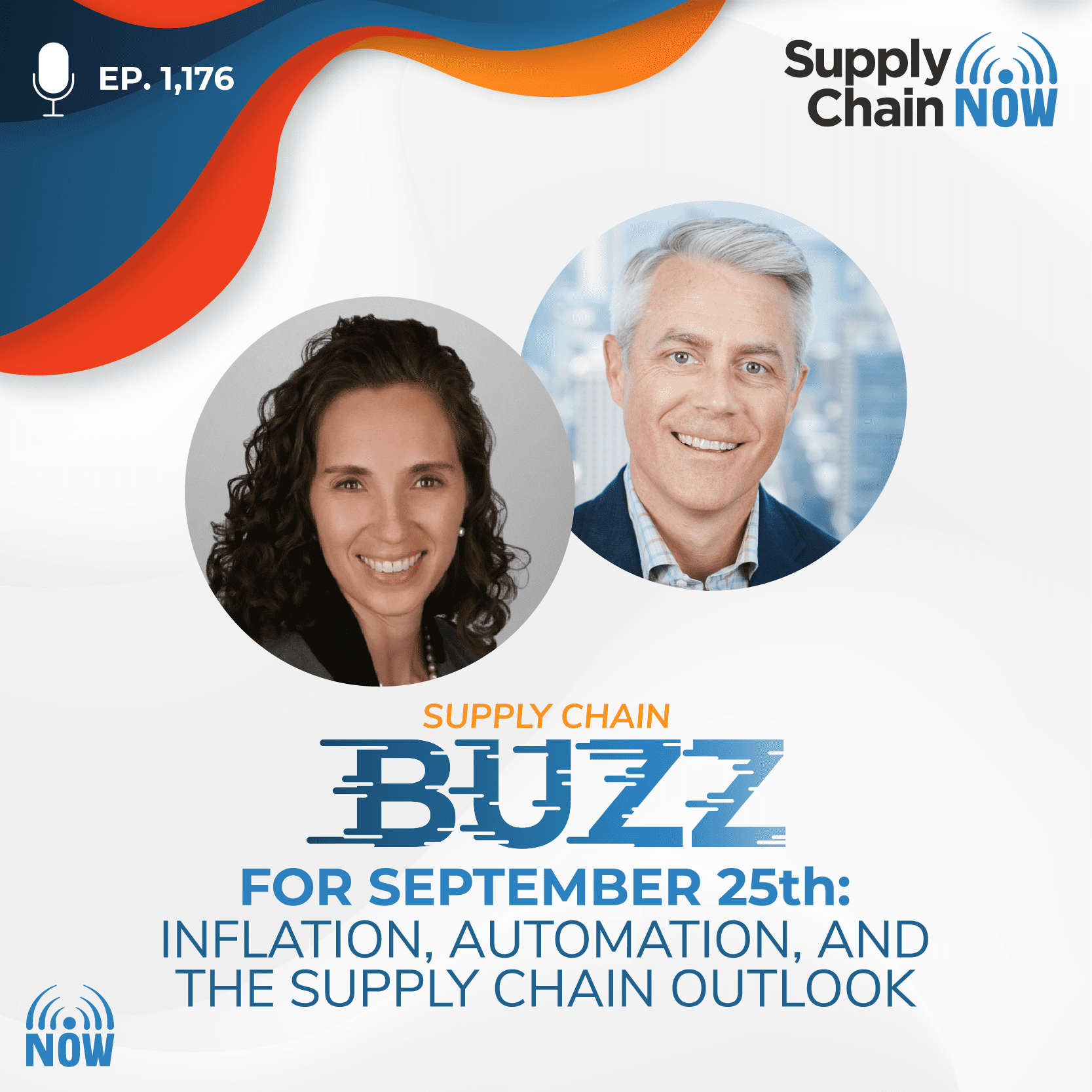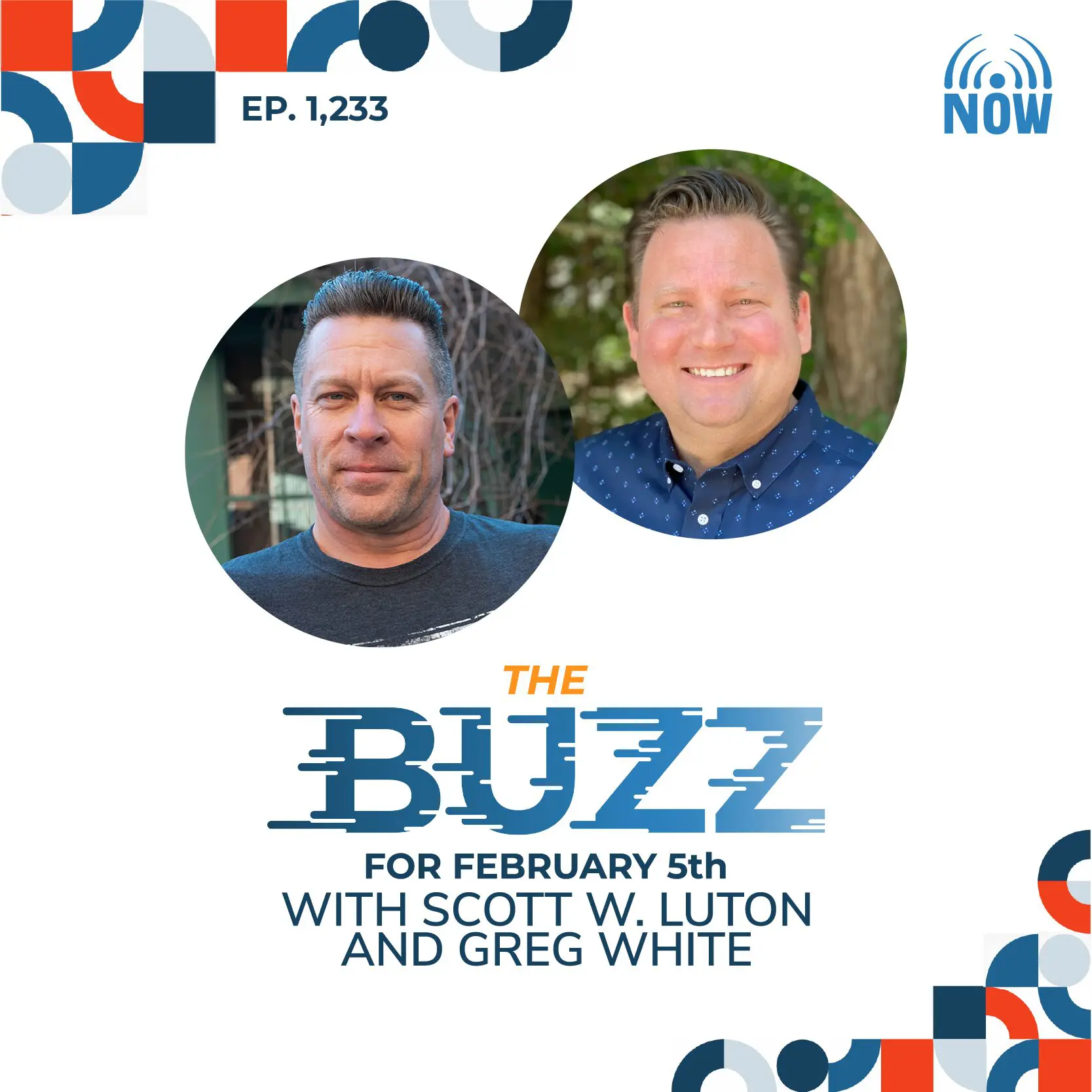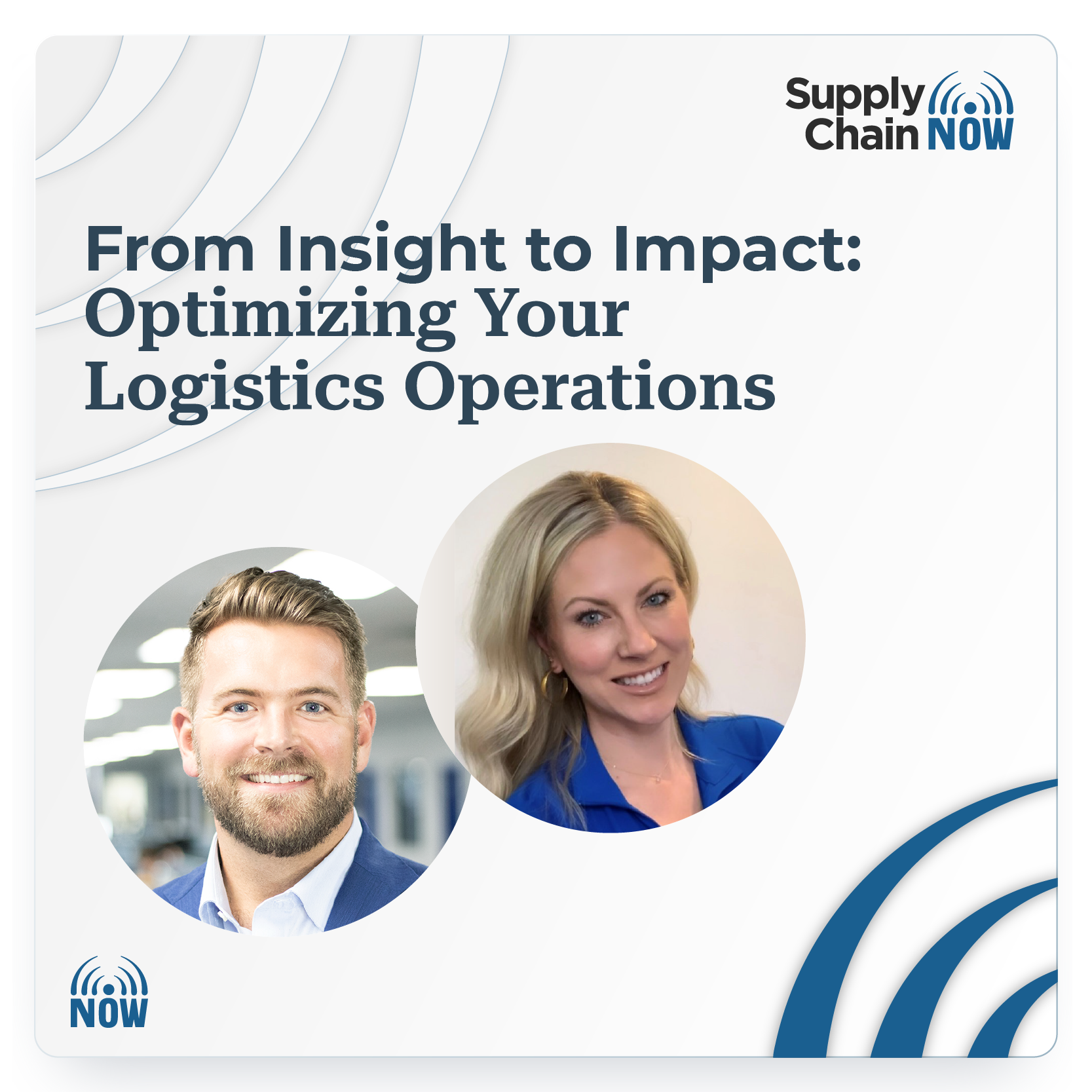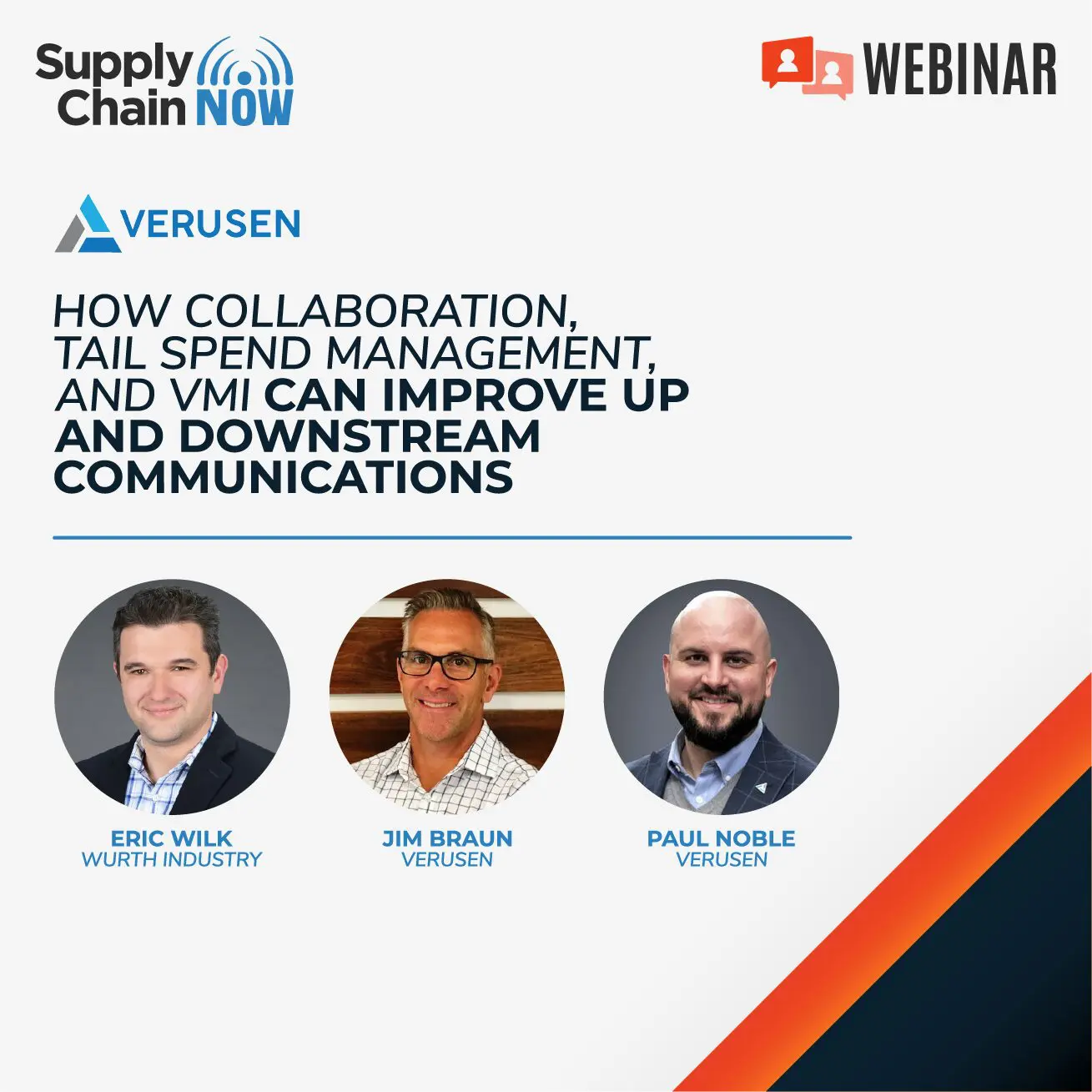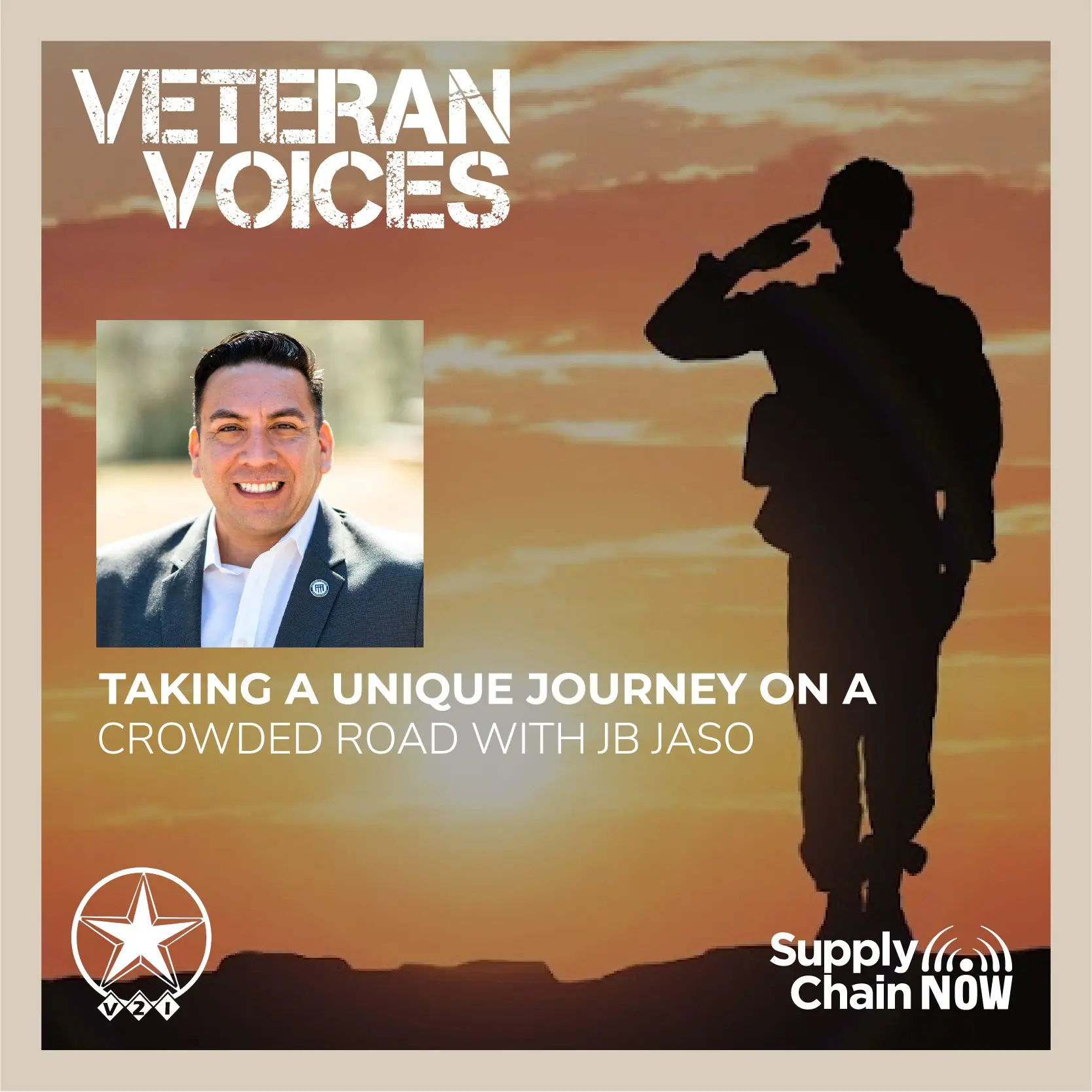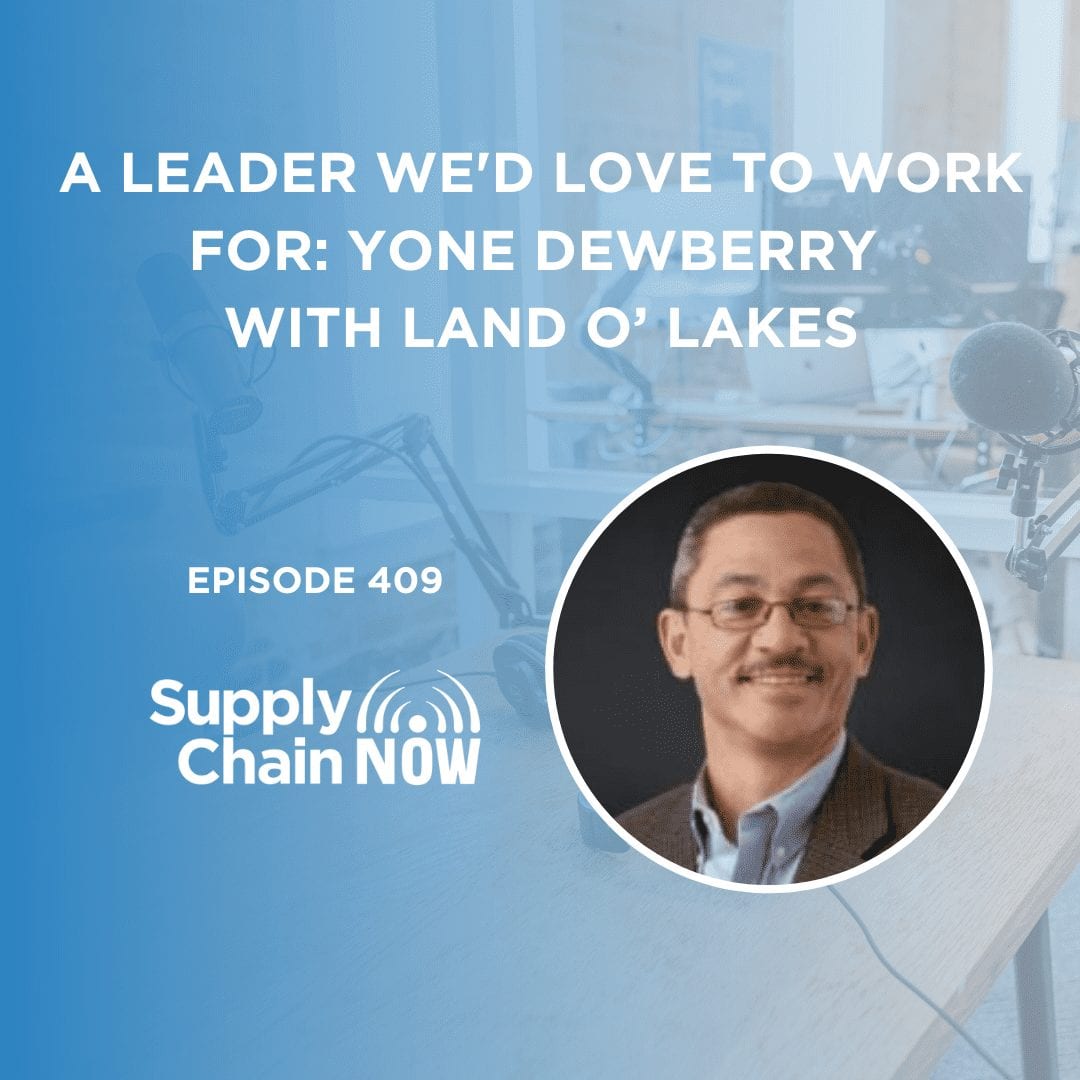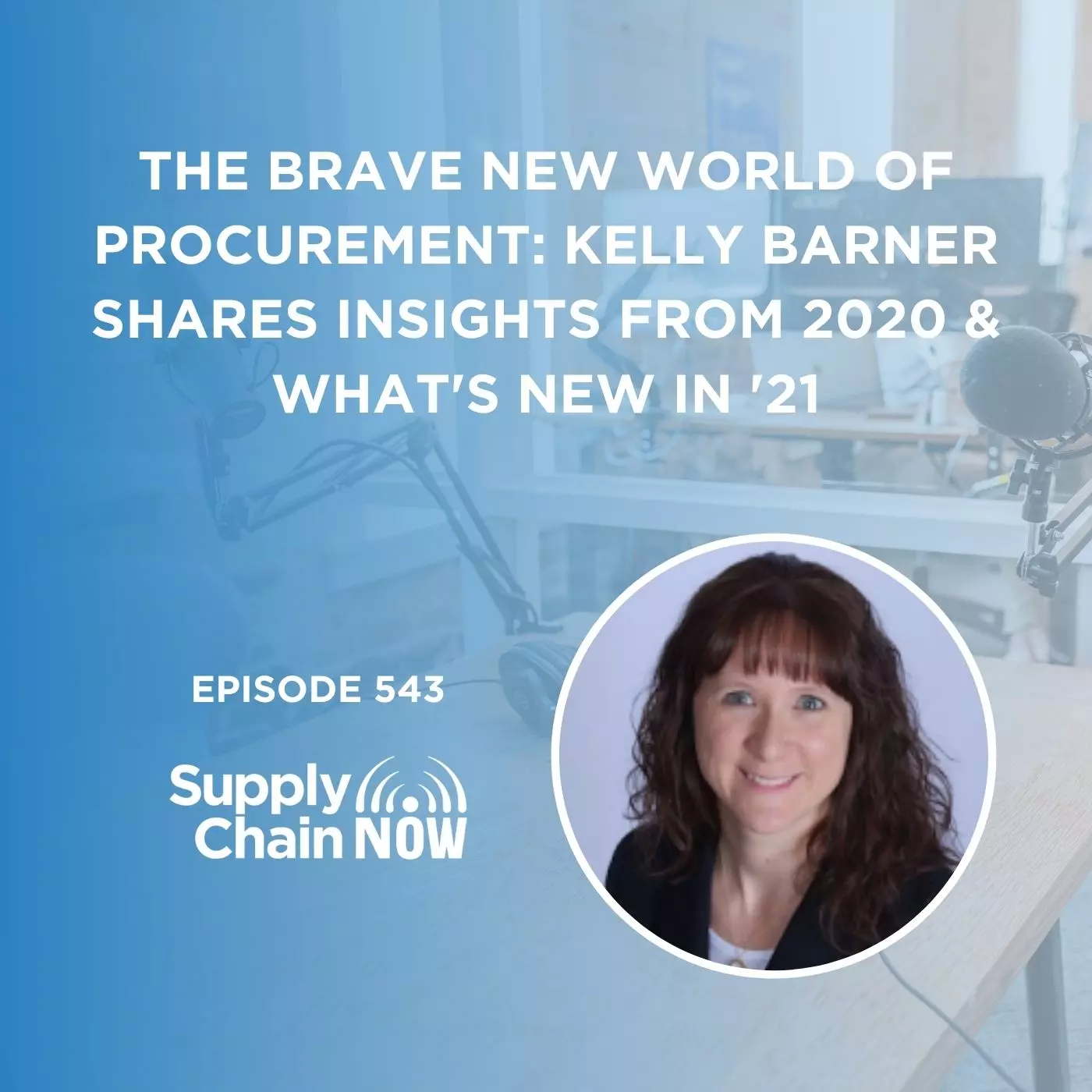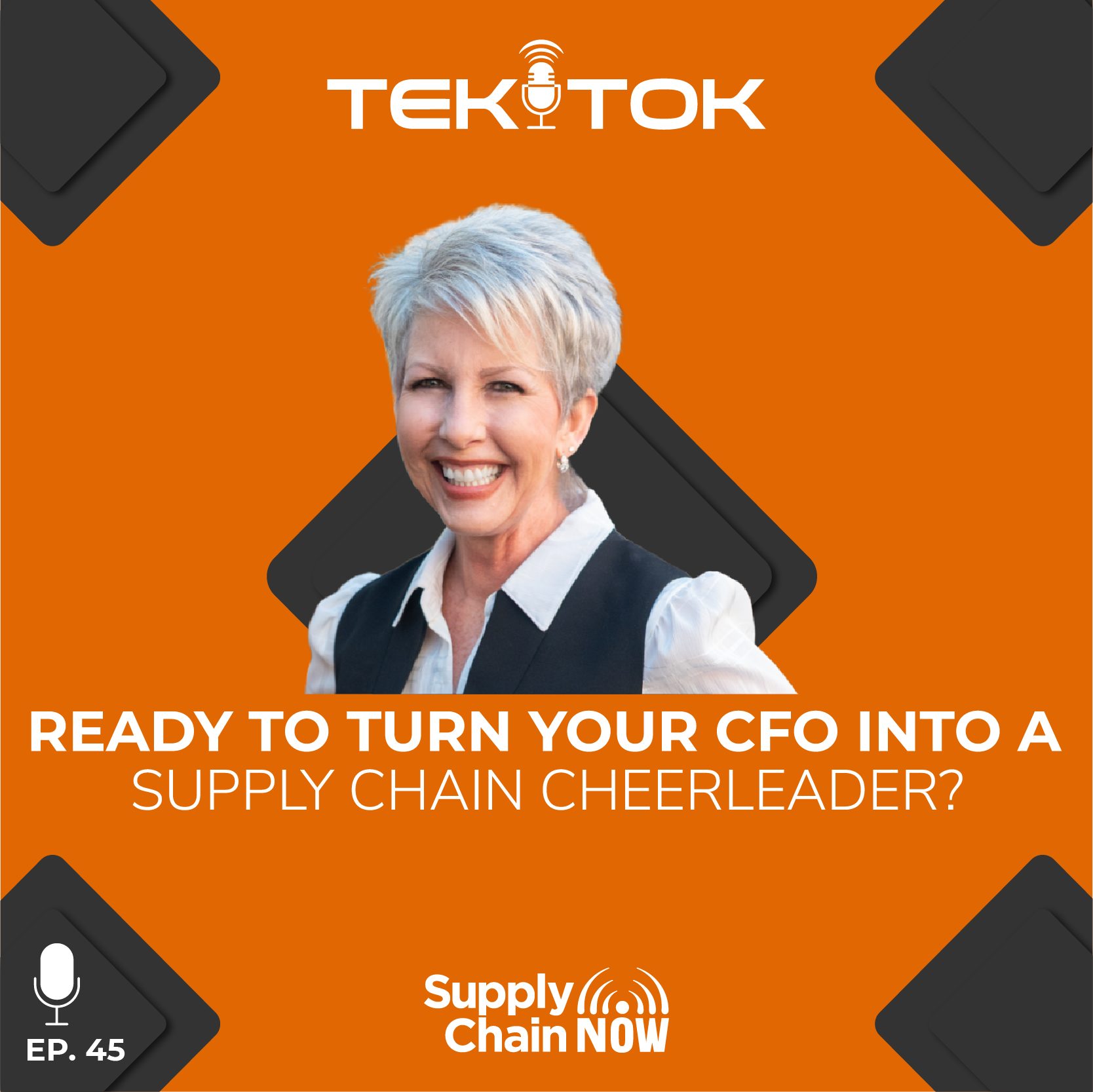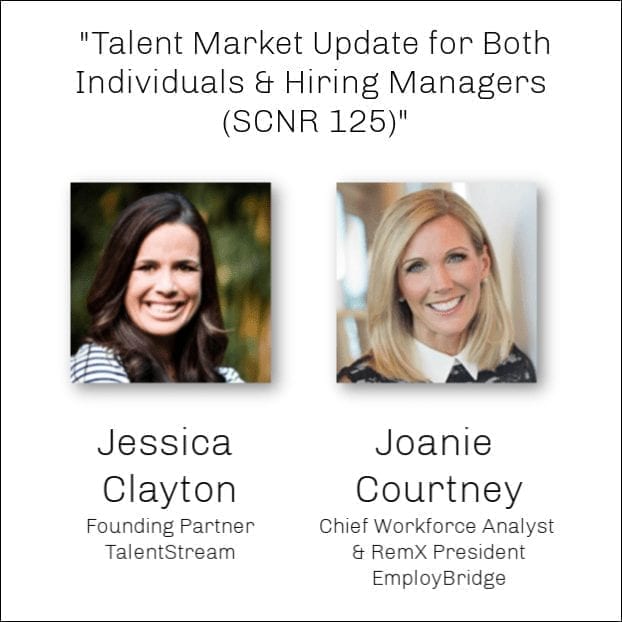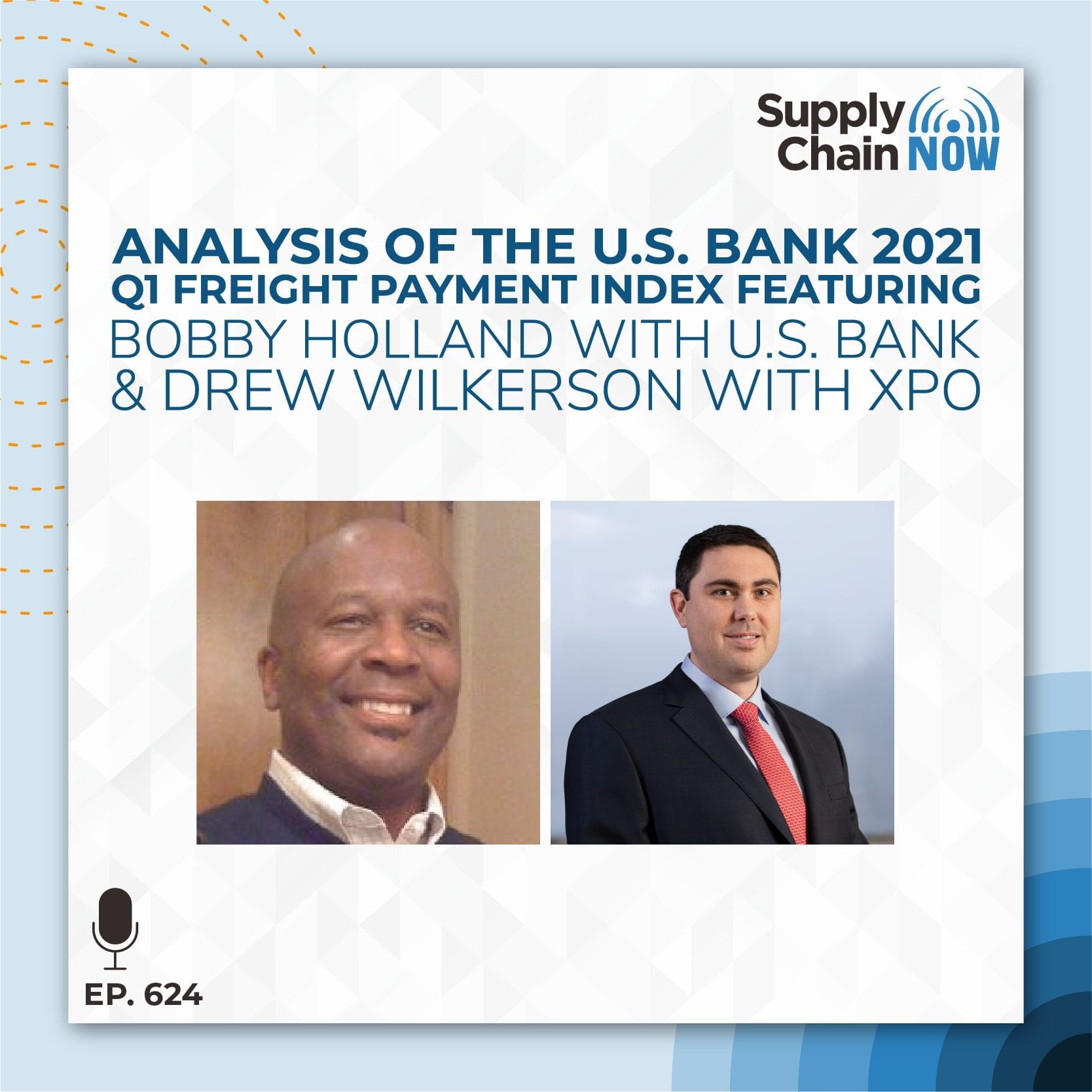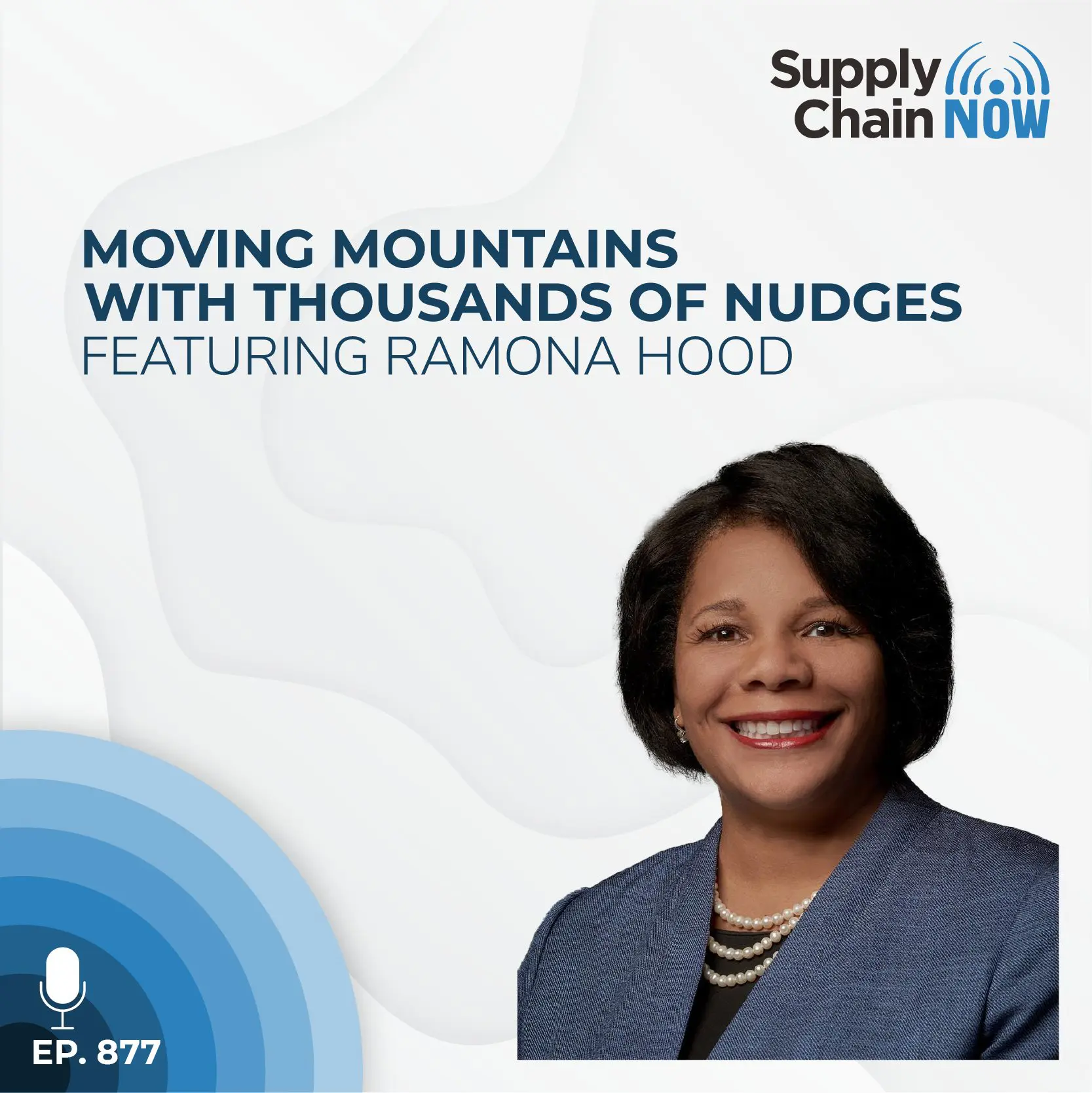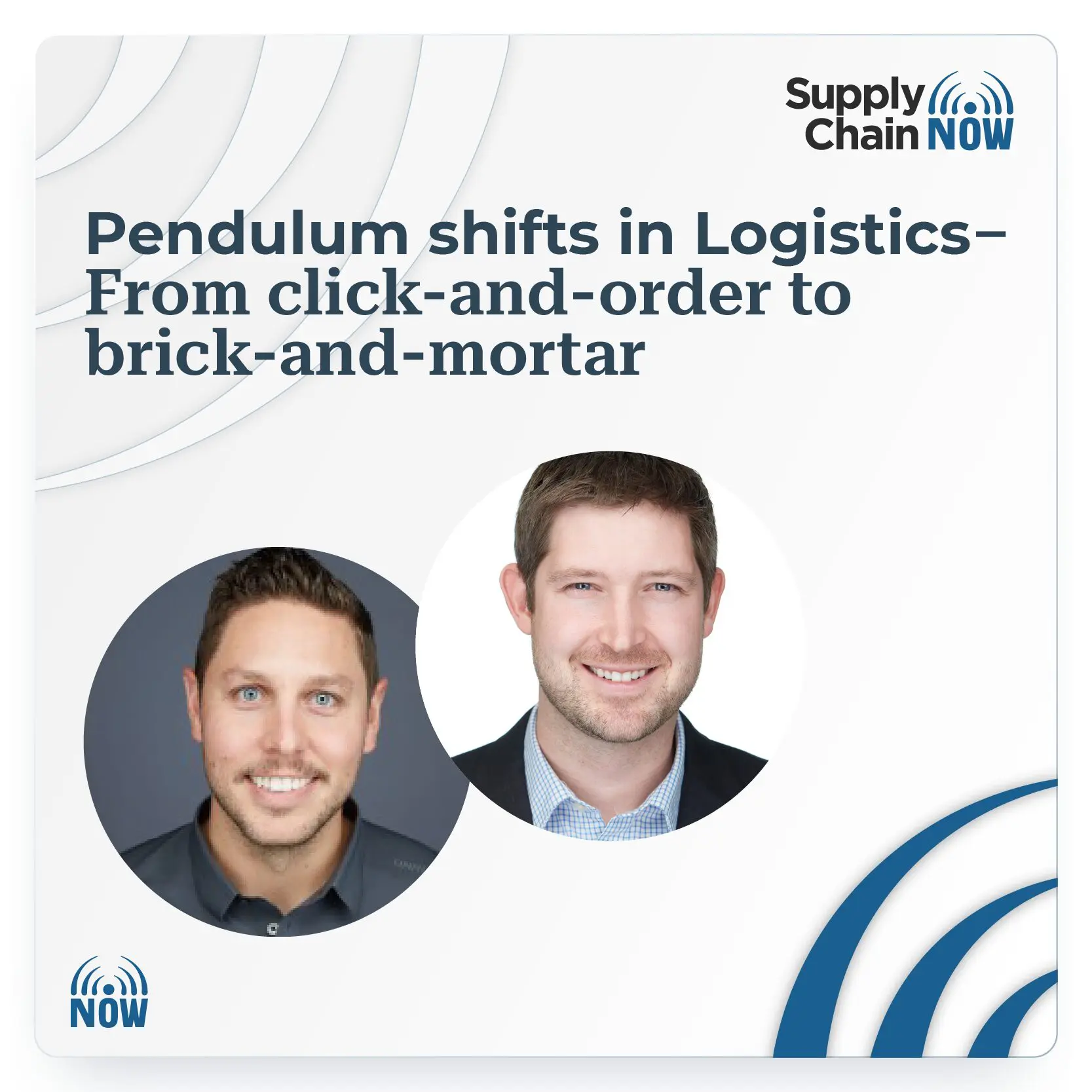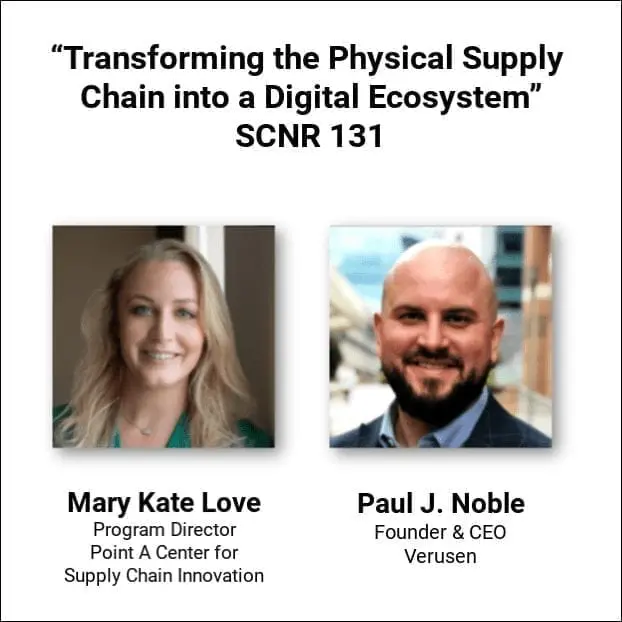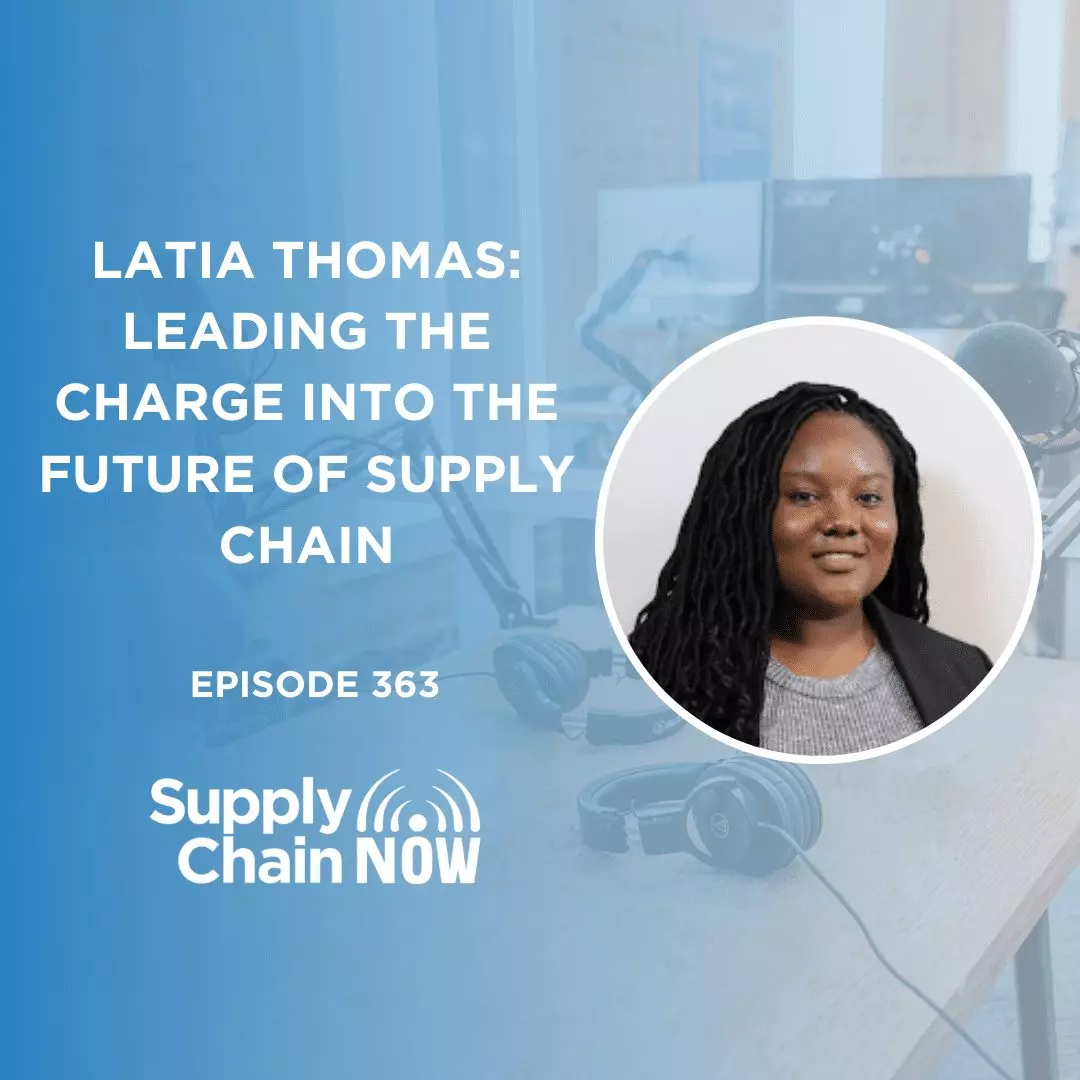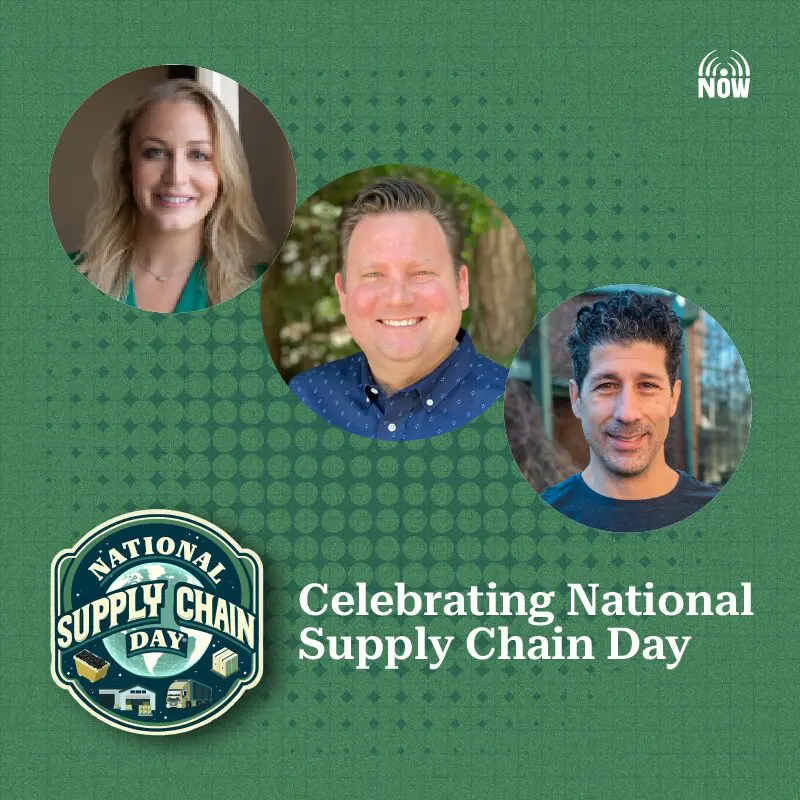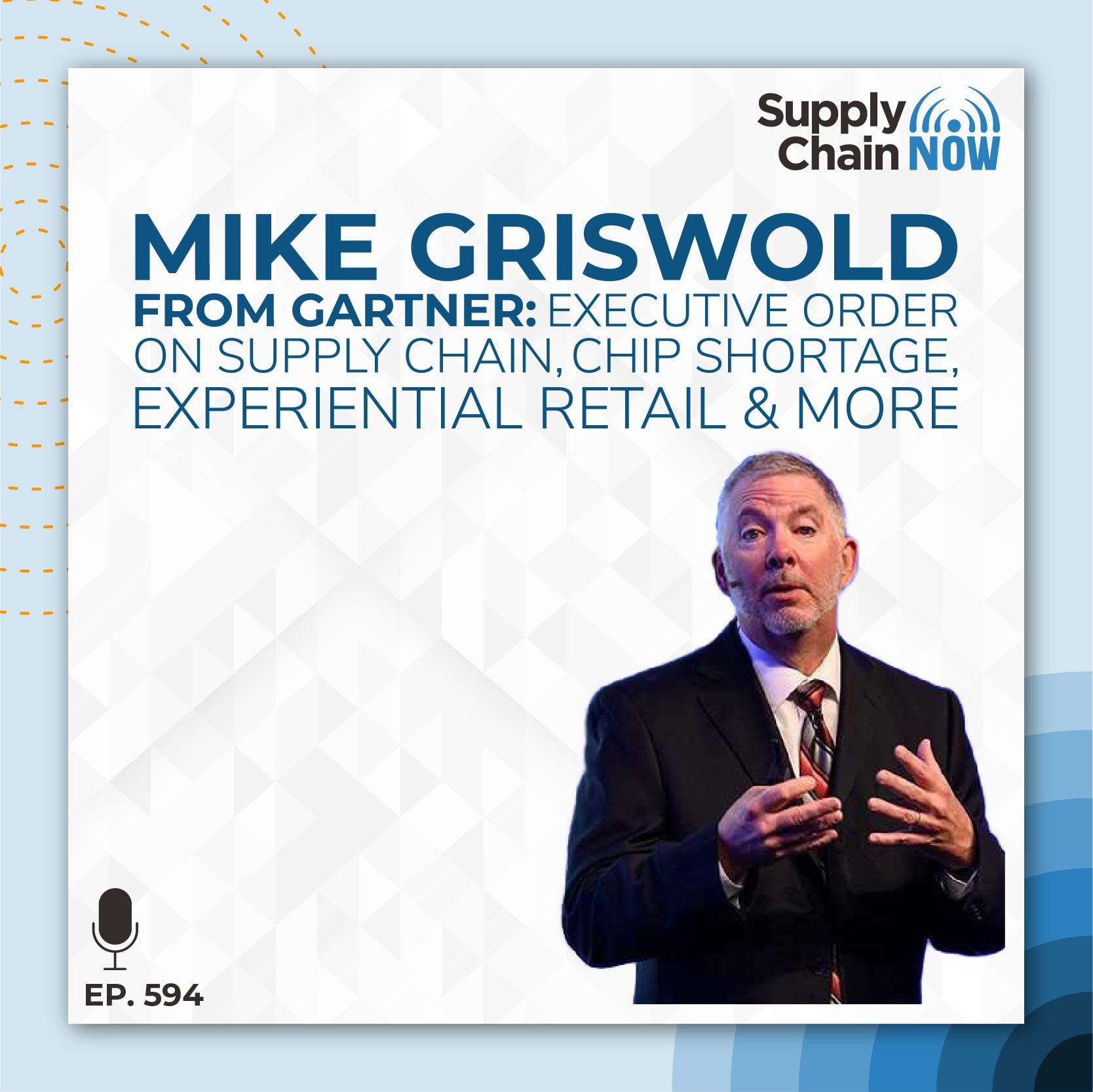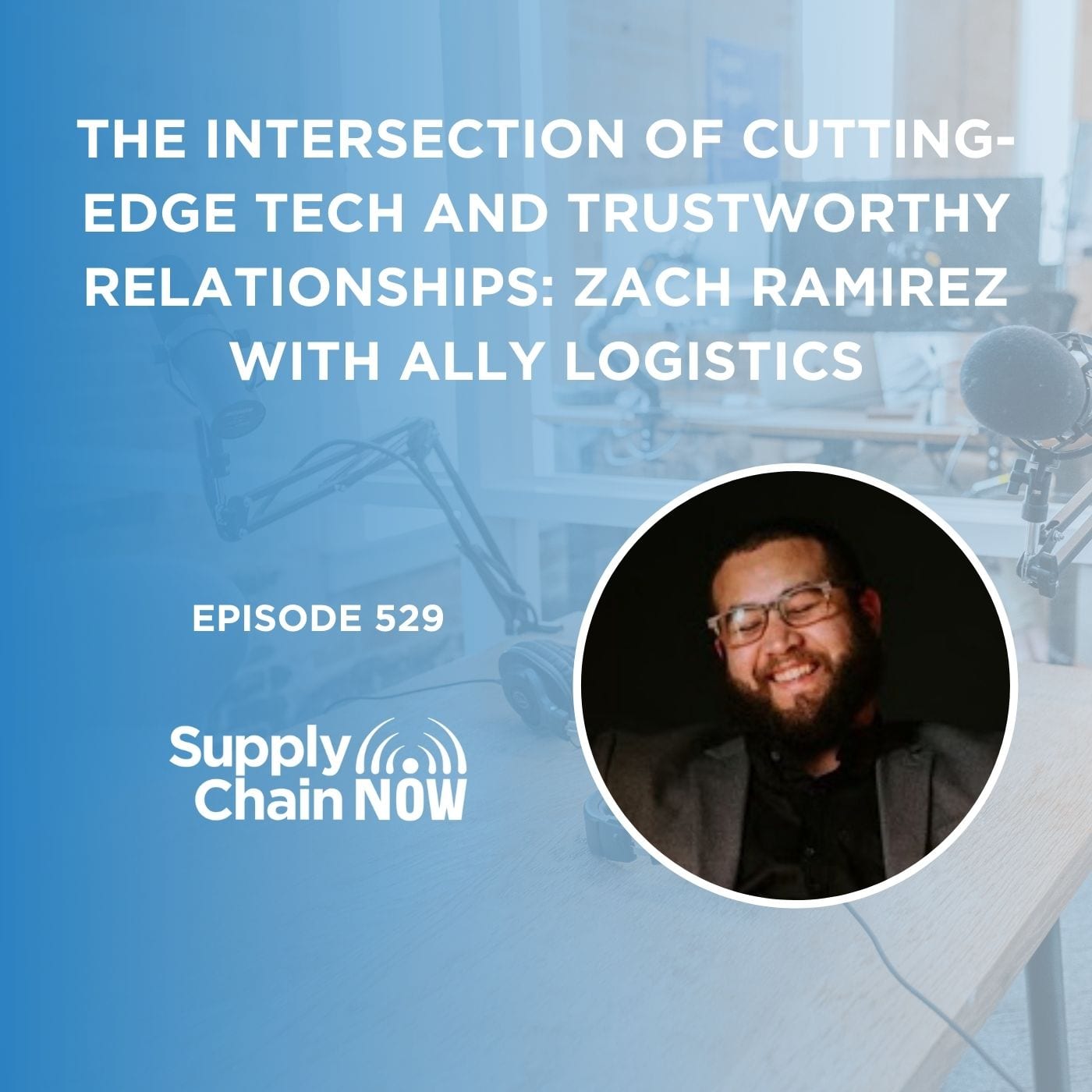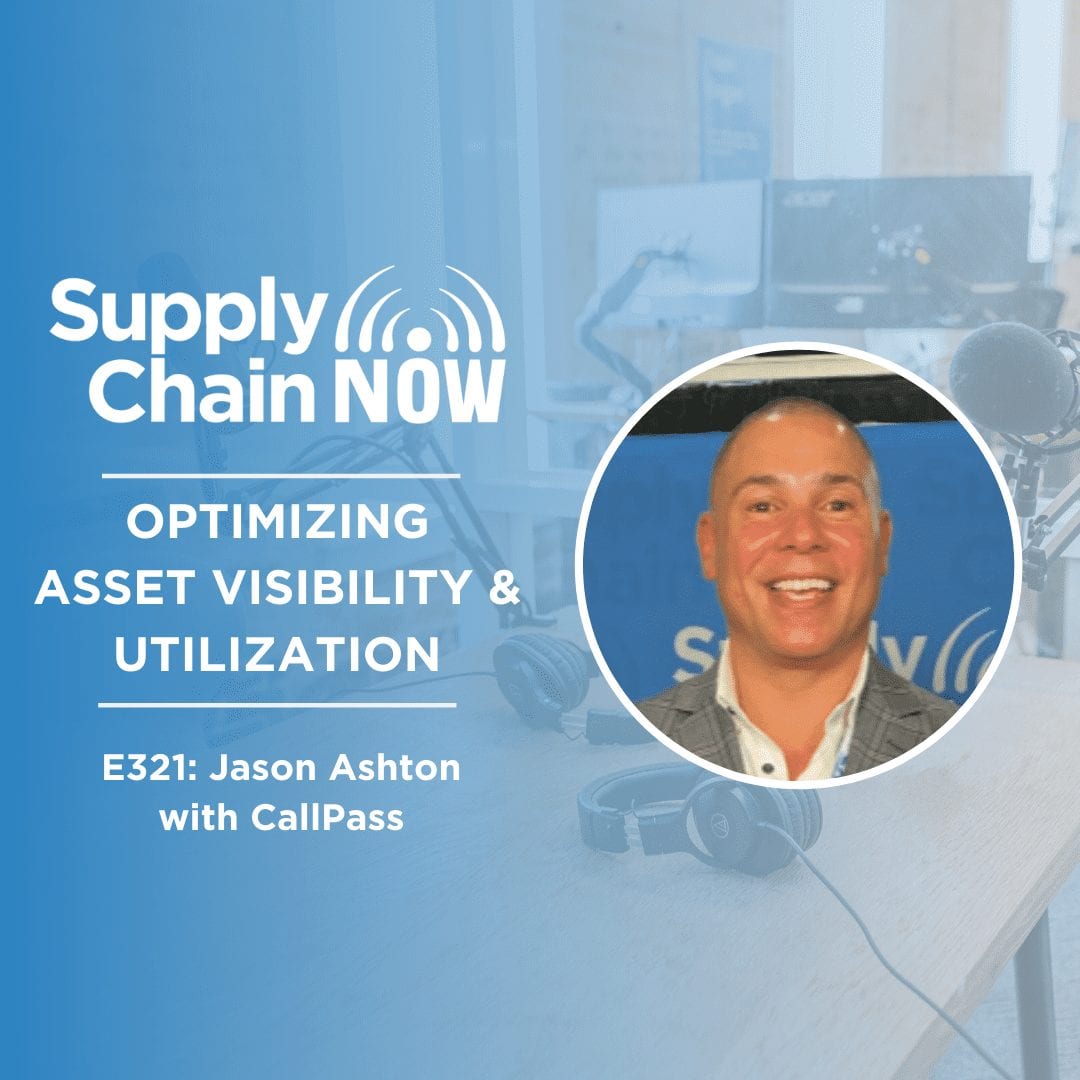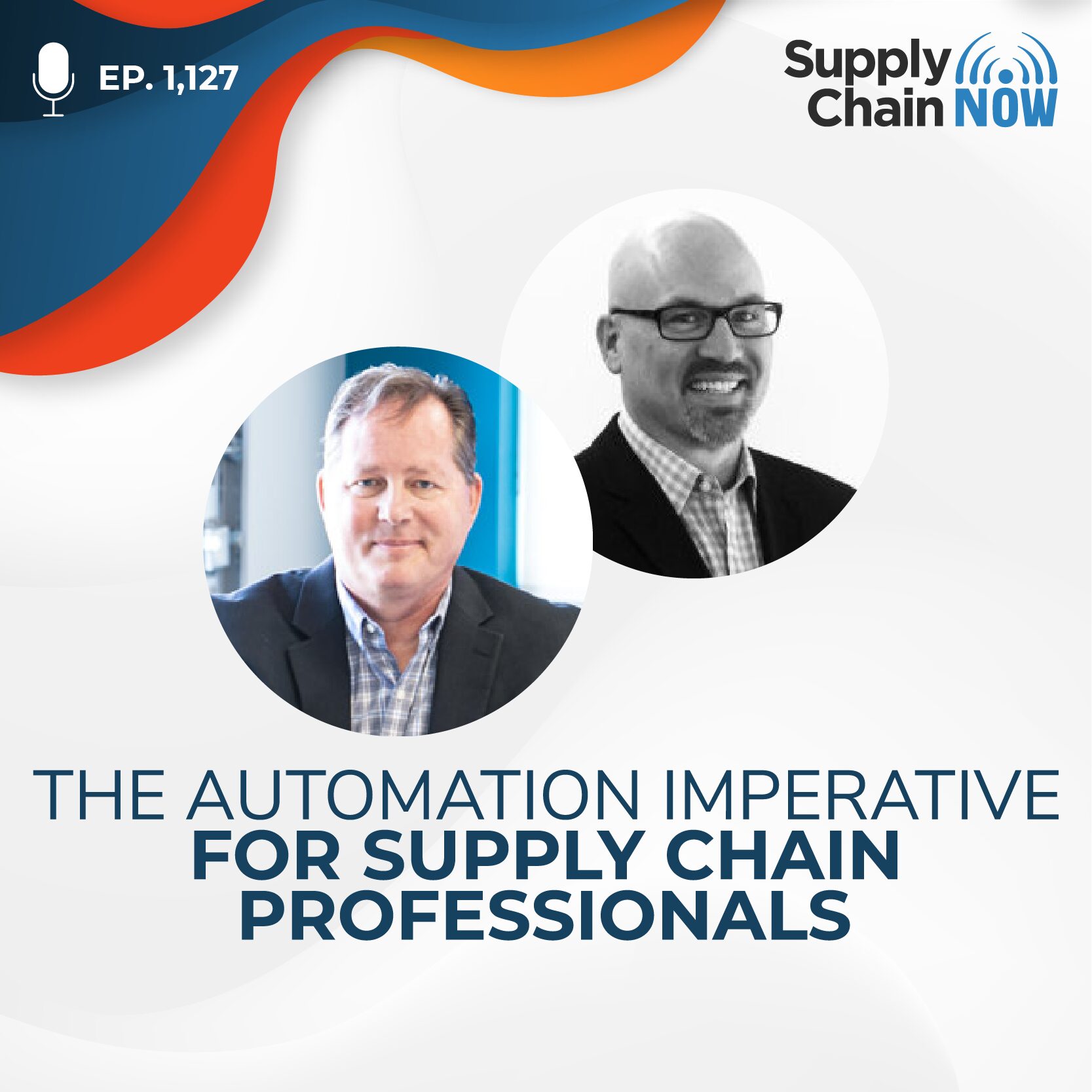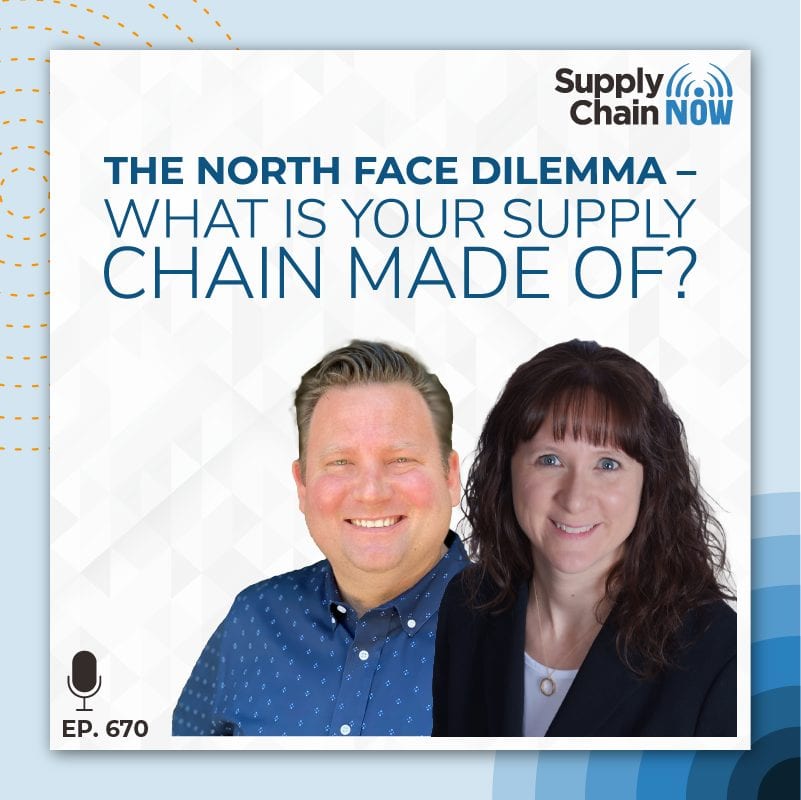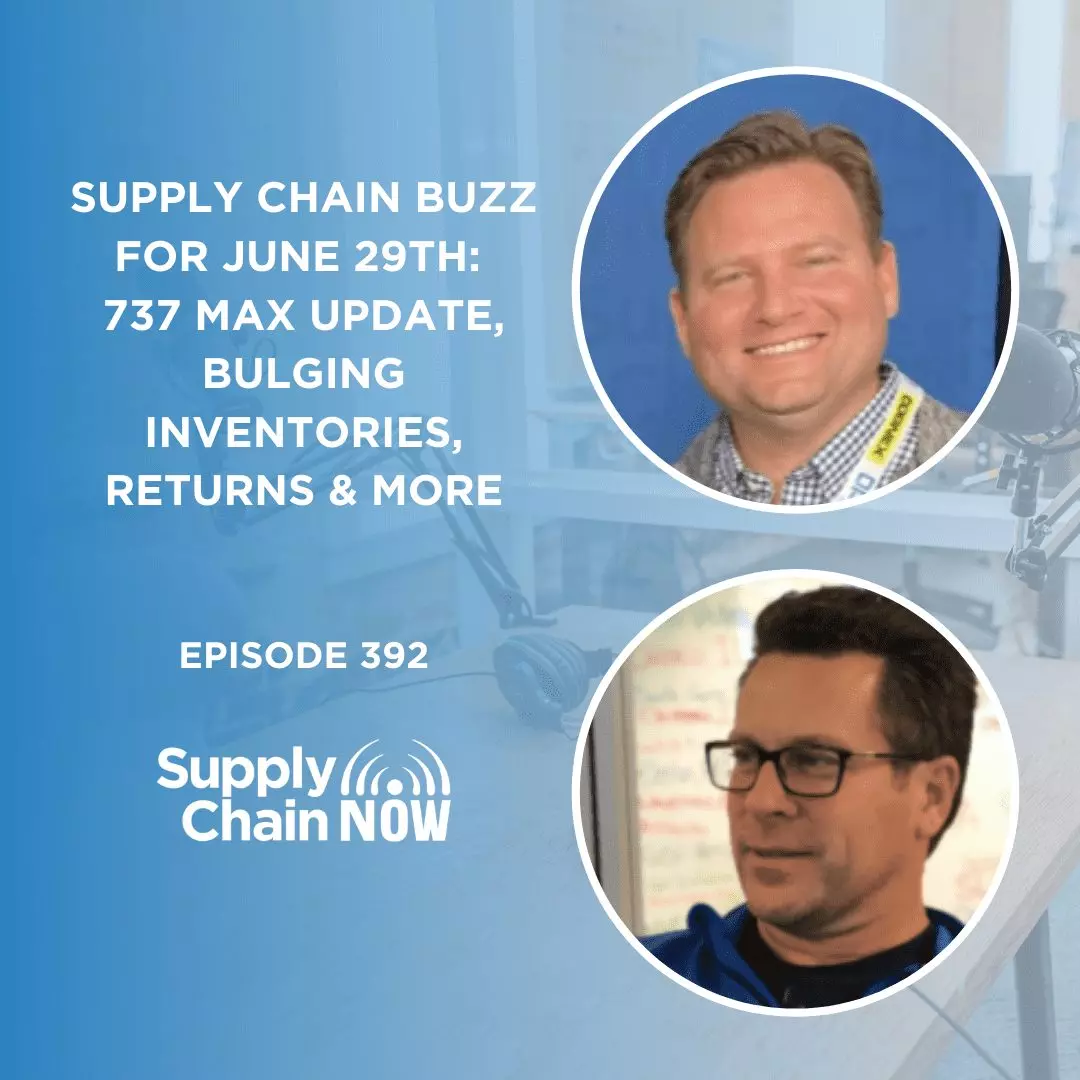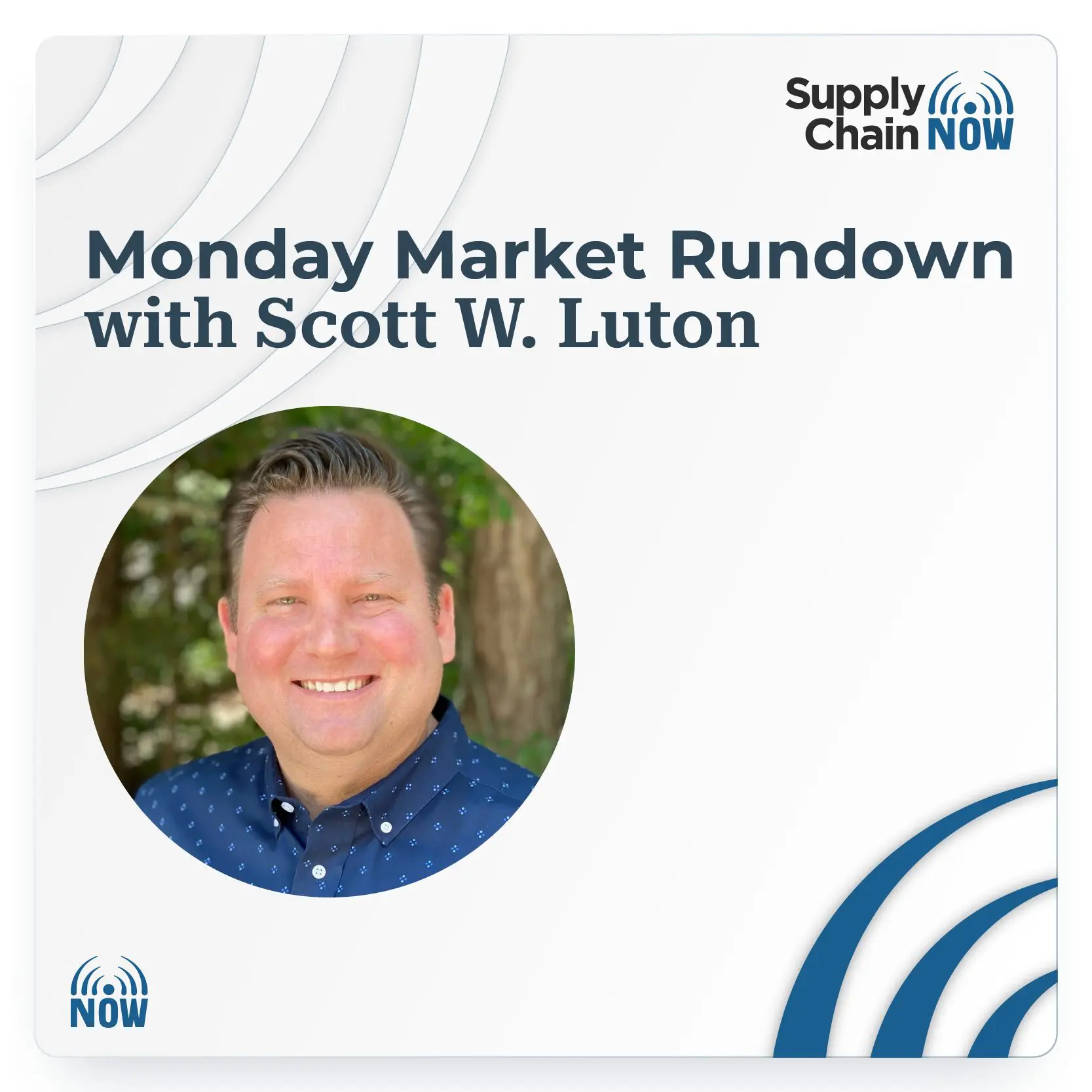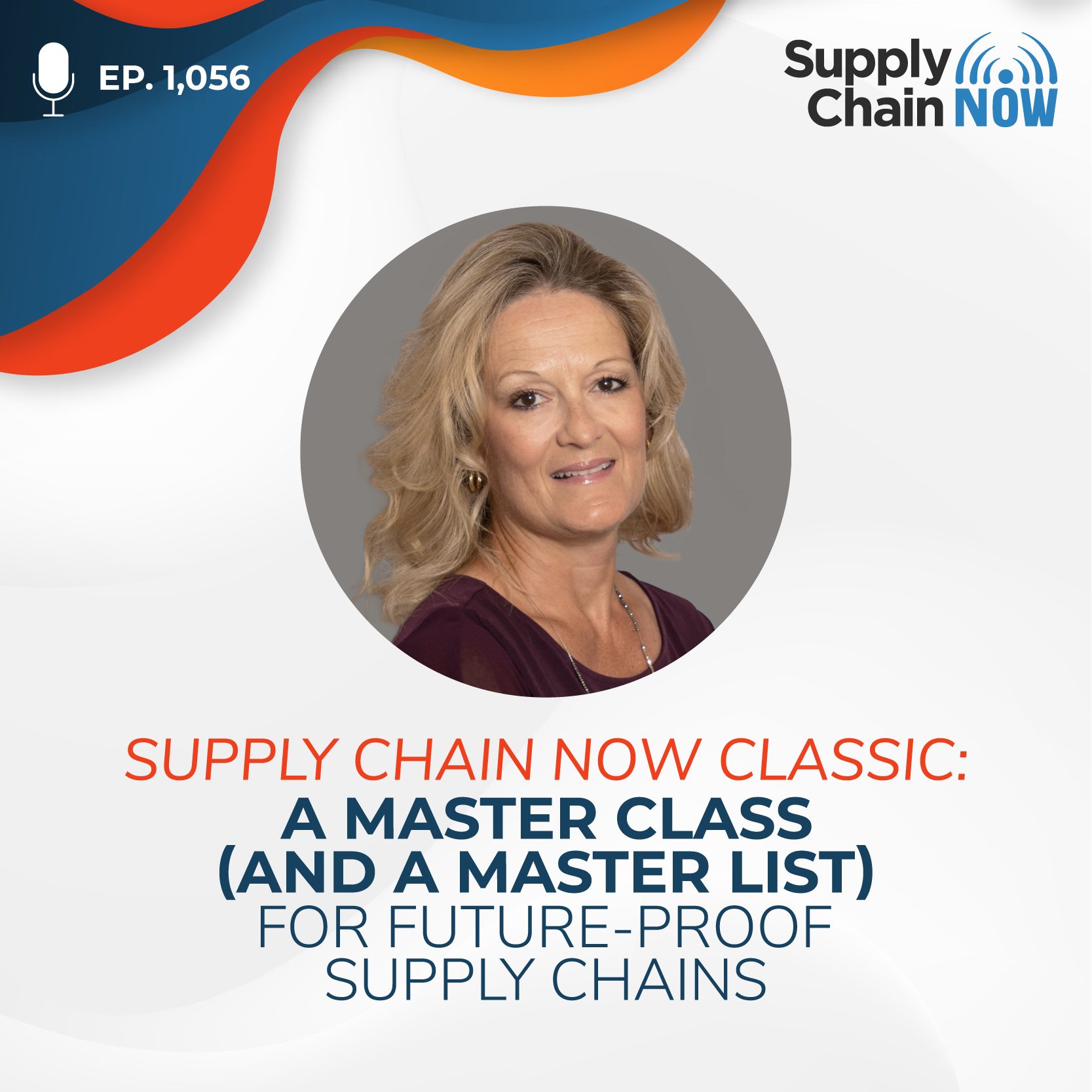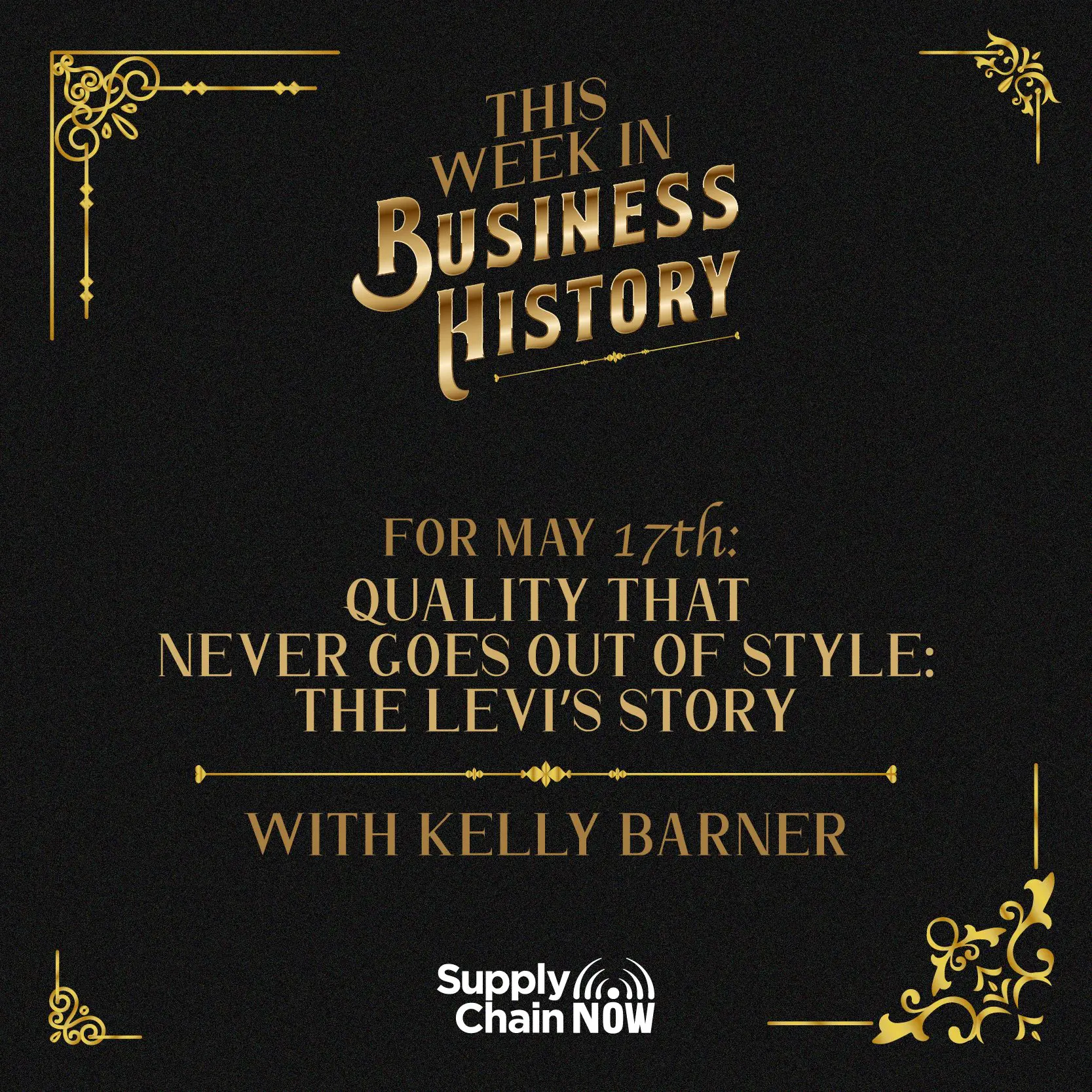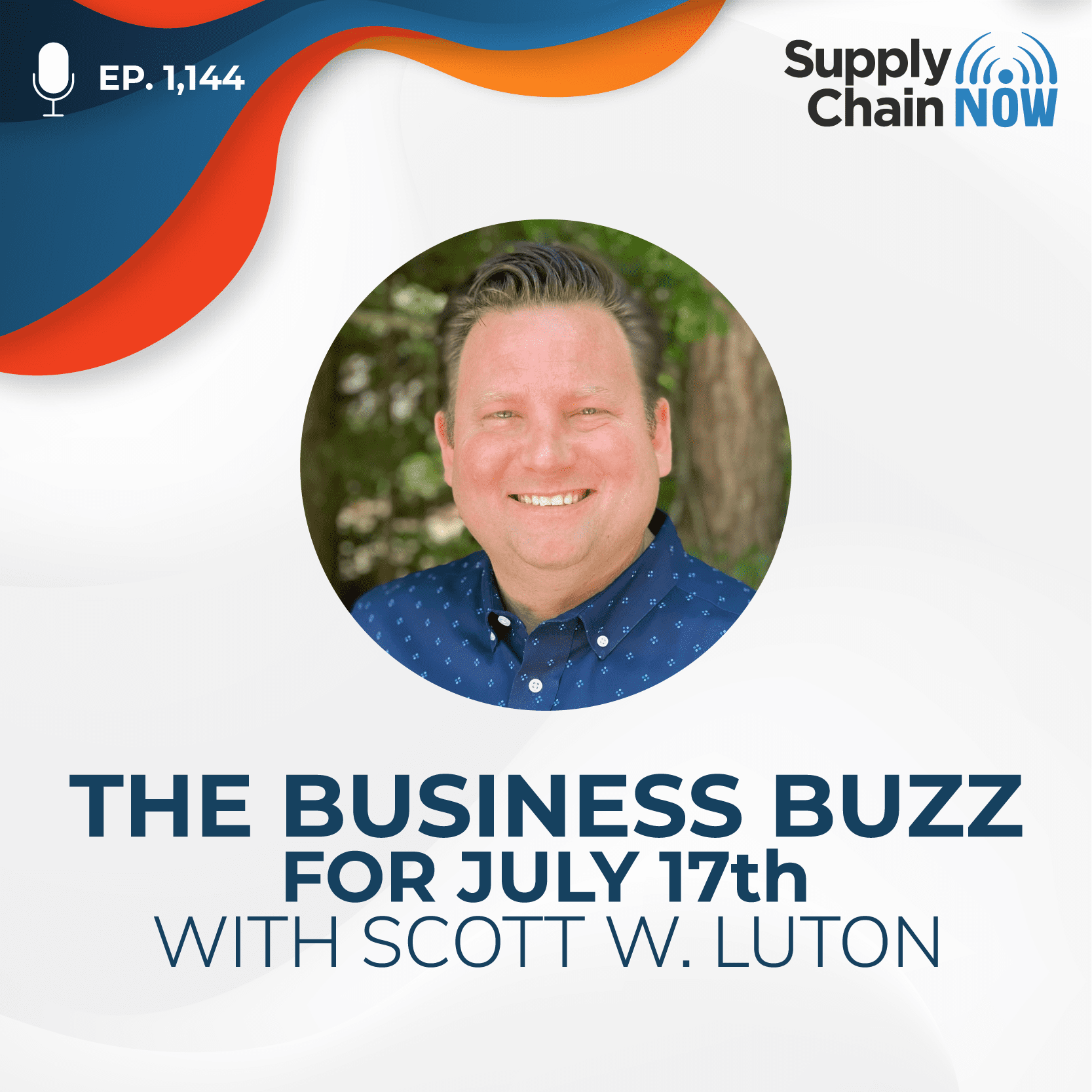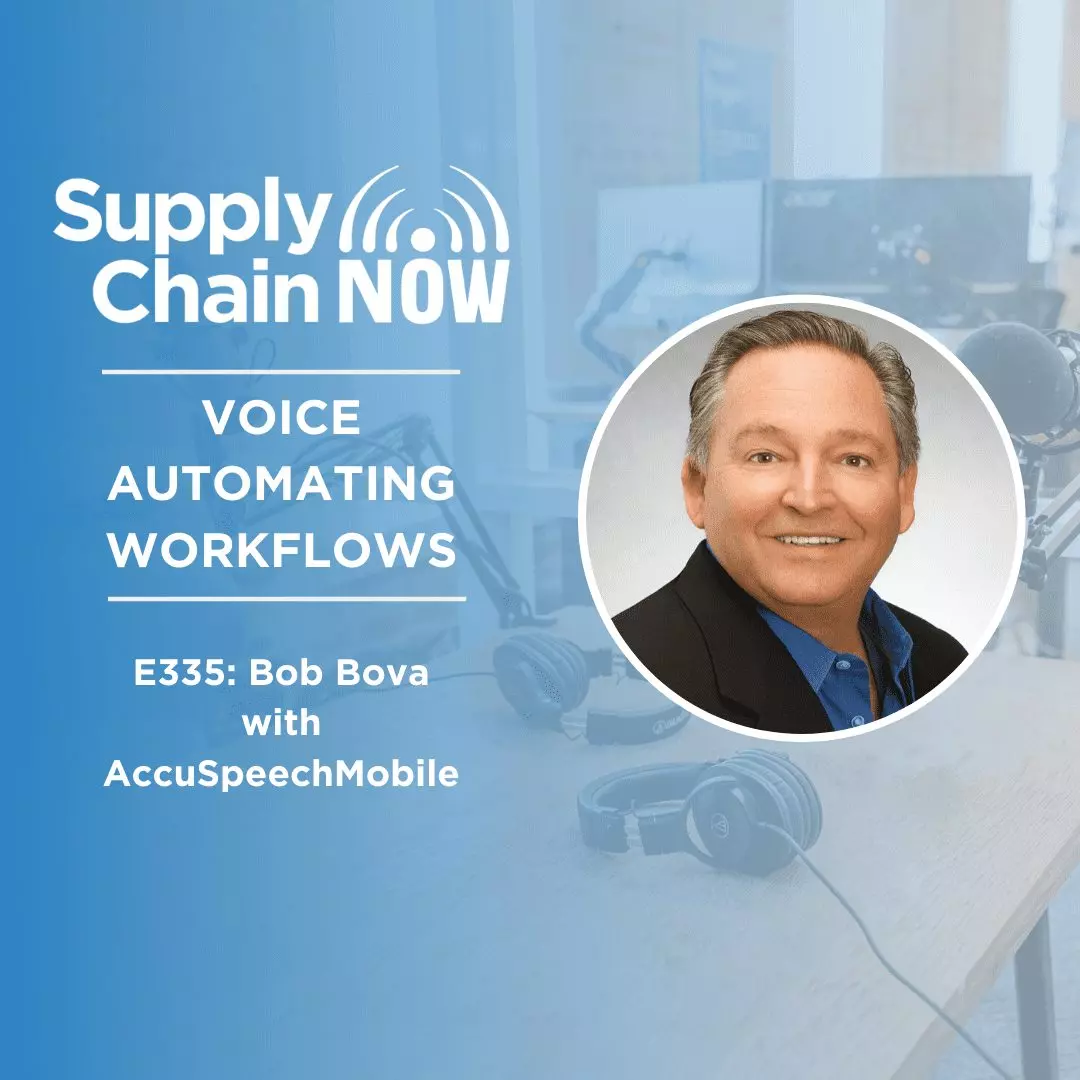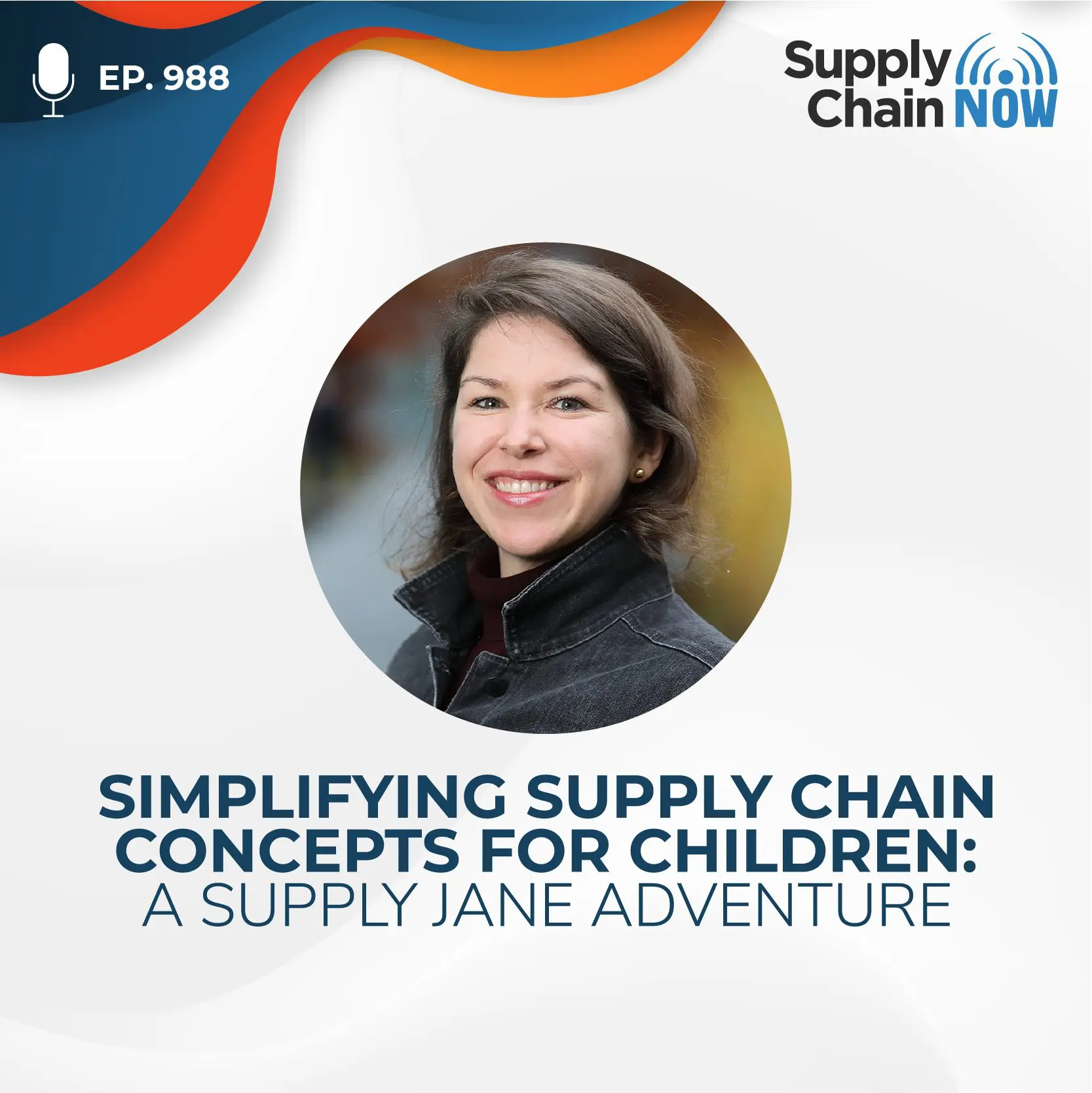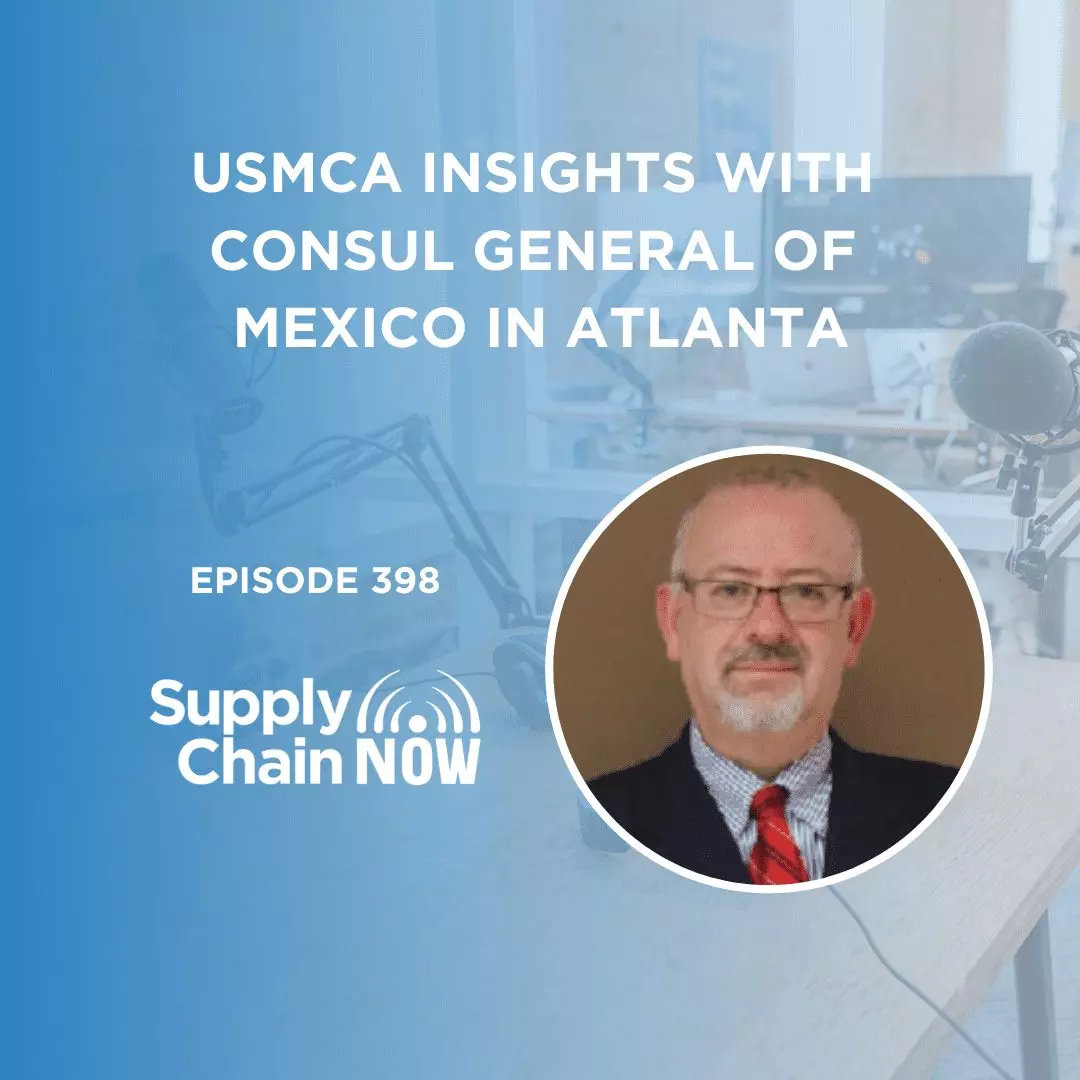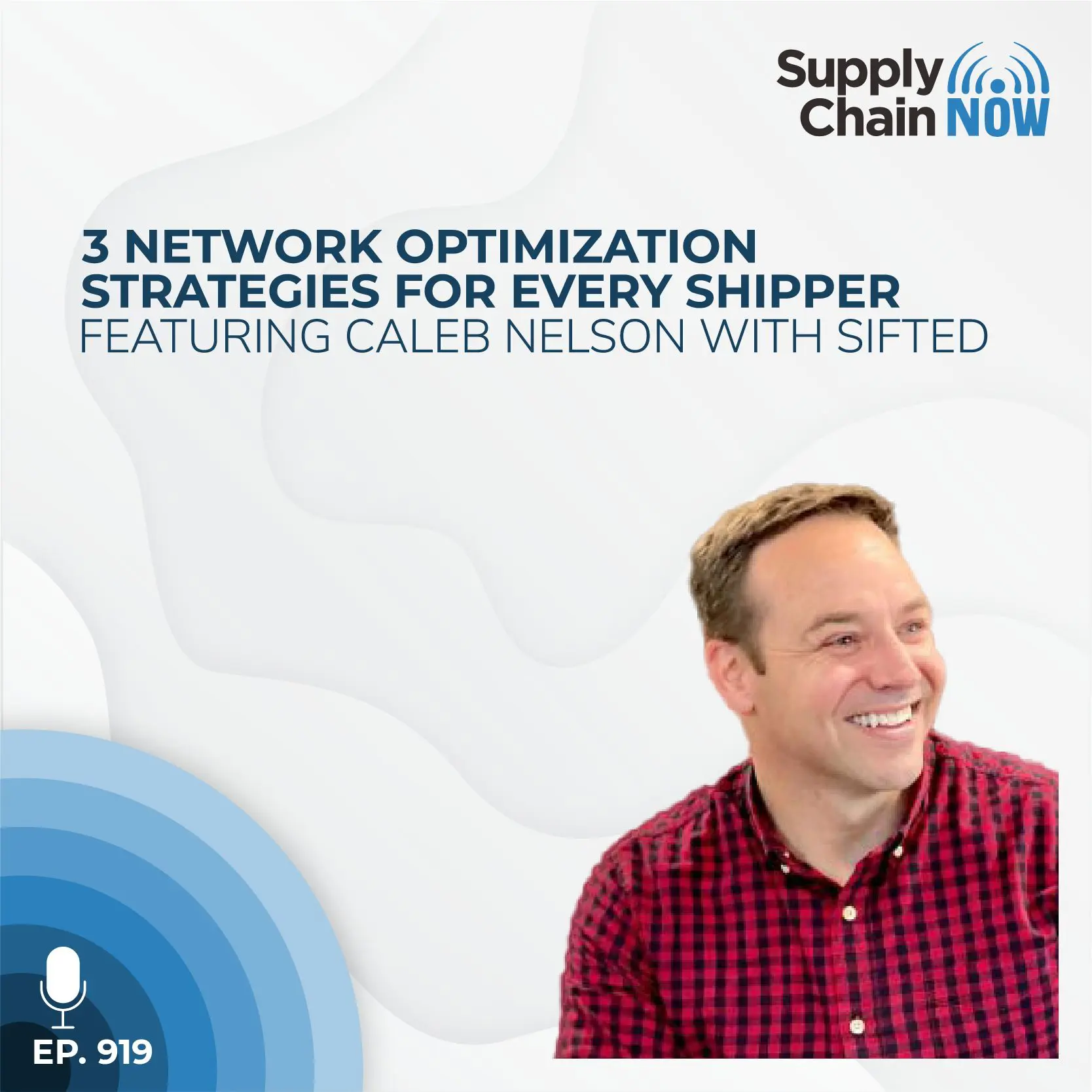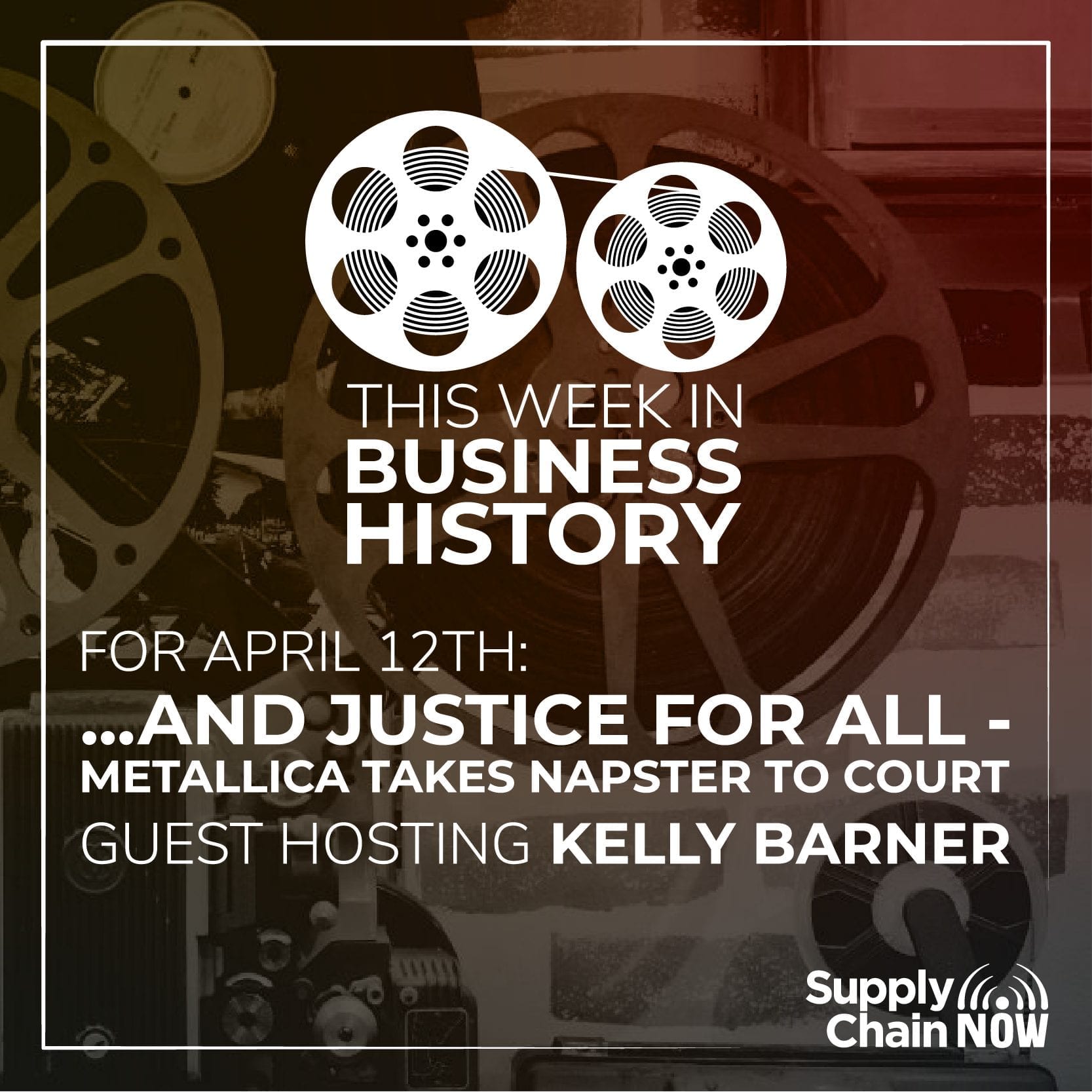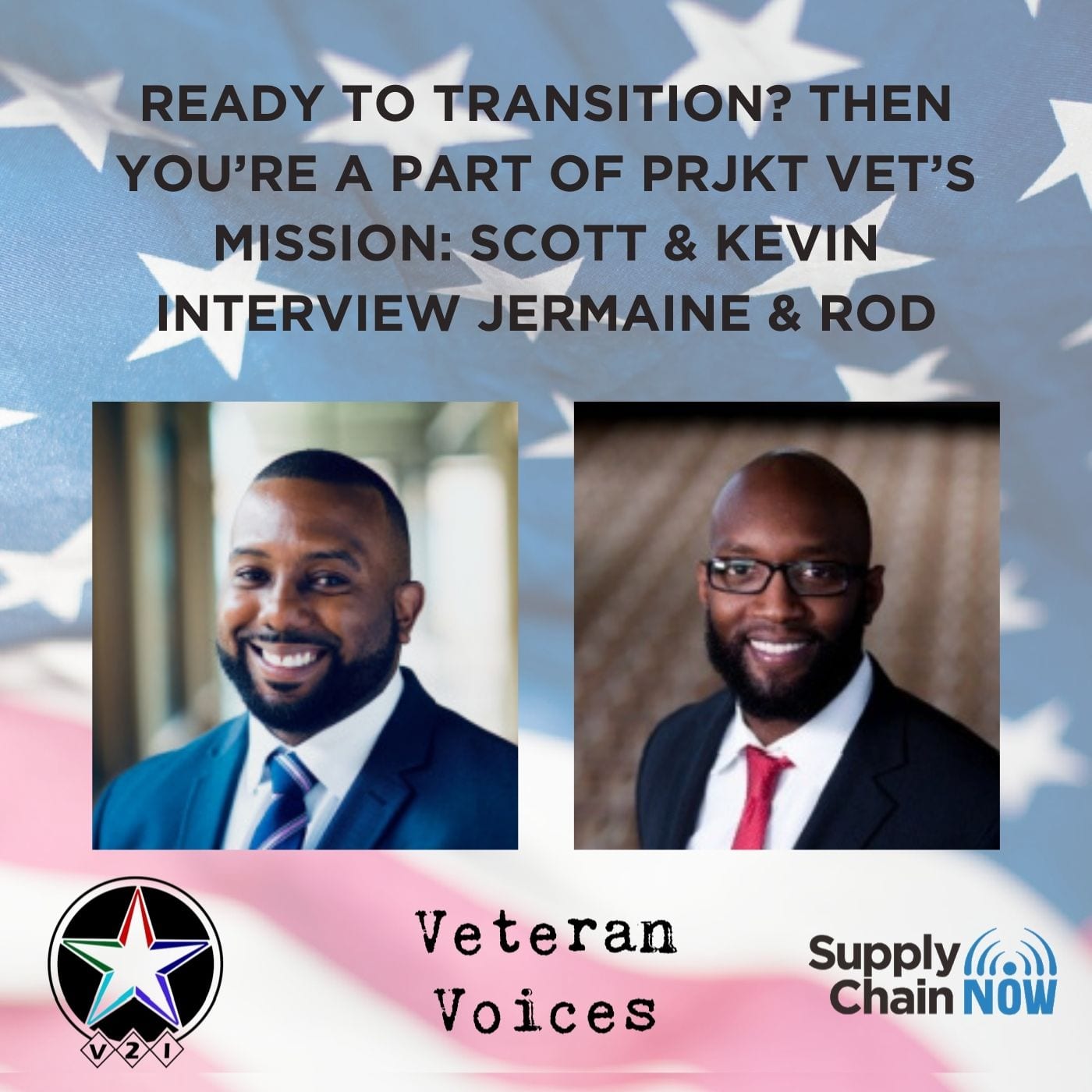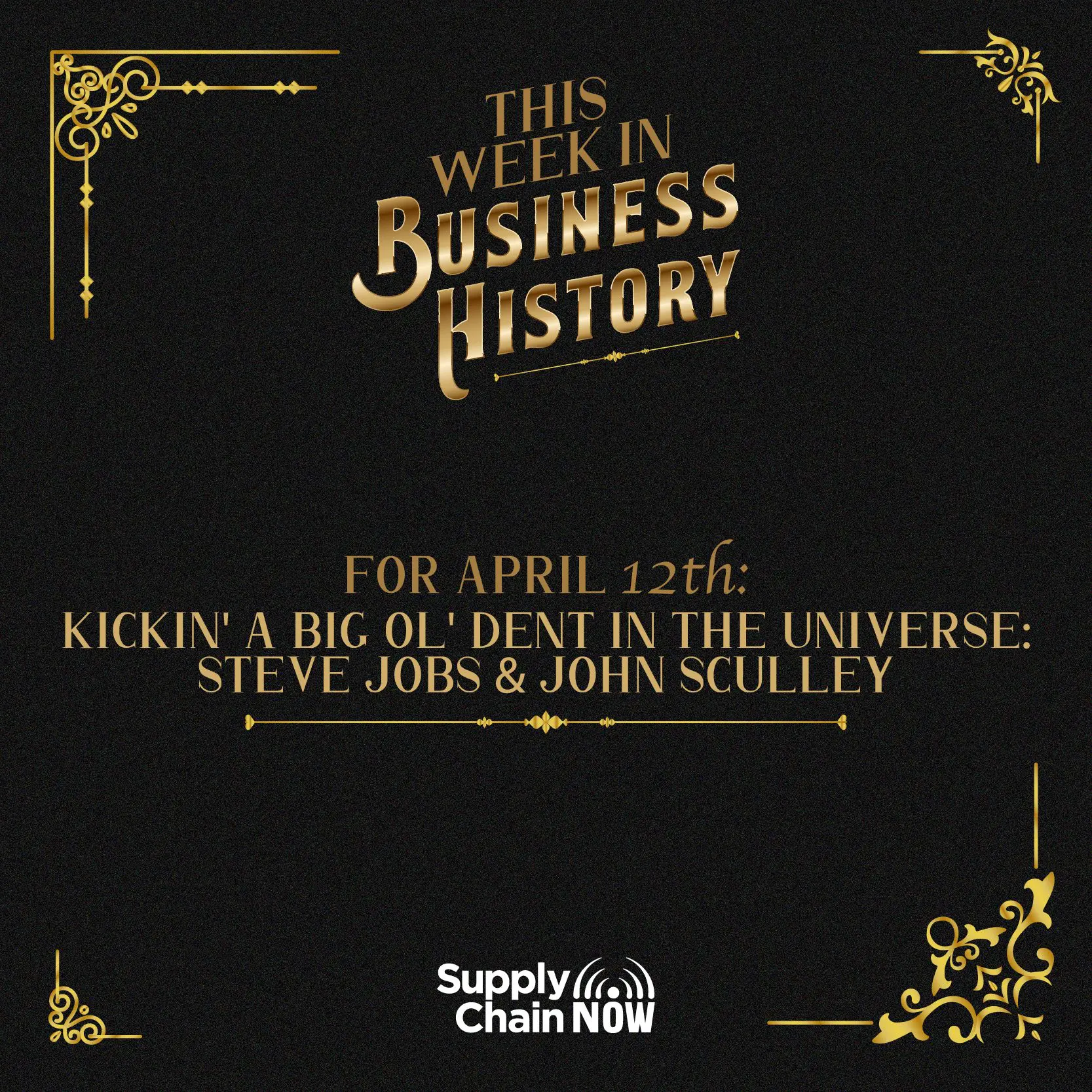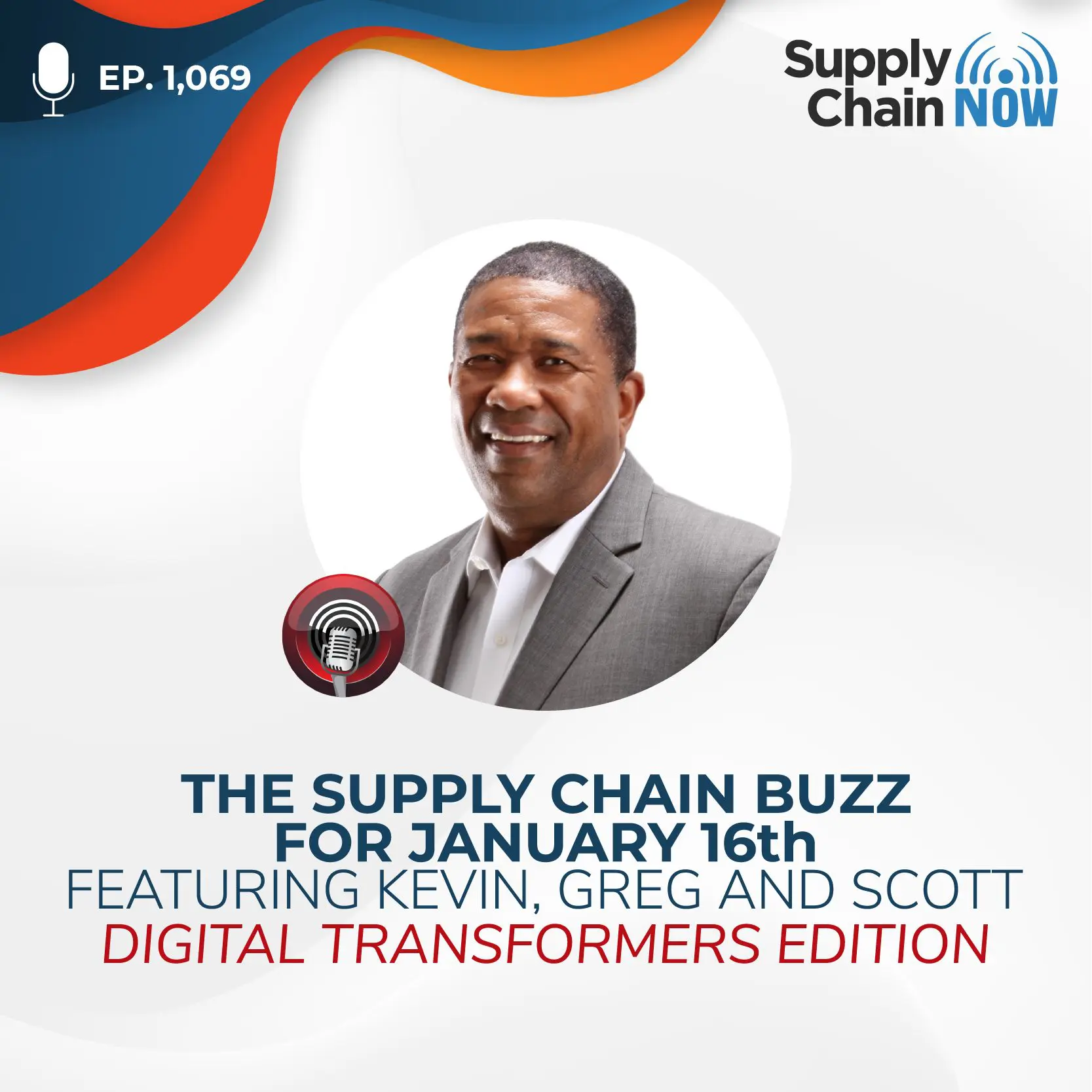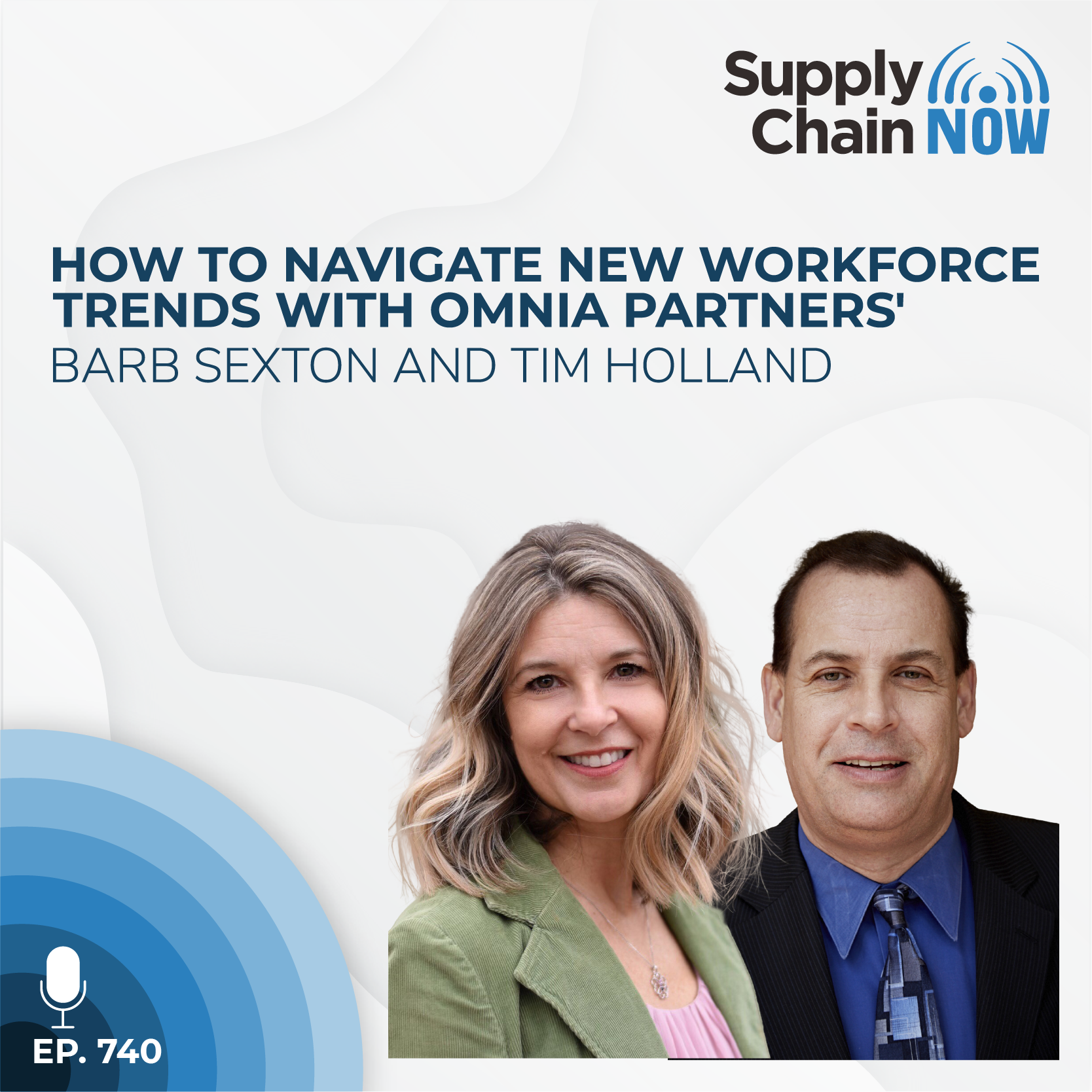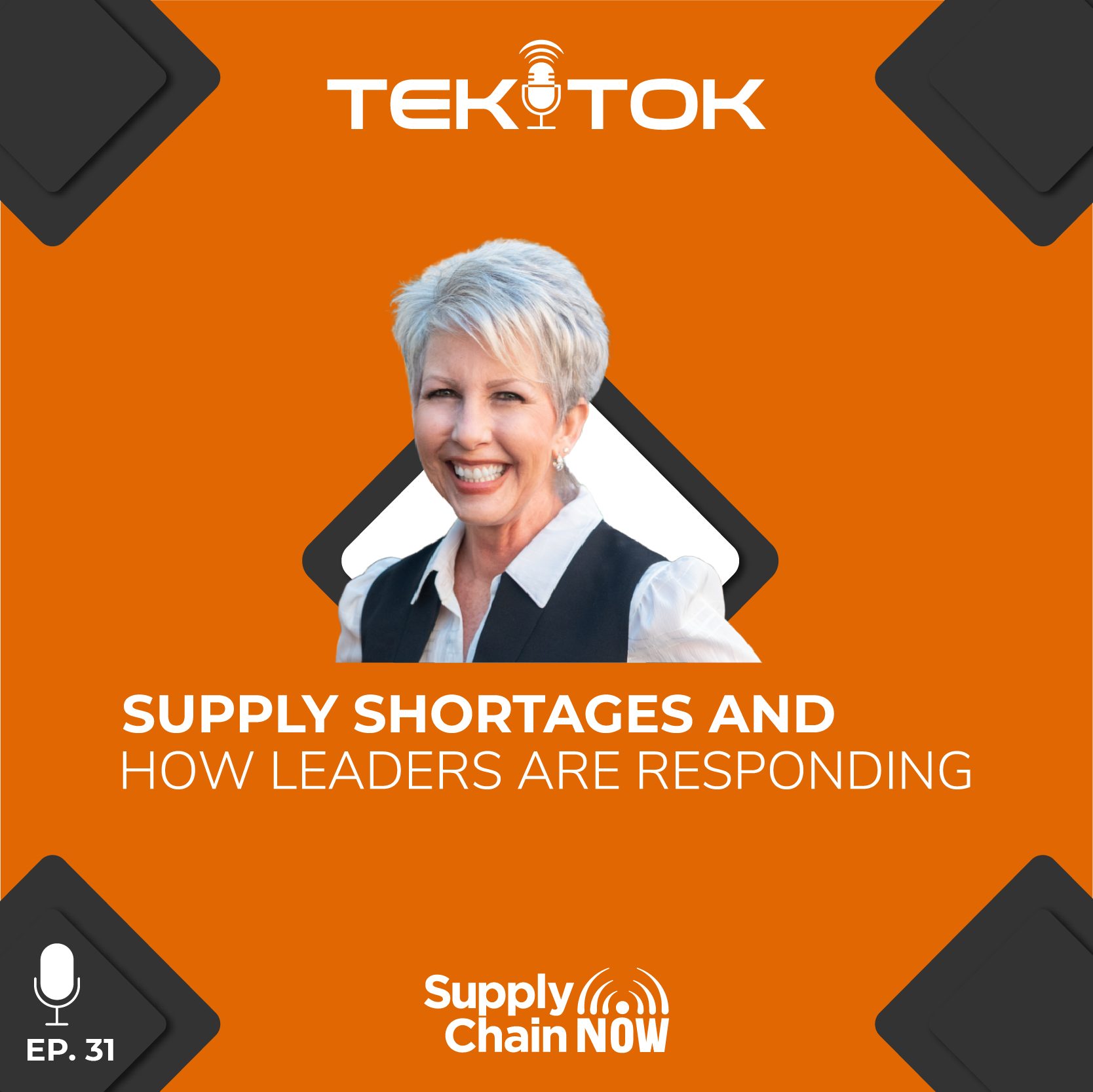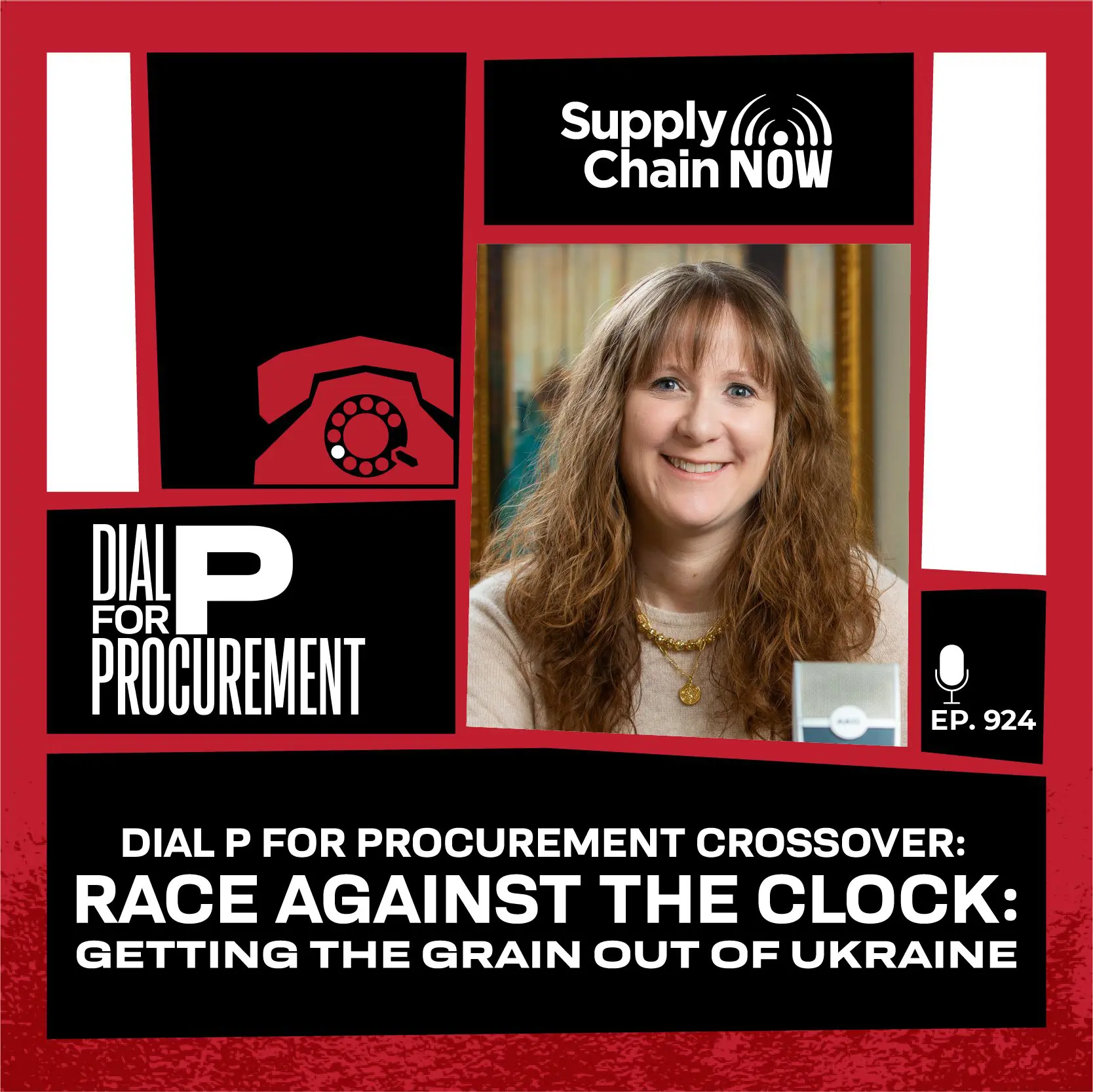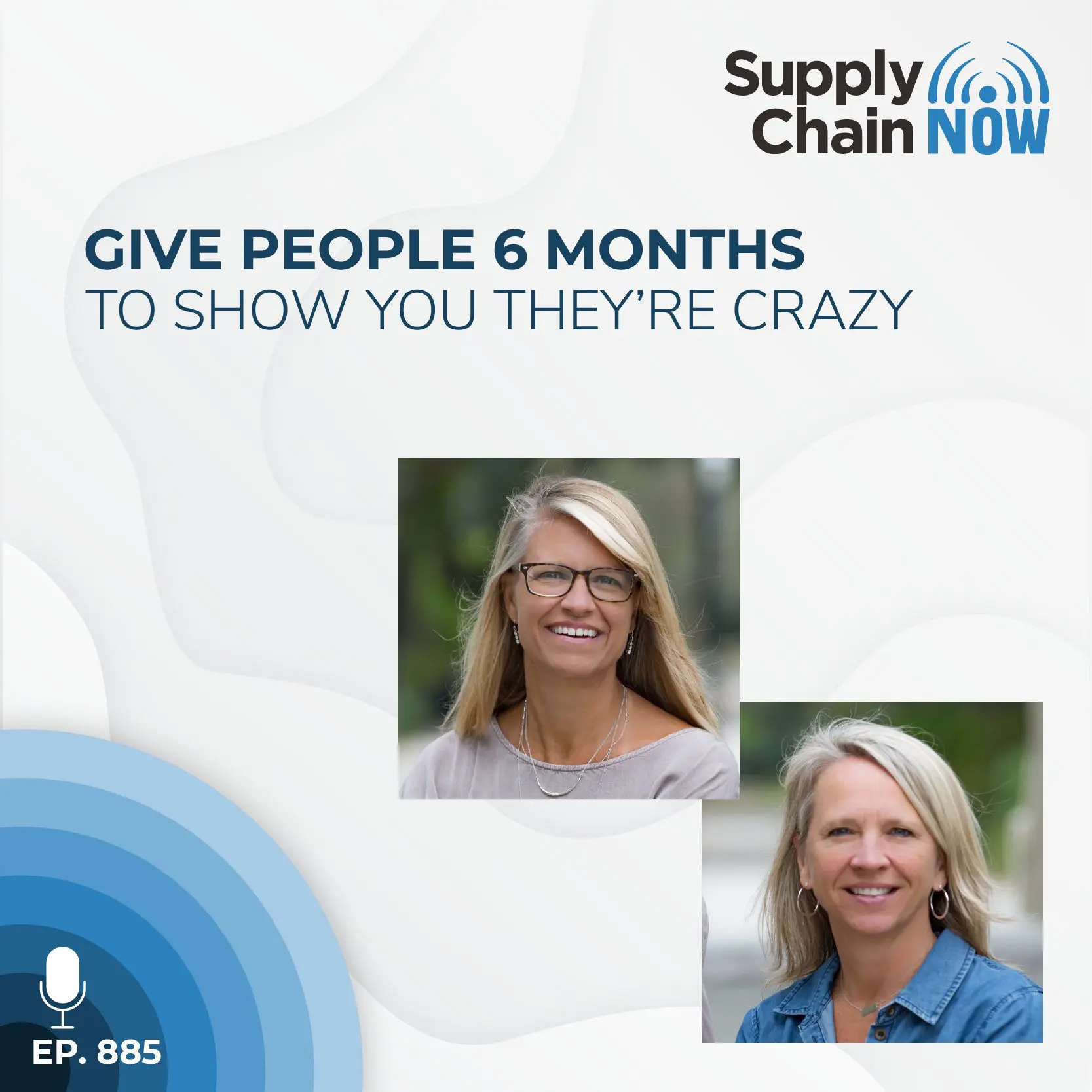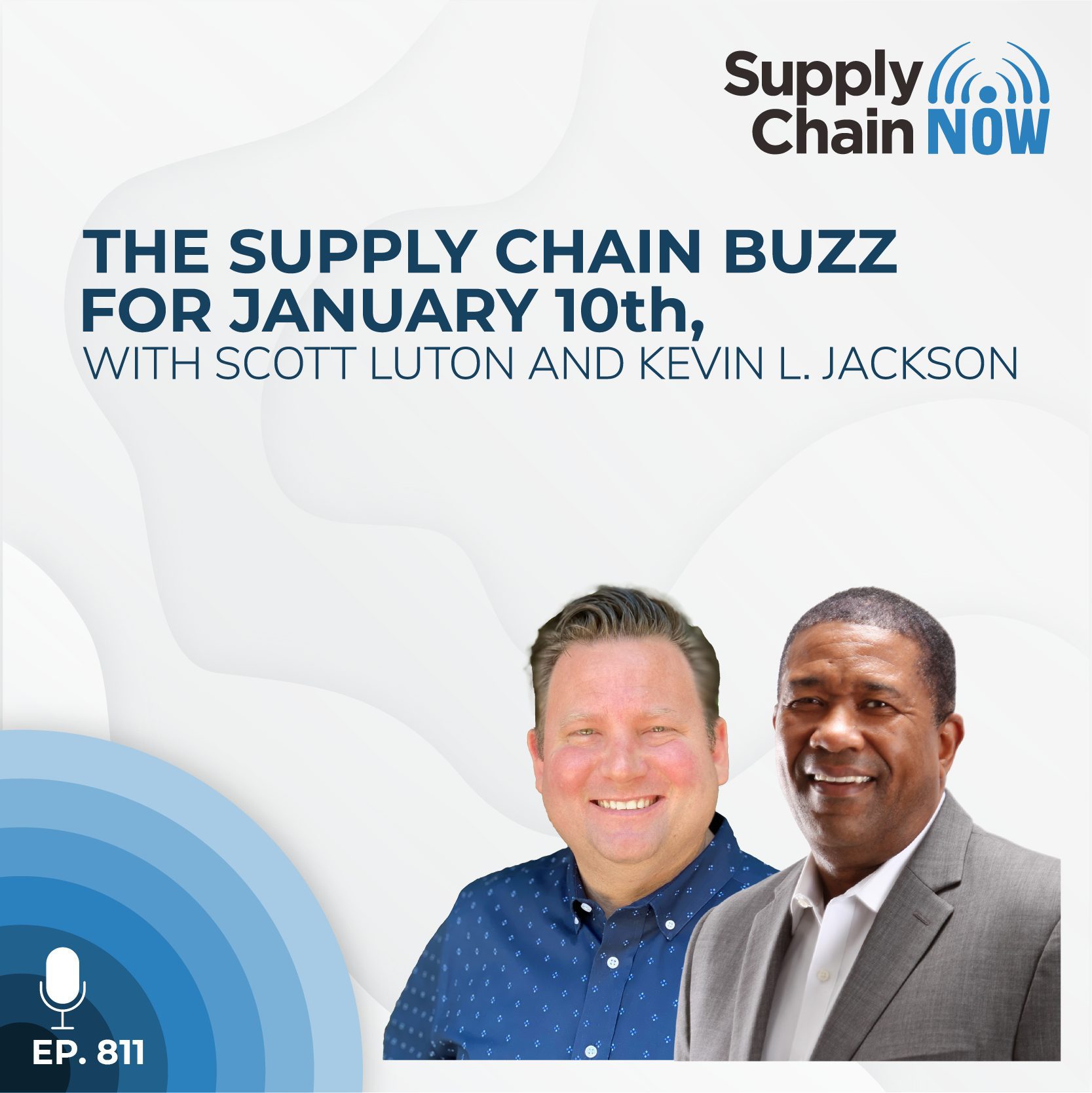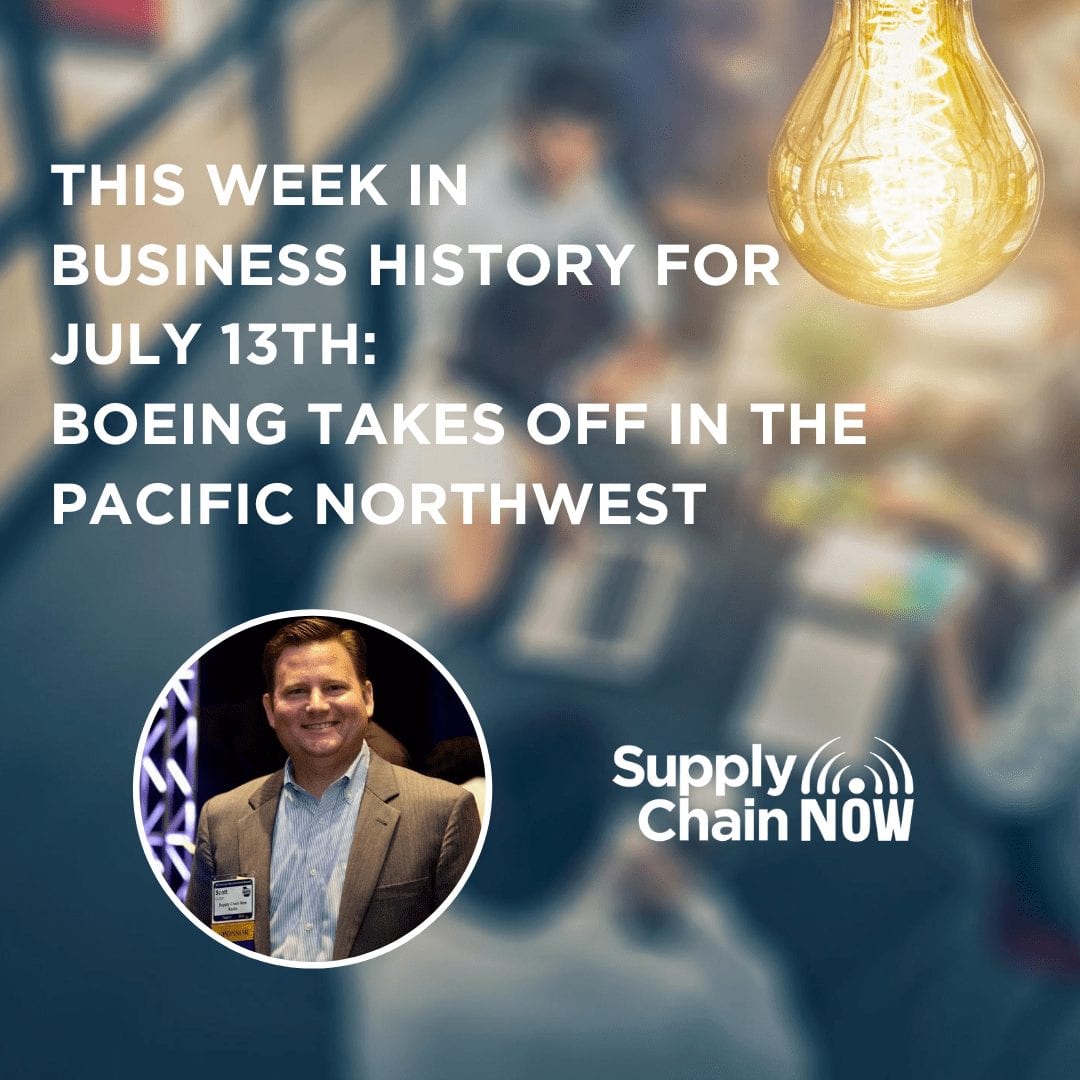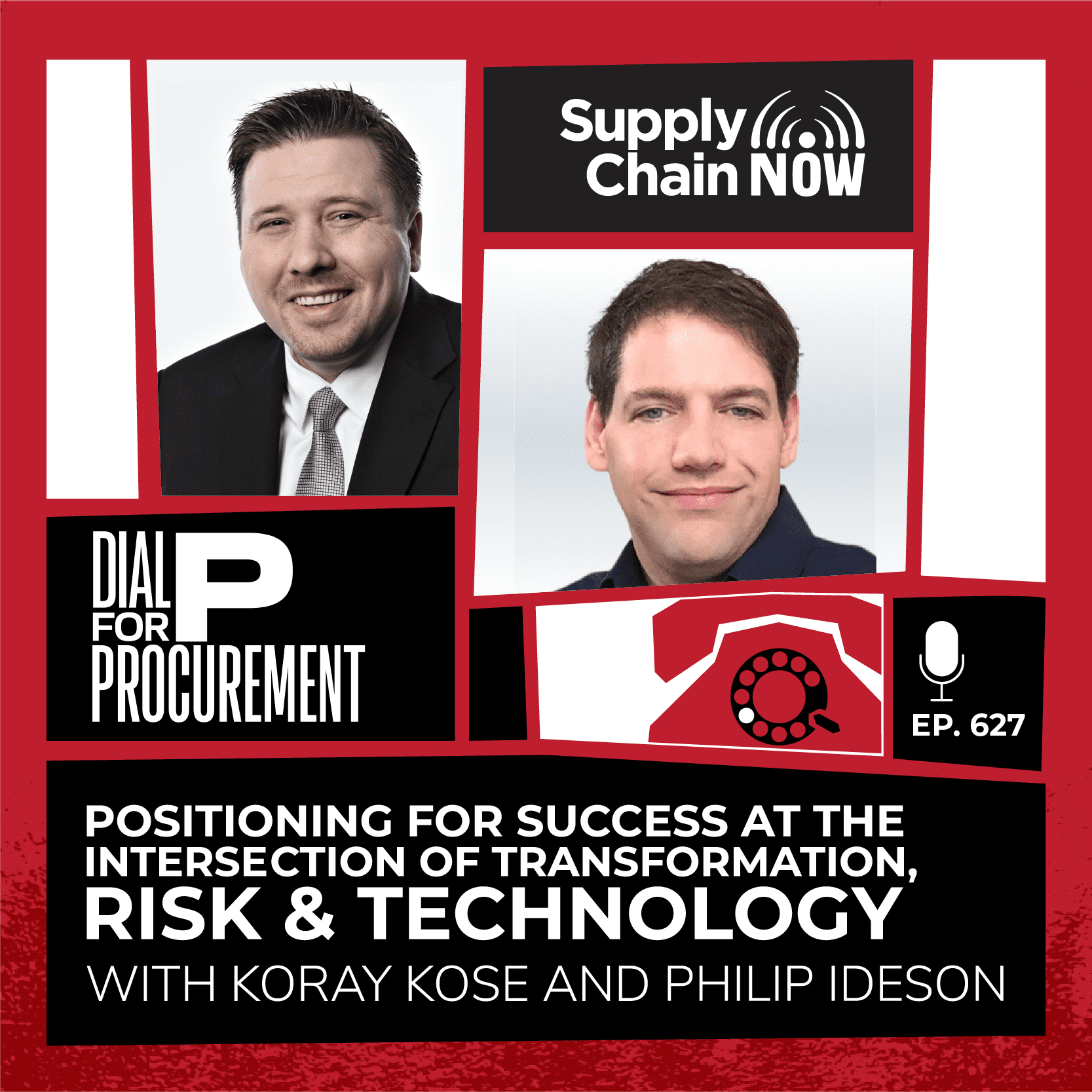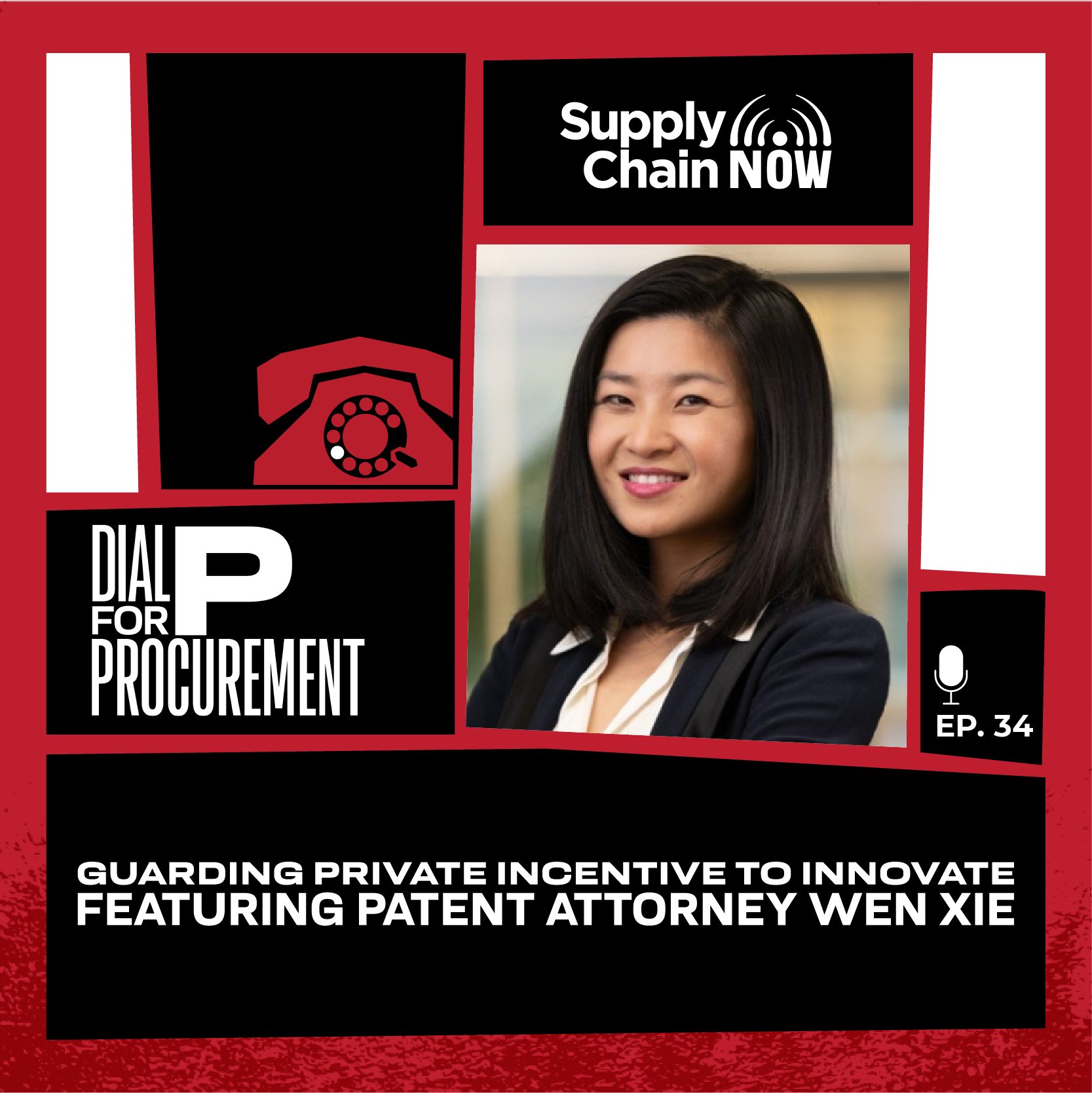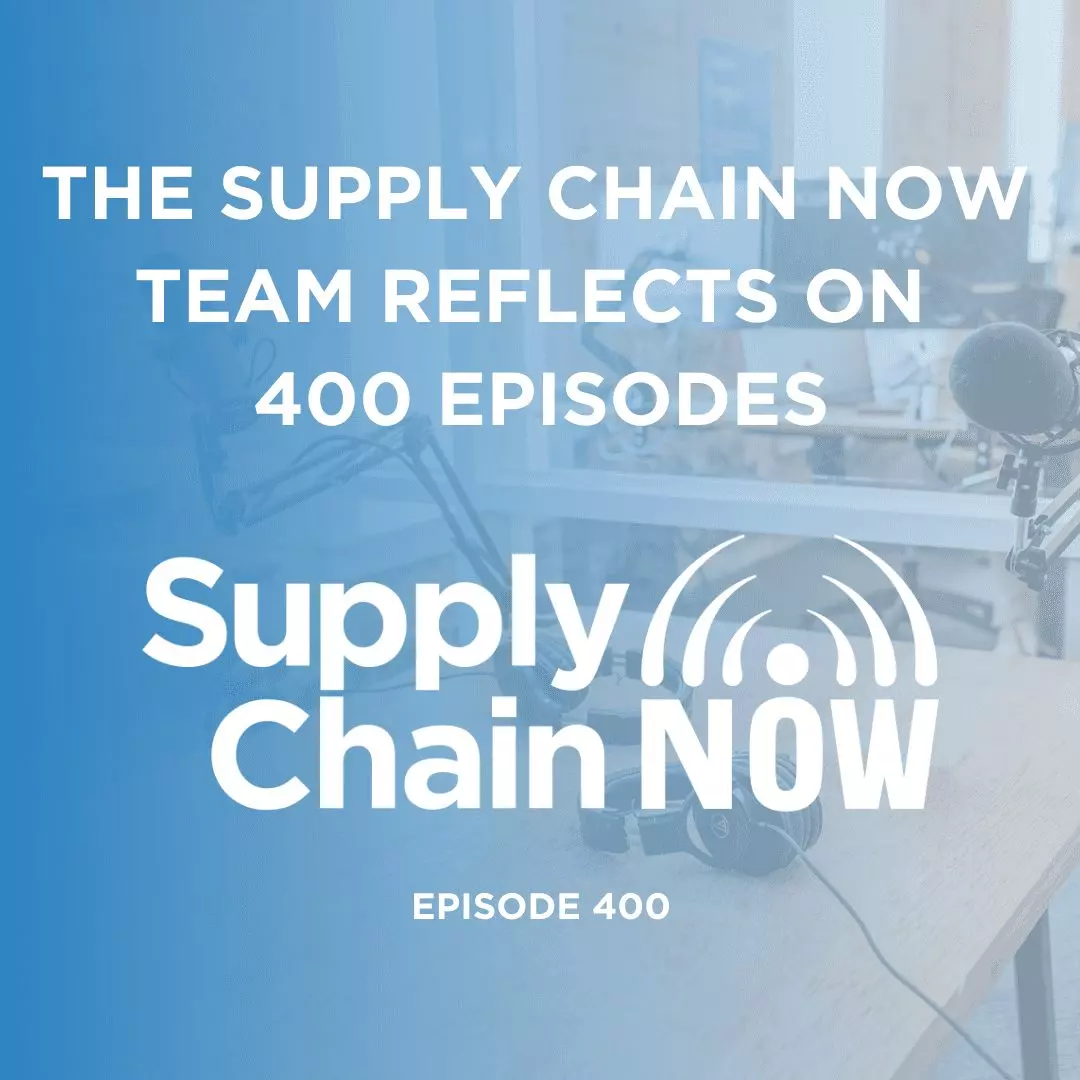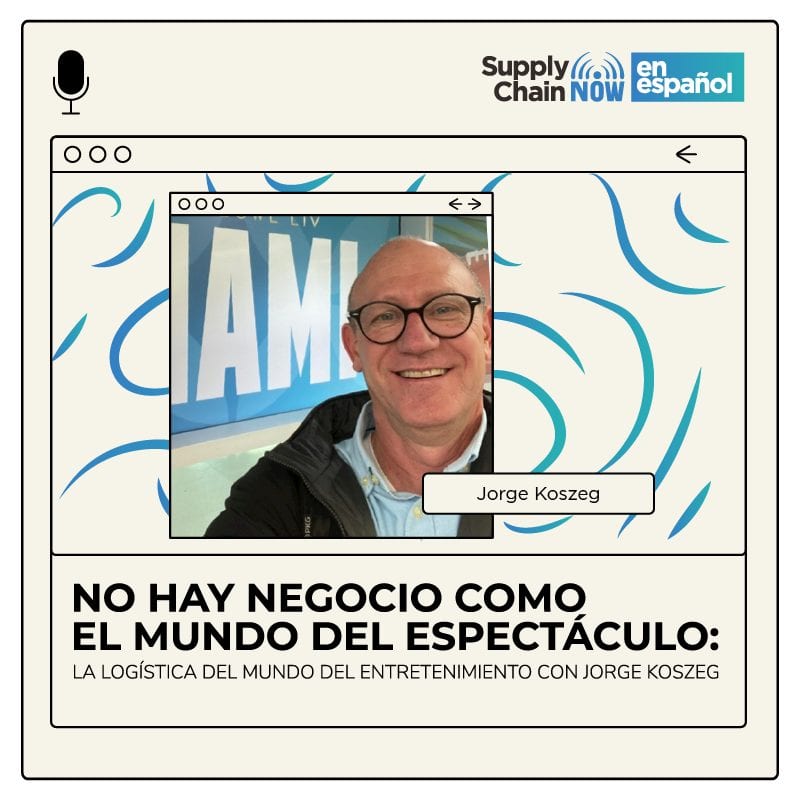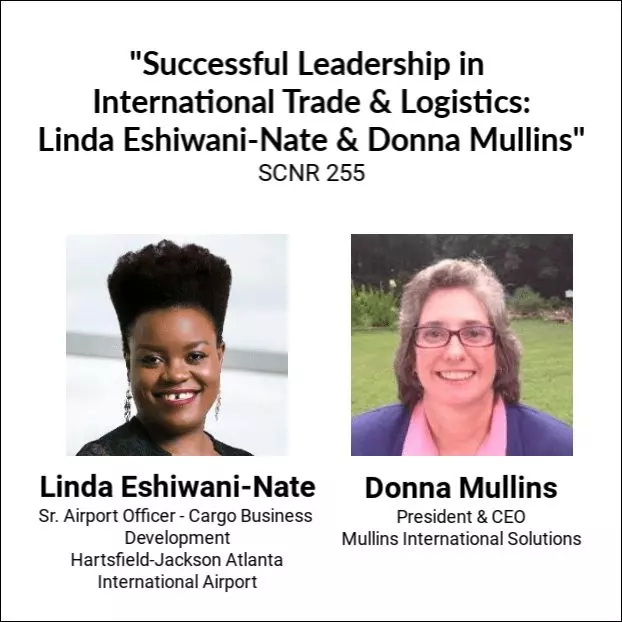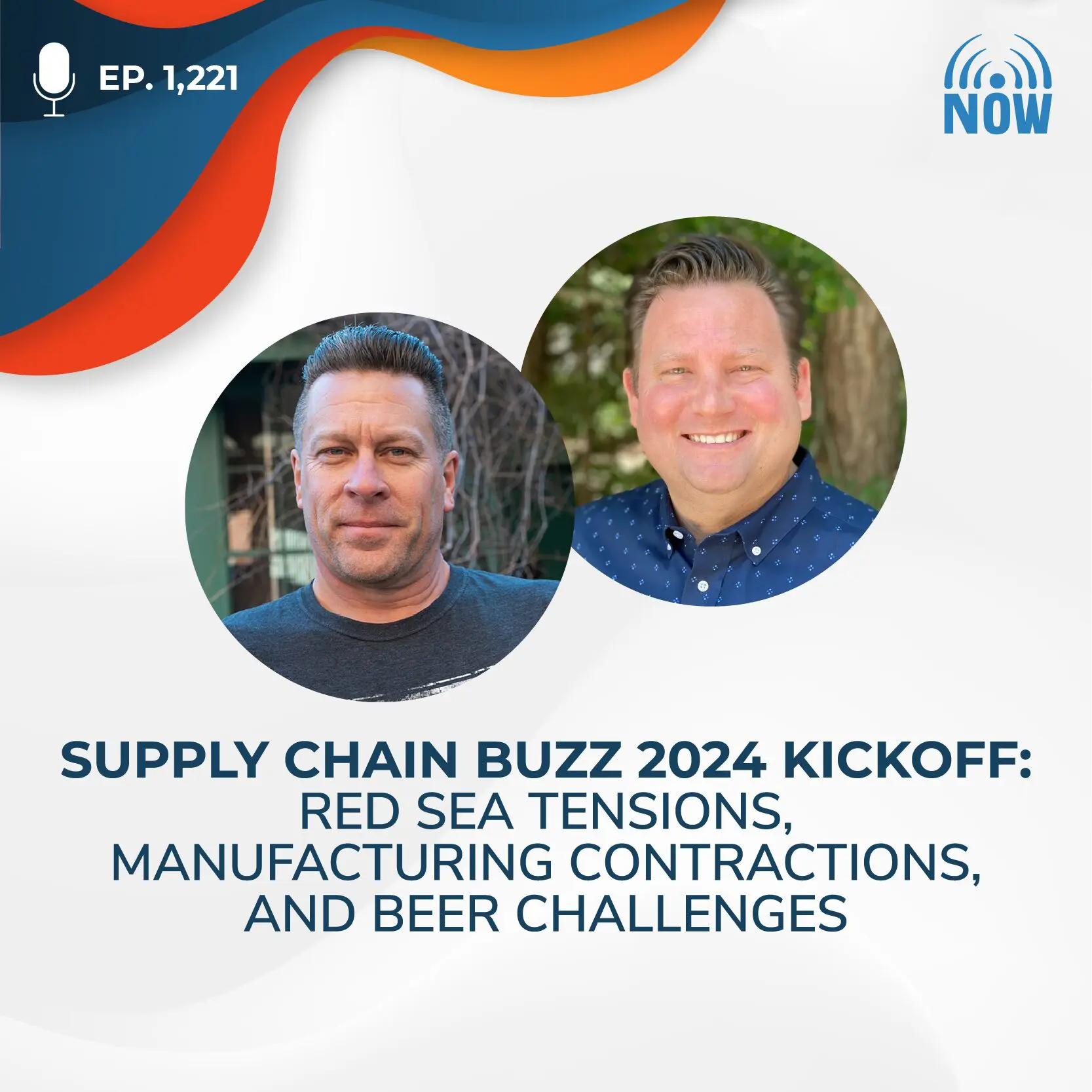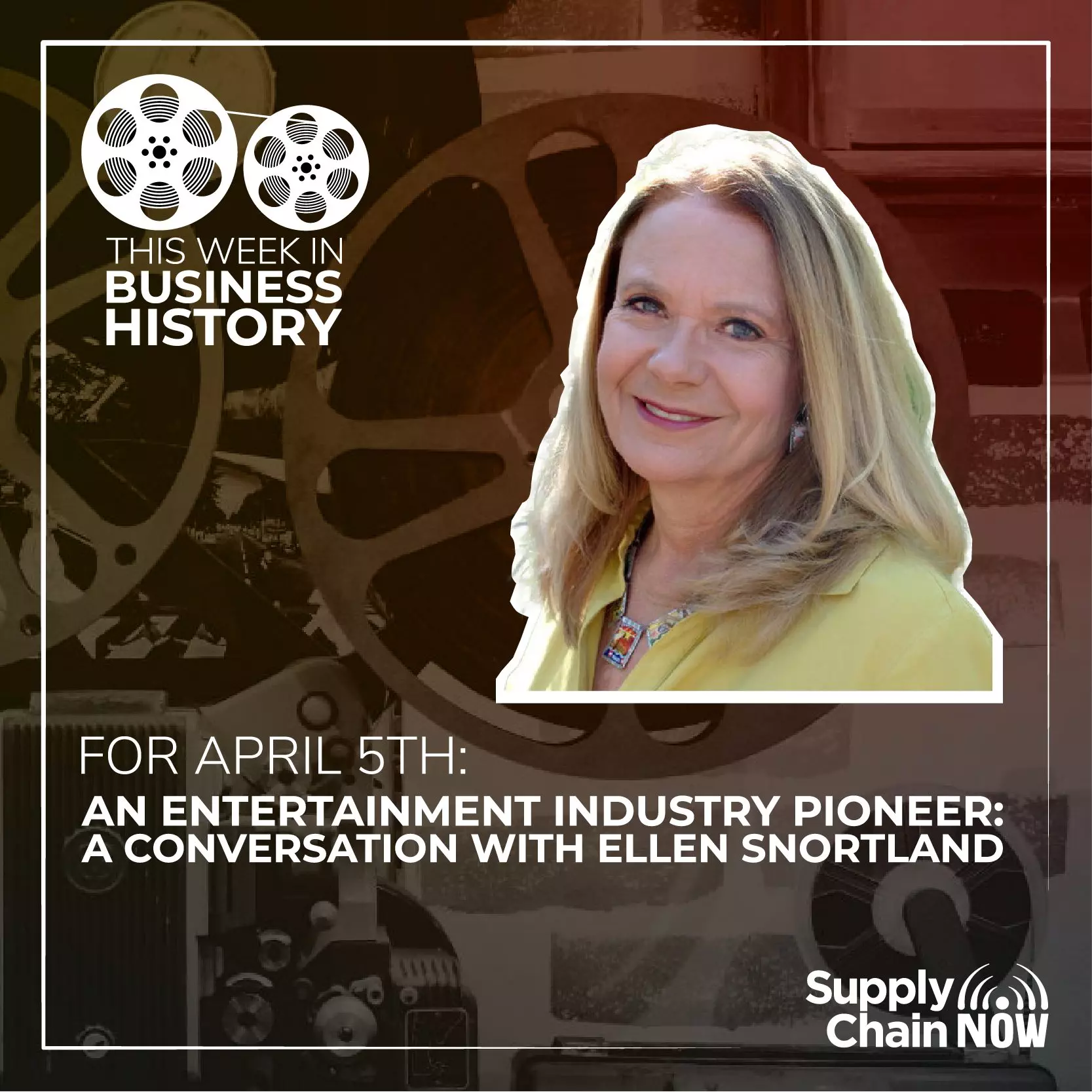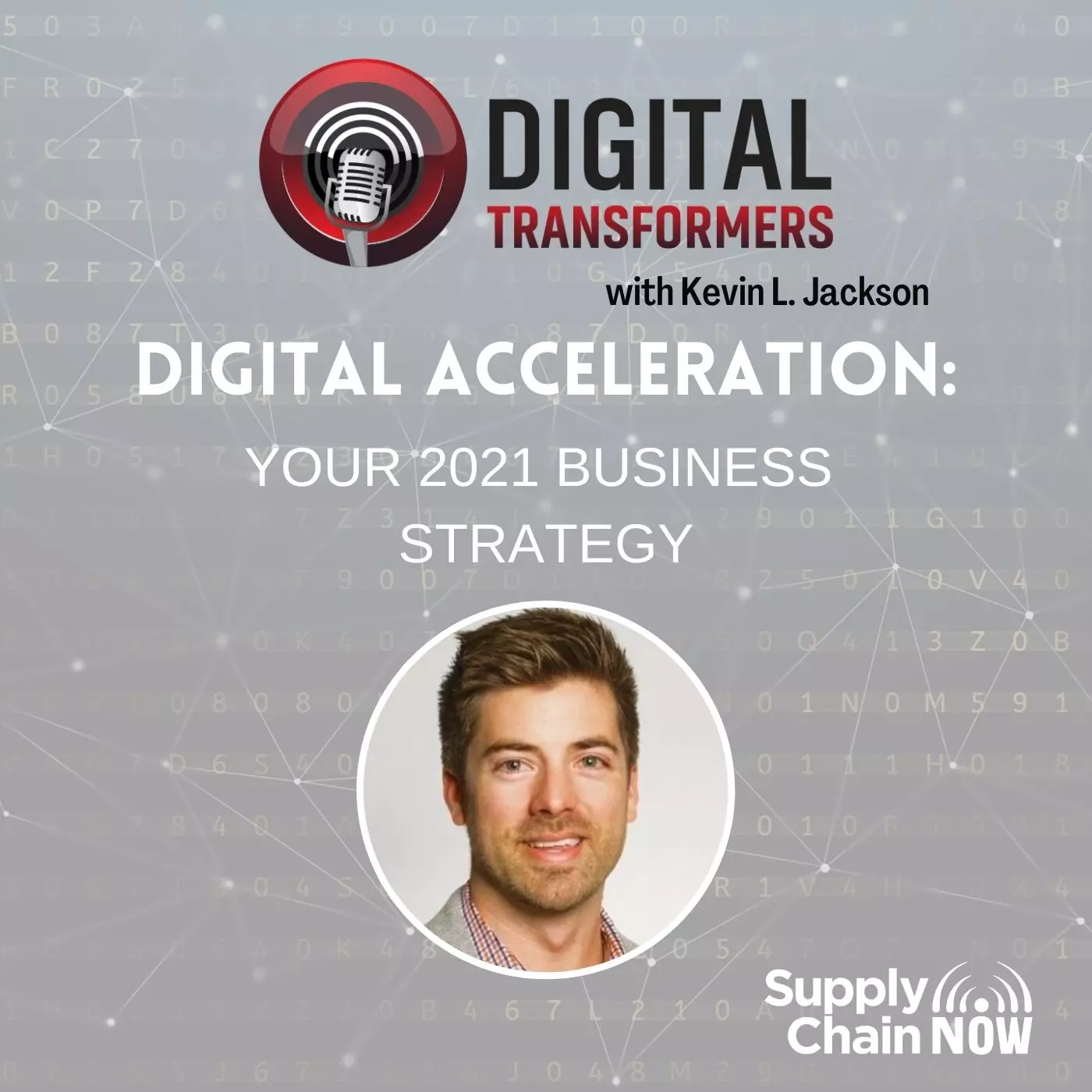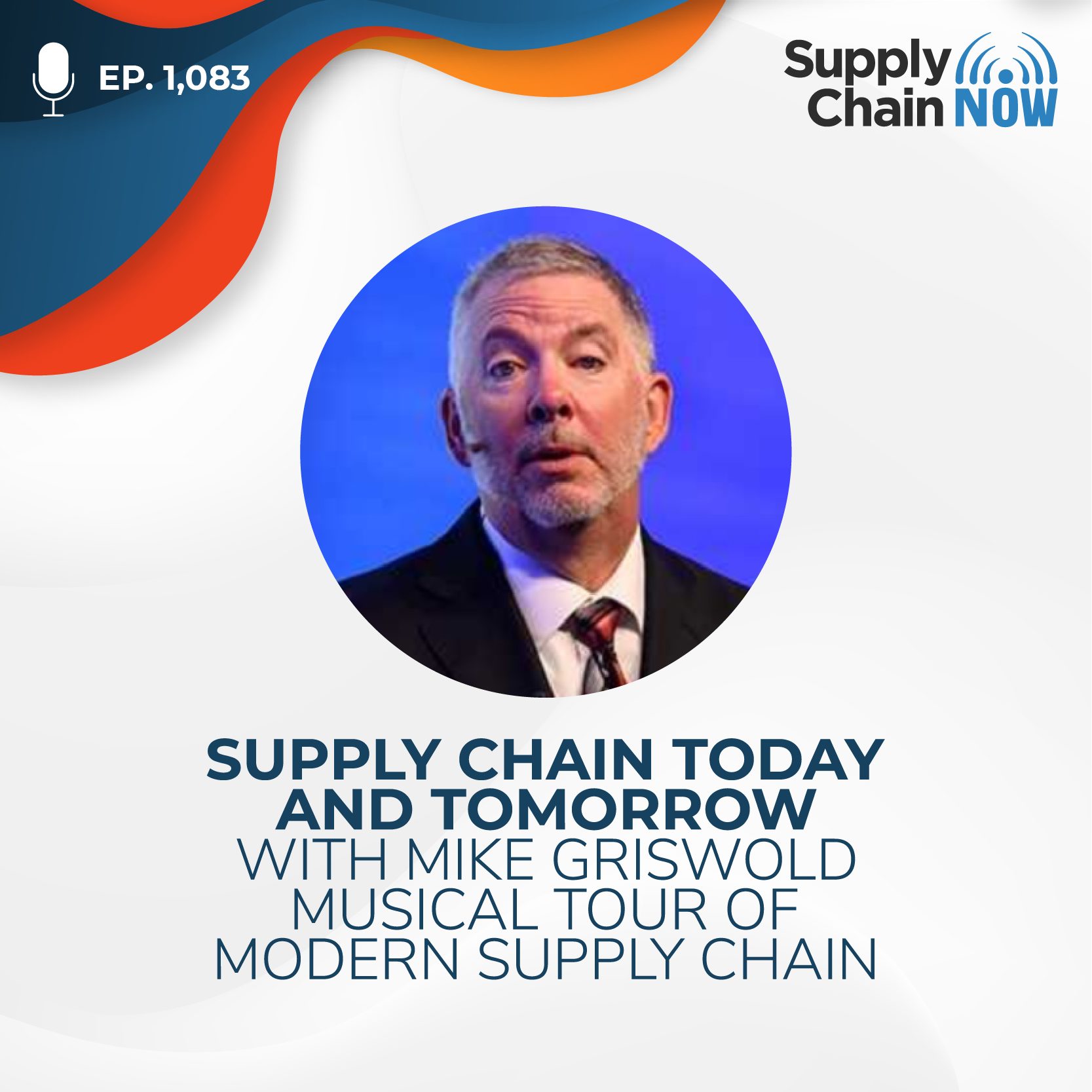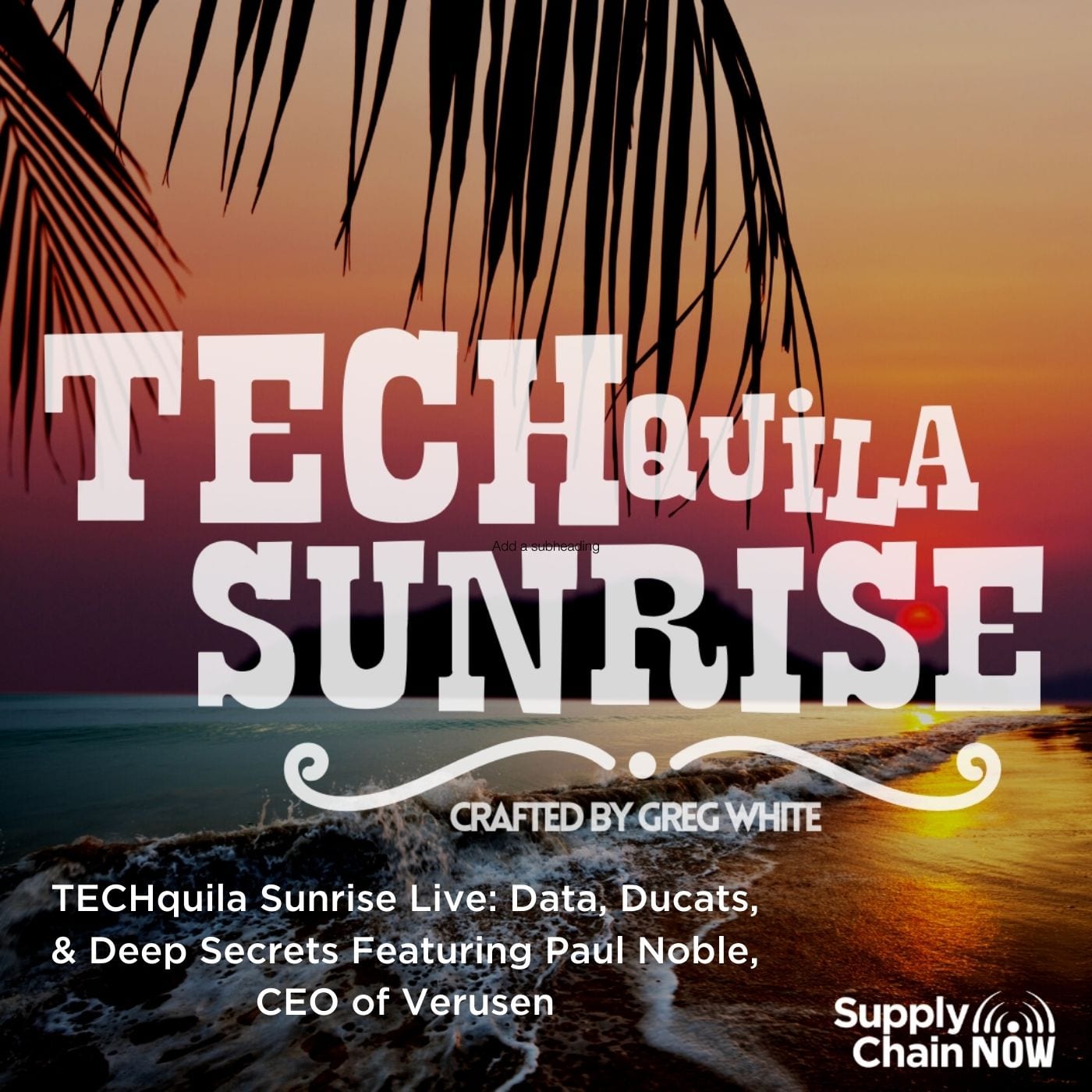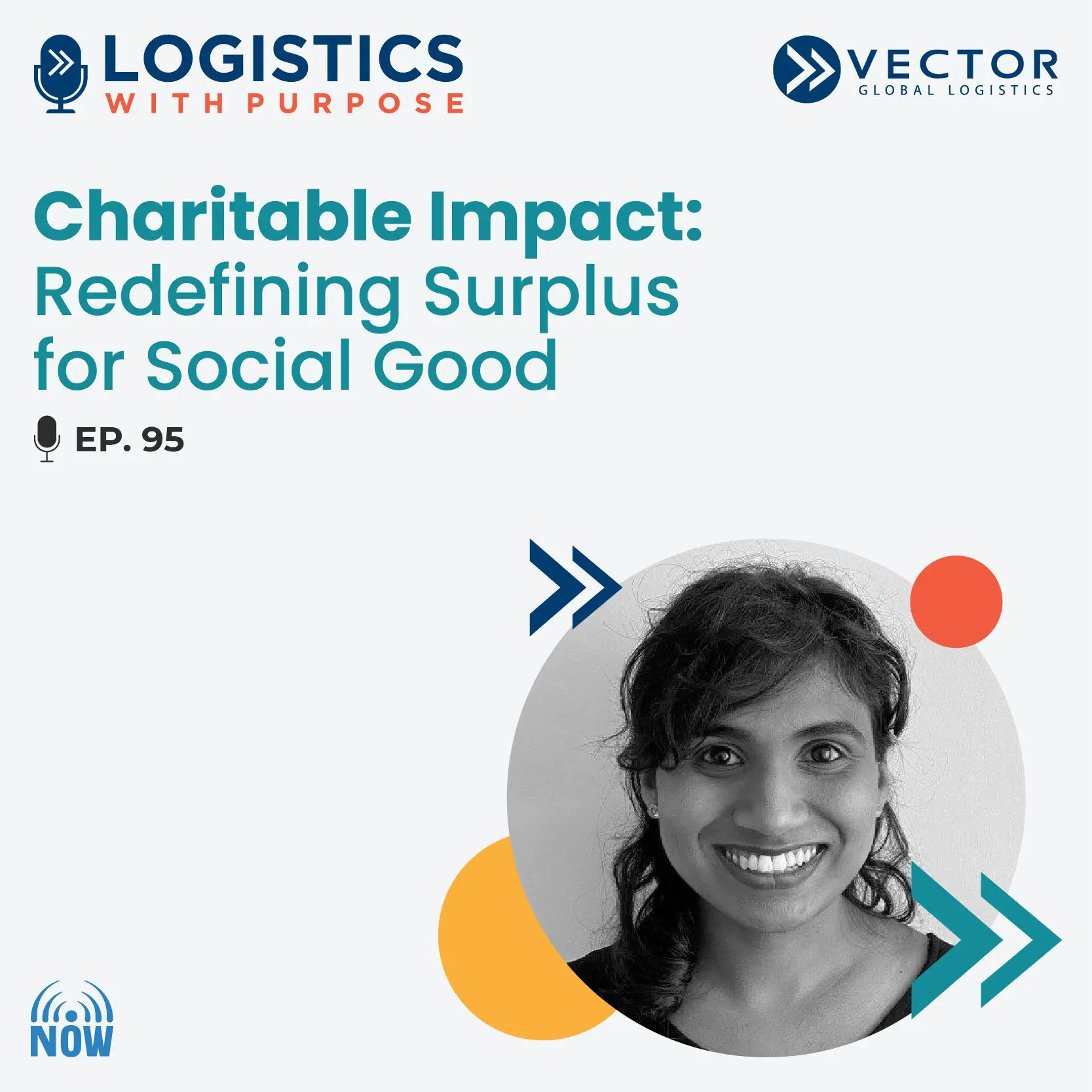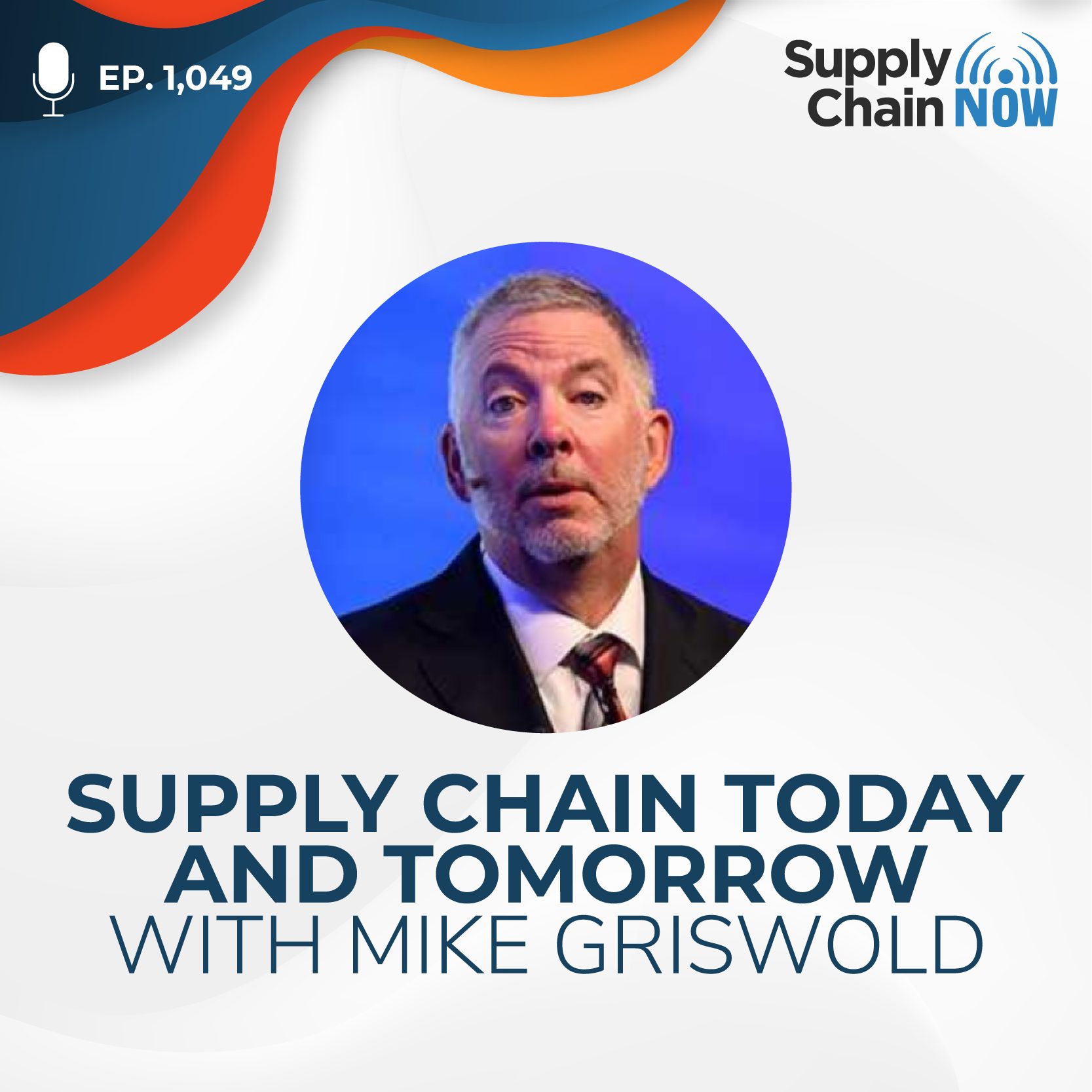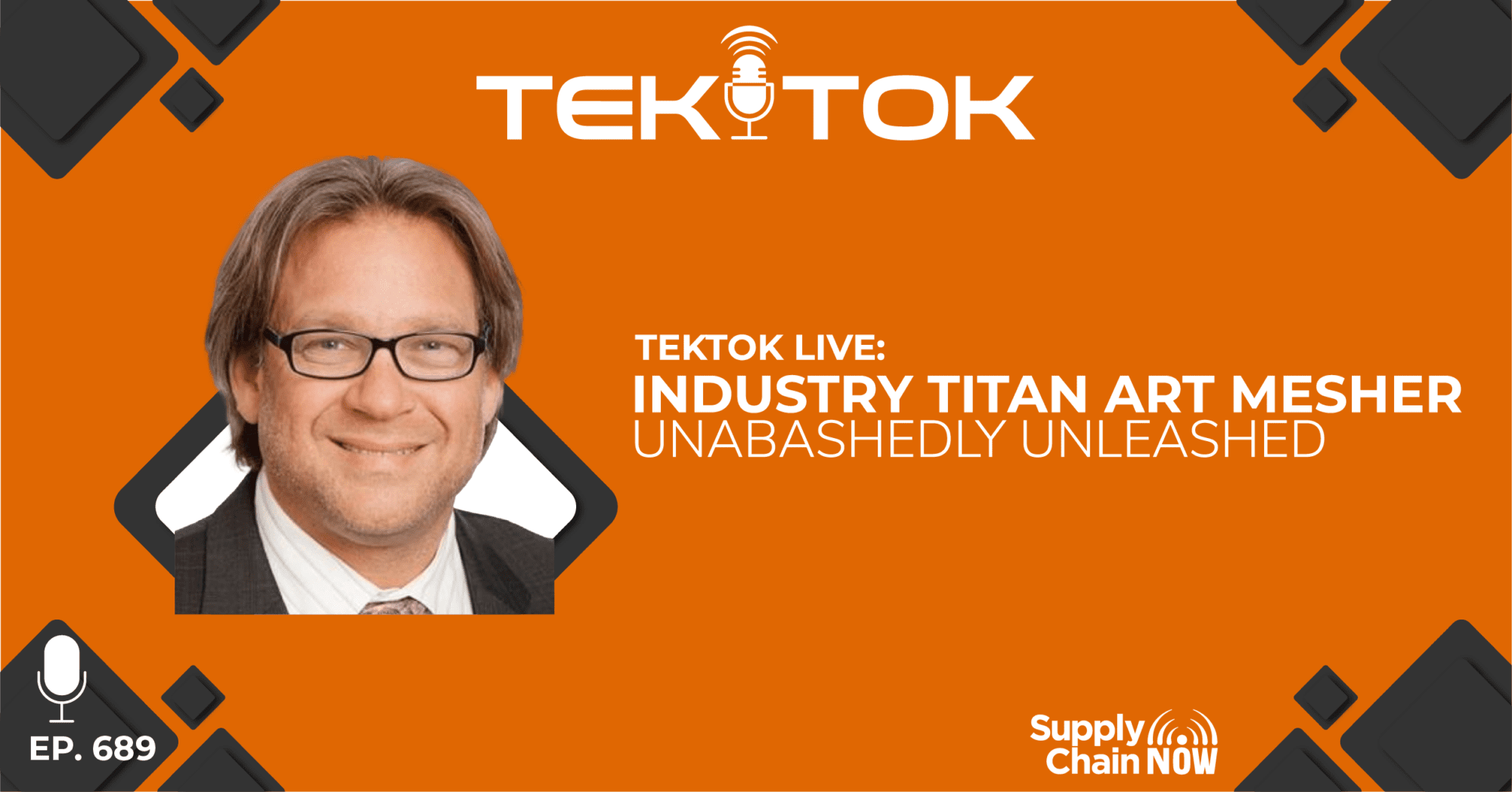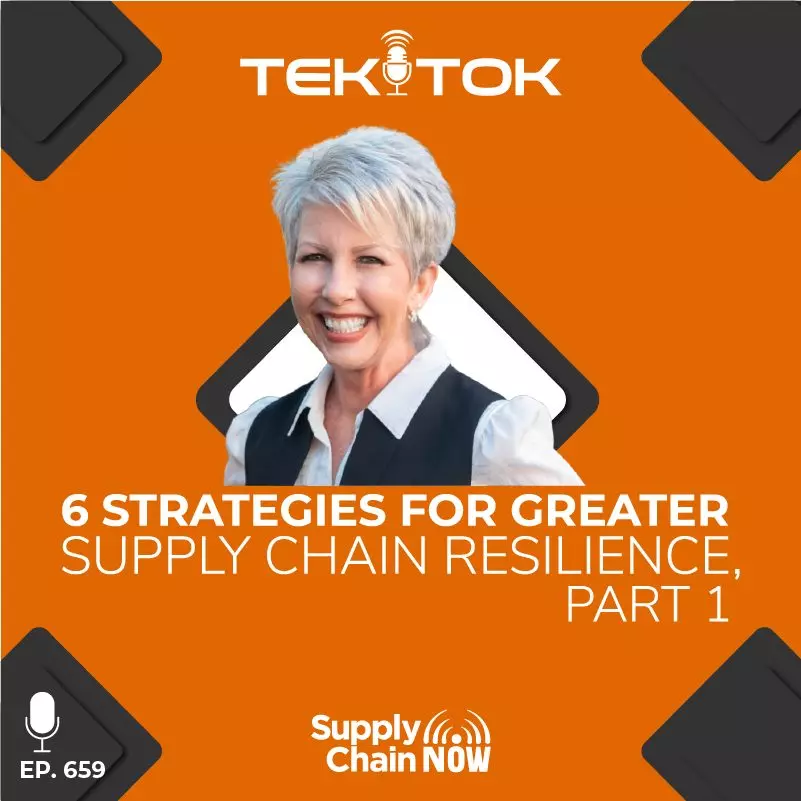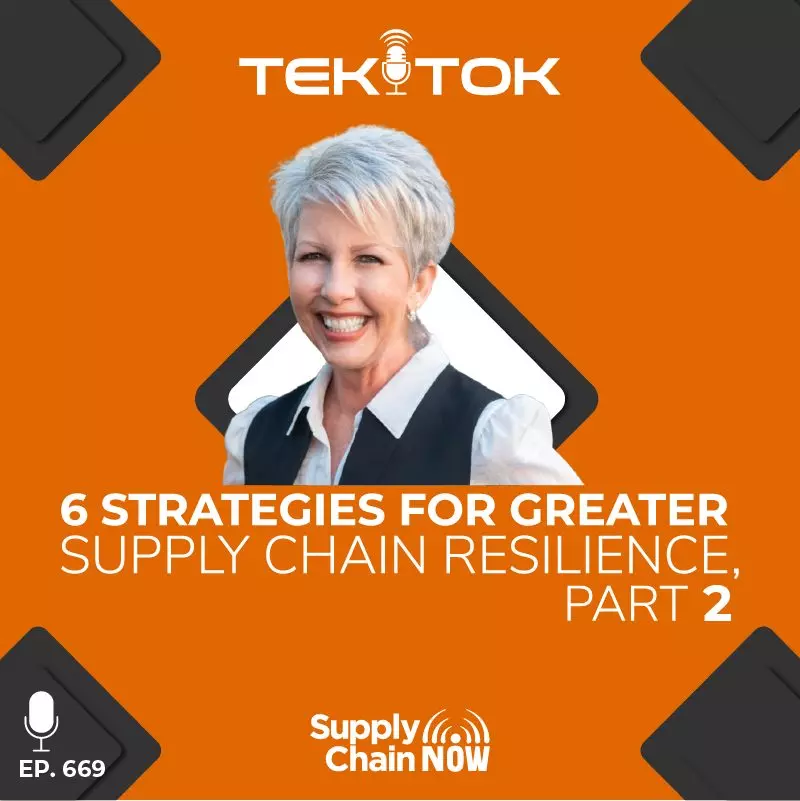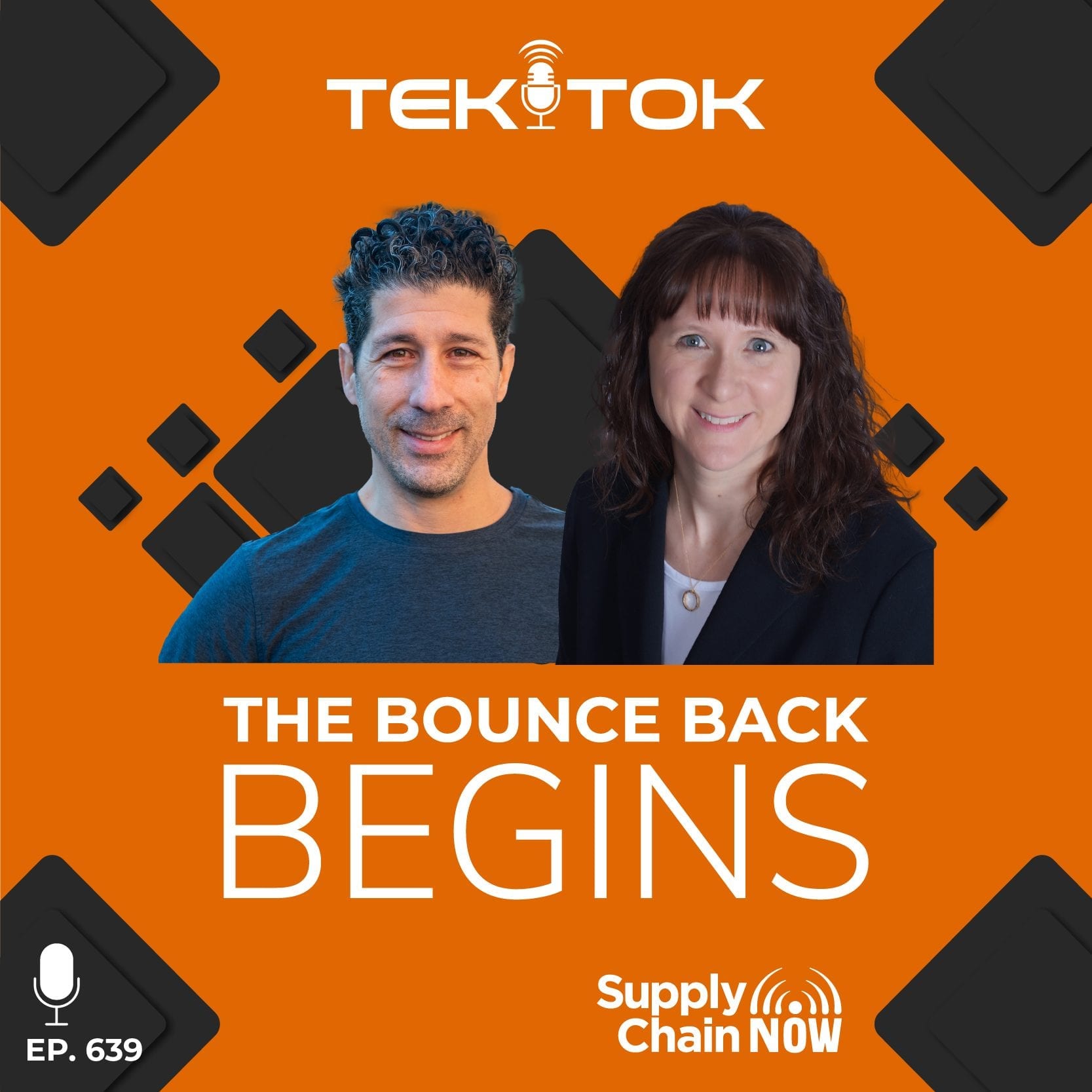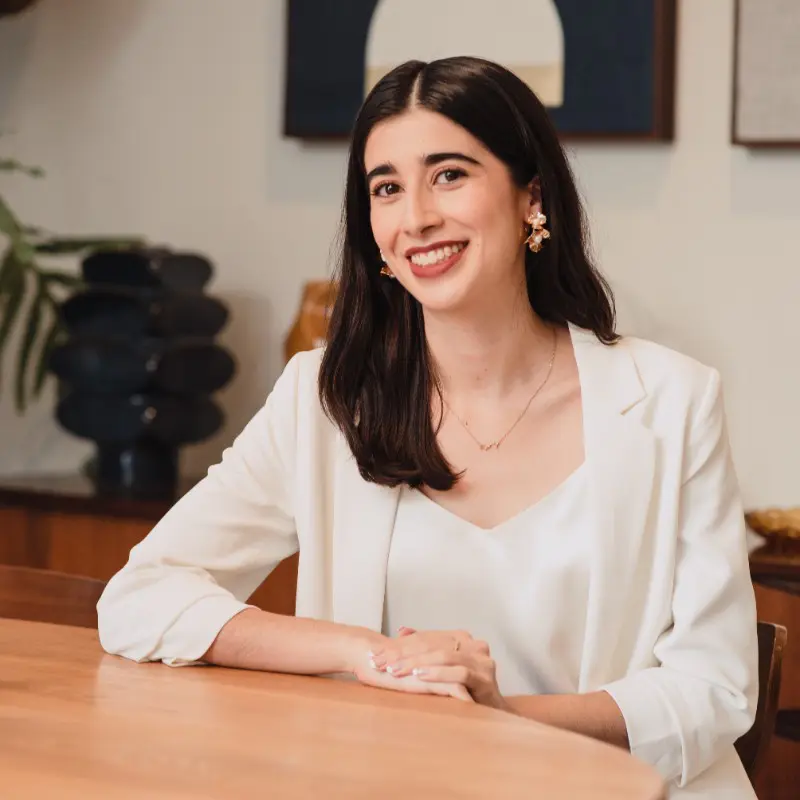Episode Summary
“People want to work somewhere where what they do makes a difference in the world. And, you know, supply chain is the backbone of commerce. What we do is really important. It matters a lot. It can change the world.”
-Art Mesher
How often do you get the chance to hear from someone who founded not just a company but an entire industry framework? Well, the opportunity has arrived. We sat down with Art Mesher, author of the “Three V’s” – visibility, velocity and variability – and member of the Supply Chain Hall of Fame (2016) to revisit how his ideas apply to the current state of supply chain – and find out why it’s always best to go fishing first. If you didn’t catch the livestream, tune in for the replay as we hear from a true supply chain giant.
Episode Transcript
Karin Bursa (00:01:15):
All right. Hey, good day, Scott Luton. And welcome to all of our supply chain movers and shakers. Glad to have you here today for TEKTOK Live.
Scott Luton (00:01:26):
Karin, how are we doing today? Man, you brought the heavy hitters as always today.
Karin Bursa (00:01:31):
I will tell you guys, the pre-call, so in our green room beforehand, I learned so much in ten minutes about our guest today that I didn’t know. And I have known Art Mesher for, probably, going on 20 years in the industry in general. But you guys better buckle up because you’re going to be entertained and informed as a result of today’s conversation.
Scott Luton (00:01:56):
Agreed. You know, the best stuff always takes place in this pre-show. It was a mini-master class on entrepreneurship, supply chain, and leadership, and then some. So, buckle up. We’re going to talk about the 3Vs. We’re going to talk about what’s going on across supply chain. What should be going on across supply chain and a lot more. But, Karin, for the three folks that may not know the one only Art Mesher, we’re going to kind of share his background in a minute. But what else are we talking about here today, Karin?
Karin Bursa (00:02:23):
Yeah. You know, I continue to believe supply chain is the place to be. There’s so much opportunity for practitioners, technologists to make an impact and make a difference. You know, inflation is a concern, right? And we’re hearing daily about stockout shortages, increasing costs. There was a great article that came out today in Supply Chain Dive, and it’s specifically focused on the chemical industry. And according to a recent research done by John Dunham and Associates, 85 percent of chemical distributors say that they are stocked out on at least one item.
Scott Luton (00:03:09):
Wow. And it’s getting worse.
Karin Bursa (00:03:12):
And it’s getting worse. Now, some of our audience might be thinking, “Oh, I’m not in the chemical industry. That doesn’t affect me.” It does affect you. If you are a consumer, if you purchase beverages, for example, Gatorade or Coca-Cola or any Smartwater products, one of the ingredients is citric acid. Citric acid is tied to the chemicals industry. And it’s one of the shortages that we’re experiencing. And I thought about this, Scott, from the perspective of, you know, the latest TEKTOK podcast series that we published was around –
Scott Luton (00:03:49):
Right. [Inaudible] stuff. Yeah.
Karin Bursa (00:03:51):
Yeah. Yeah. The feedback has been just super interesting, but it’s been around six strategies for greater resilience. And this is a perfect example of resilience, because these companies are having to bring in citric acid, as one example, by air cargo versus coming across on container ships because of the shortages and distribution constraints. It’s more expensive. But they’re trying to meet market demand.
Scott Luton (00:04:21):
Yeah. Really quick, we’re going to move on. I was on – this morning – a one-on-one conversation with the former leader of a very large aircraft manufacturing site we have here in the Metro Atlanta area. And, you know, all the boards that this individual’s own now, the board members want to know about global supply chain. They want to know more of the intricacies, not just what they want to know three or four years ago. They want to know some of the stuff we’re going to be talking about here today and some of what you just mentioned. And, by the way, just by you saying citric acid, my heartburn gets worse just by mentioning that. But, hey, we’ll save that for another day.
Scott Luton (00:04:55):
I want to talk about a couple of things before we bring on this big guest here today, Art Mesher. We want to make a couple announcements and then we want to say hello to a few folks that are already dialed in. Of course, you mentioned a couple of things there, digital transformation amongst other things. We’ve got a big upcoming webinar with our friends at Esker and Texas Christian University on July 27th – just a couple of weeks away – where we’re going to talk about how digital transformation, not just accelerates – because it’s really table stakes these days – but is strengthening your global supply chain. And I think part of what we’ll talk about later today is some of the governance of data that, of course, makes up digital transformation where some of the gaps are there. I think Art is going to touch on that. But, regardless, join us July 27th, where Kevin L. Jackson and I hosts a great panel discussion. The link to join is in the show notes.
Scott Luton (00:05:46):
Of course, we’ve got Lora Cecere’s big event coming up in September, where we’re the exclusive virtual host of the digital feed, September 7th through the 9th. Learn more at supplychaininsightsglobalsummit.com. Oh, I have one more. I got to quick on the mouse there. So, Karin, we talk about this a lot in our team and leadership calls here. And some of the folks that are pictured here are going to be part of this classroom, I think. But, you know, we get the questions all the time, how can I find a job? How can I advance? How can I find my way and move them away up the leadership rungs? Well, we want to answer or start answer more effectively those questions we get all the time. So, we have put together a home-run panel of experts that can talk about a wide variety of really true best practices, very practical, and a three hour live session, and that’s free. So, big thanks to Maria, and Crystal, and Peter, and Rodney, and Mark for donating their time to helping folks advance. That’s going to be July 29th, 4:00 p.m. Eastern Time. And you can register and learn more at supplychainnow.com.
Karin Bursa (00:06:56):
That’s going to be a good one. I really appreciate all the work that you guys have put in to putting that together. Because I firmly believe – I know I said this already today – supply chain is the place to be. And it’s connecting those talent resources with those available opportunities in the marketplace.
Scott Luton (00:07:13):
Agreed. Agreed. Okay. We’re moving fast because we want to protect every minute for this big guest here today, Art Mesher. But we got to say hello to a few folks that are already here with us. Of course, namely Peter Bolle, all night and all day, is back. Man, he is talking about a mover and shaker. He’s everywhere. I’m convinced there’s several clones. And, Karin, I think you’re a proud – and I’m putting words in your mouth – non-culinary [inaudible], right?
Karin Bursa (00:07:41):
I don’t know that I’m proud of the fact that I’m not a foodie. Foodie is the word I use. I like food, but I don’t quite have the skills that many of you out there have.
Scott Luton (00:07:55):
Well, I appreciate that transparency. My wife would put me in the same category, especially when it comes to my skillsets. But, hey, we created this Facebook driven food group, just as a departure from all the work in the industry and supply chain related stuff we do, as an outlet a bit. Well, Peter brings it in spades, tons of great recipes and even pictures. So, if you like food, join our group. Amanda or Clay or Allie or Jayda, if y’all could drop the link in the comments. But it’s really fun and it’s a great way to meet people and find more about passions other than supply chain. So, hello, Peter. Lauren Gibbons is with us. And I think Lauren must be inviting Stephen. Stephen, where are you at? This is something to watch. Yes. You take notes, wooing carrier stuff, wooing supply chain gurus. You’re going to have 17 pages of notes with Art Mesher and Karin here today. So, Lauren, thanks for joining us via LinkedIn. Of course, we got to call out Clay Phillips, Amanda, Jayda, and Allie, all behind the scenes helping us with the production, helping us engage in your comments, questions, and then some. So, big thanks to the dog, Clay Phillips.
Scott Luton (00:09:04):
Okay. So, with no further ado – and, by the way, folks, bring it here today. Between Karin and Art, they want to hear from you. They want to hear what you’re thinking. We may pose kind of an overarching question on the frontend. So, stay tuned for that. But, Karin, I’m going to pass it over to you so we can give our guest a proper introduction.
Karin Bursa (00:09:24):
Absolutely. You know, and to give him a proper introduction – to give Art Mesher a proper introduction, we could actually use the entire livestream today just to talk about what he’s achieved. In fact, one of the things that I learned before our pre-show is that, Art has started or invested in ten software companies that focus in supply chain that are now worth more than $10 billion.
Scott Luton (00:09:52):
Wow. With a B.
Karin Bursa (00:09:53):
Right. With a B, $10 billion in value. And many of them are still continuing to innovate and grow. So, that’s one of his accolades that I didn’t even know about before today. But some others are, that he was the first technology leader to receive the Council of Supply Chain Management Professionals Distinguished Service Award, and that was in 2008, so the very first one. And there was an uproar around that because it has always gone to practitioners. But he’s done so much for this industry that the Council of Supply Team Management Professionals, CSCMP, wanted to recognize his contributions. And he was entered into the Supply Chain Hall of Fame in 2016.
Karin Bursa (00:10:42):
He is the former CEO and Chairman of the Board of Descartes Systems. Which, one of the interesting things about Descartes is they were the first on-demand logistics network to talk about vision and putting it into practice. And Descartes, in particular, has received a number of accolades as well, Best Canadian Corporation, Best Business Turnaround Story under Arts leadership. One of Canada’s most admired corporate cultures. So, I am so excited to have him join us today and to hear whether he’s ready to share with us. So, I’m going to ask the team to go ahead and swoosh him in.
Scott Luton (00:11:22):
Let’s do it.
Art Mesher (00:11:27):
Hey. Hi.
Karin Bursa (00:11:28):
And there he is. I feel like there should be applause or something happening right now.
Art Mesher (00:11:32):
Can I just let everyone know that I started unloading trucks. And I don’t know what culinary stuff you were talking about, but I love to eat hamburgers. And I have a ten second drop rule, not a five second drop rule. I have children, so I’d like to think I just come from the shipping dock and don’t mind if my food’s got a little grit in it.
Scott Luton (00:11:55):
I love it. I love that. And you’re kind of referring to your time as a lumper. We might touch on that here momentarily. But, first off, Art, you’re tuned in via Georgian Bay, which is you gave us a nice screenshot of the surrounding areas up there. It is gorgeous. Tell us, what do you love about being in that part of the world?
Art Mesher (00:12:16):
Well, first of all, I would say that I have a jail that’s made out of gold because I’ve been here 68 weeks hiding from orbit. For all of you world travelers in supply chain, I’ll ask any of you, when’s the last time you woke up every day in the same bed for 68 weeks? And my mother told me never. But it’s beautiful up here. And we know in my Gartner days, I used to be at work all day. But I get up really early morning. I lived in the Eagle’s Nest in Wisconsin. And I’d get up around 4:30, and I’d fish the river, and I would think about what I was going to write. But then, I would spend the day on the phone. So, you didn’t write during the day. You spent the day on your phone. But I would always use my mornings to — on what I would write — in the evening. Really, you know — as Beth Denzel used to say, “When I was getting stale, you need to go fish.” So, I figured I might as well be up here where they say I do my best work.
Scott Luton (00:13:23):
I love it. I love it. So, Georgian Bay is where you’re tuned in from. And I know we’re going to be talking about so much stuff here today, the 3Vs and then some. One final question on the personal side before I turn it over to Karin and we dive into more of the heavy lifting. So, you mentioned you love food, but when it comes to sports, is there one team that you’re the biggest diehard for?
Art Mesher (00:13:47):
Anyone my son was kicking for.
Scott Luton (00:13:50):
Really?
Art Mesher (00:13:50):
Yeah. My son was a football kicker in university and finished in the top 15 all time in Canada for many things. And wherever he was playing, that was my team.
Scott Luton (00:14:01):
I love it. His first name?
Art Mesher (00:14:03):
Nathan “No pressure” Mesher. That’s my nickname.
Karin Bursa (00:14:11):
Versus, Scott “High Pressure” Mesher, which is who we have with us today.
Scott Luton (00:14:17):
That’s right. Hey, one more quick thing – I love that. And I’m really looking forward. I’ve got my notes taking encyclopedia here ready to go – I want to give a couple of shoutouts. Jose is with us here today via LinkedIn. Jose, hope this finds you well. Great to have you here. Corac Cose is back with us from Gartner, as you mentioned earlier, Karin. “Noontime is now Supply Chain Now time.” I love that. Nanda is tuned in from across the pond. Nanda, I want to say Norway, I believe I got that right. I hope this finds you well. And then, finally, Gregory is tuned in via the Caribbean. We have deemed Gregory as the Shakespeare of supply chain, I think, based on some eloquent perspective he shared on one of the previous livestreams. But great to have you here, Gregory. Okay. And welcome everybody else that we couldn’t get to. Karin, where are we starting here with High Pressure Mesher?
Karin Bursa (00:15:12):
Sure. I know. I know. He earned that title. It is accurate for sure. So, one of the things about Art Mesher is that he has been in this industry and, clearly, hands-on, as he just shared with us his very first job unloading trucks. But in 1998, Art wrote a paper or put down some of these observations that he’s had. And it resulted in work around what he calls the 3Vs of supply chain, so that’s visibility, variability, and velocity. And, Scott, these things are so interwoven and to everything we do today that I think people don’t even realize that his research and his perspective are the foundation for that. But this is as important as the bullwhip effect.
Scott Luton (00:16:07):
I’m with you. And, you know, as an entrepreneur and Art’s track record there, it’s just captivating to me. And as I think about the velocity, if you’re going to scale that velocity – in e-course, you got to get it right and all – you got to keep at least one eye on how fast you’re going and how well and how effectively you can scale. So, I love this 3Vs discussion. I’m ready to dive right in, Karin.
Karin Bursa (00:16:30):
Yeah. I want to dive into each of those. But, Art, when you put that down for the first time, did you think it was going to have the impact on the market that it’s had over these years?
Art Mesher (00:16:41):
Well, I think that’s the pressure of trying to be a great analyst. I mean, if you go back into the early ’90s and mid ’90s, the role of the analyst community was different than it was today. There was a gentleman named Roy Schulte who was at Gartner, who was really doing the pioneering research on message oriented middleware. And, you know, we all wanted to do work when we wrote something that would last forever. ERP was invented by John Wiley and Eric Keller in the halls of Gartner. And we used to joke because we all know there’s no planning in ERP at the time. It was enterprise resource, not planning. But it was called ERP and lasted forever. It’s still there. So, the goal is to do it. And then, the performance anxiety is it’s never good enough.
Art Mesher (00:17:37):
I was really lucky that I had some really good mentors at Gartner who, basically, told me my stuff was horrible all the time and made it really good. So, you know, the answer is, yeah, I wanted to do something that was anthemic and seminal, those are the words I used. I want it to be an anthem and I want it to stand the test of time. We play a game on New Year’s, what’s the most seminal and anthemic rock song, and play this on New Year’s. Is it Hey, Jude? Is it Hotel California? What is the most seminal, like, lasts forever and an anthem?
Scott Luton (00:18:17):
Don’t stop believing.
Art Mesher (00:18:20):
Don’t stop believing, that’s right. So, the quest at the time to be a great Gartner analyst was to really build anthemic work. I would say it’s different today. The internet and content and everything that’s going on has changed what the objectives were. But, for me, it was like this, I mean, I went to Gartner. I sold a company. I was an entrepreneur. I was working, doing some work on developing this thing called Sabre. I was with the CEO and CIO of American Airlines, and the CIO of American Airlines was on the board of Gartner. And I had sold my company and was doing consulting work. And one night at dinner, he said, “Do you ever think you would consider having a job? I’m involved with this think tank.” And I said, “Well, you just swore to me twice in one sentence, you said job and think tank, which, you know, either one of those is really that appealing to me.” I mean, I have a sign out that says, “I’ll consult for food.” I’m standing on the highway after I sold my company, but job, think tank. But I was really upset about something, which was, I felt that we were all being sold a bill of goods around supply chain and systems expectedly kind of the great big lie of ERP.
Art Mesher (00:19:28):
And, you know, I wanted a cause and I thought Gartner could be a great pulpit. And then, when I went there, what I realized when I met Yefim Natis, and Roy Schulte, and Eric Keller, and Chris Jones – who some of you may know -, I mean, these people were all experts in their area. That being surrounded by all these really, really smart people was going to be the most amazing opportunity. And then, the pulpit that Gartner gave me at the time was amazing. And then, the business was easy. All I had to do was say, “Oh, you bought SAP? You know what you don’t have.” Or, “You bought Oracle. Do you know how you’re going to tie all those five disparate applications together?” If you remember the IMI mathematics suite stack — total bill of goods. And so, that was really attractive to me.
Art Mesher (00:20:23):
The problem was, you’d answer the phone and the phone would be like, “Hi, Mr. Gartner Group guy. Can you answer your question for me? What should my supply chain strategy be?” Or, “Hey, can you tell me what’s best in class? I want to be best in class. What does best in class look like?” And I’m like, “Okay. Can we back up? First of all, what you make, and how you make it, where you make it, who you make it for, who you sell it, how you sell it, who you sell it through.” All of that really has to do, like, is your stuff expensive? Is it cheap? Is there a lot of it? Is there a little of it? You make [inaudible]? You make the stock? Is that process? I mean, like, there’s no answer to these questions.
Scott Luton (00:21:02):
I think I’m just going to go fishing, Art. I’m just going to go fishing.
Karin Bursa (00:21:06):
Start with fishing.
Art Mesher (00:21:08):
We all know that supply chains are all based on hyper specialization, and differentiation, and different strokes for different folks. And supply chains aren’t created equal. And if I have a worldwide shop floor doing discrete component assembly, I’m going to look very different than if I’m pushing fiberboard around the world. And I’m like, “But how can I help people?” Because there’s a common triad that we all know, inventory, transportation, and warehouse. That was the trade. Those are your — So, those are your equalizers. But was there a different set of equalizers? And in my mind, if I could create that framework that was generic, then it could apply to anywhere. And that was what I was searching for is a way to segment and dissect and create frameworks. Because if you want to lead, you need to create frameworks. And if you’re doing Gartner’s job, God bless you better be good at framework. So, that was it.
Art Mesher (00:22:05):
And then, the 3Vs, it took about a year and it was a lot. I will tell you, I’ve written a 20 year update on that, that took about a year. These are very painful for me. People who know me know, I go lock up in a place called the Eagle’s Nest and I rip stuff up and I’m up in the middle of the night.
Scott Luton (00:22:24):
I think we’re going to dive in deeper in each of the 3Vs. I want to share just a couple of quick comments. And then, Karin, maybe we’ll stick with visibility before we move to velocity here. But I want say hello, John Buglino is back with us. John, how you’ve been? I hope this finds you in the Optessa team well. We have Saad is back with us. We enjoyed a livestream with him and his colleagues there in Pakistan. It feels like forever ago, but probably about eight months ago or so. Great to see you here. Andy, great to have you back. He says, “The 3Vs, that sounds like big data.” They can sniff it out. And then, Corac Cose says, “Preaching to the choir, Art. Start with thinking to lower the anxiety for solution.” I love that.
Scott Luton (00:23:08):
Okay. So, Karin, I know we’ve talked a little bit already about visibility, but there’s this quote here that I want to get Art to speak to maybe a little bit more, “Knowing what has already happened no longer offers advantage.” Art, tell us more. I love that.
Art Mesher (00:23:28):
Well, I mean, I think we all wish we could see around corners a little better. You know, history is history. But I’d like to know if something’s going to hit me in the face beforehand so I can duck. But I think the reality is that, when we think about visibility, we were all like, “Where’s my stuff? Where’s my stuff? Where’s my stuff?” I don’t know how many pictures I saw in 1995 of what they called the glass pipeline. And I think it’s 2021 the last time I looked. So, I mean, the good news is 25 years later, maybe we can answer the “Where’s my stuff?” But that’s really not much of the game.
Art Mesher (00:24:08):
The reality, though, is 90 percent of our people can’t tell us where our stuff is. Like I said, we can just stick someone to space, but people can’t tell us where our stuff is. But you’re not going to win anything knowing where your stuff is. You’re just not going to be behind anymore. And we’re entering a new world of surveillance. And visibility is really about knowing upstream when things are going to happen. And being able to predict things are going to be able to happen. And to have visibility to see things more holistically, more completely. I don’t need to tell anyone in the room that end-to-end visibility, whatever that may mean, is way more elusive than shipment tracking.
Karin Bursa (00:24:47):
It is. And when I’m talking with supply chain leaders and they tell me their transformation initiative, they need visibility. My first question, Art, is always, what are you going to do with that visibility? What are you looking to do? What problem are you solving? Or what time are you taking out because of this visibility? Or, you know, how can I trade visibility for inventory or inventory buffers in the mix? So, I do think visibility is really important. And I think one of the things that you touched on in your work is, it’s not just visibility reporting what happened, it is using the past to better understand the present and future and what my alternatives are. And then, you dovetail that with the second view, which is velocity. So, let’s talk about speed. Let’s talk about velocity.
Scott Luton (00:25:37):
Yeah. And, again, one of my favorite of the 3Vs here. But elaborate more on velocity, and then we’re going to probably dive a little bit deeper, Art. So, for starters, why does it matter? I ask the stupid question, why does velocity matter?
Art Mesher (00:25:53):
Well, I guess, if we think about product cycles – or let’s first start with product differentiation. The time that a product is differentiated based on its unique product attributes is collapsing rapidly. So, if you used to get a three to five-year advantage with some innovative new product, you’re lucky if you get 18 months. So, the rate that a product commoditizes is accelerated. So, based on that, the way that you differentiate in commoditization environments is creating differentiated services that surround your product, like supply chain services. If you’re a distributor, obviously, the presence of yourself in inventory is somewhat unpreferred for a manufacturer who would like to go direct to the customer and squeeze the margin. But the distributor needs to compete by offering all kinds of really cool services that add more value to the customer than the manufacturer can. And he wraps those commodity products around service.
Art Mesher (00:26:54):
Well, the reality is, is that the speed that you’re going to do that is going to matter. So, my fundamental postulate is that, the visibility of capacity and performance across networks that we’re always on, always connected – now, if you go back to my primary research papers on — networks – and have this new network awareness in the world, we have the ability to see capacity. And then, if we have visibility and the capacity, we have the ability to assemble and reassemble trading partners much more rapidly. So, what I believe is, there’s going to be an end to permanence.
Art Mesher (00:27:32):
We used to have very long supply chain relationships with people. But, now, if you look at all these different network, marketplace or supplier sources or things like teal book or lots of different vertical specific aggregations of catalogs, what we’re going to be able to do is we’re going to be able to source and resource much more rapidly. And we’re going to have less long relationships and more frequent short relationships, because we’re going to be constantly recombining with trading partners to create unique products, customer channel offerings. Especially as we get into fulfillment of want and personalization, you know, we can stretch this down the street. But, fundamentally, it’s the difference in permanence of relationships and that we’re going to have a lot more very short term relationships with people. And then, we’re going to go get something different. We’re going to have a different product, different channel. And the speed of that, that’s where the game’s going to be won. The game’s going to be won and the speed to — accommodate.
Art Mesher (00:28:29):
We talk about resilience, “Oh, you know, I got a supplier in Asia. And I got a boat stuck somewhere. And I need to find a new supplier.” That’s the tip of the iceberg. What we’re really learning is that, what we need to do is we need to have supplier liquidity. And in order to have supplier liquidity, then we have to change our frame of reference to say, “We’re not going to do business with one. We’re going to have a catalog of ten.” And if we have visibility into capacity, capability, and performance, then we are going to determine how to optimize and allocate. And we’re going to do that with speed.
Art Mesher (00:29:03):
Now, here’s where it gets interesting, 50 percent of all manufacturing coming in the fast moving CPG market is coming from micro brands, and is coming through contract manufacturers, and co-packers who are building unique products and personalizing their stuff. And they’re completely outside of the enterprise of the CPG. So, here are your Johnson and Johnson or your Colgate, or you’re somebody, and you want to have personalized products of one. You want to compete on variability. You’re harnessing variability in local markets. You’re giving a personalized product of one. And you’re having to do it through all kinds of things that aren’t in your enterprise. They’re not in your ERP system. They’re not in your supply chain planning system. You’re in the hands of a thousand contract manufacturers. Now, these are real supply chain problems.
Scott Luton (00:29:48):
Right. All right. So, one quick follow up question on this notion of velocity, and then, Karin, I think we’ll move to the variability. But you’re speaking about these big enterprise behemoths, right? Millions of moving pieces. They’ve got this supply chain ecosystem. You can only move as fast as that whole ecosystem moves, I guess, is one thing that you’re basically speaking to a bit. Can you expound a bit on that?
Art Mesher (00:30:18):
Sure. Look, you know, we all know the stereo system analogy. If not, just go put your car stereo into good speakers and see what happens. We’re only as good as these weakest links, for sure. Look, one of the things that really bothers me right now is we’re shiny object chasing again. And we’re back to this world where everyone is saying supply chain is easy and just sign here and we have a $10 million digital transformation project. You know, 90 percent of the world is still on Excel. You can’t jump on a treadmill standing still. We need to have some notion of incrementalism here. And these issues, you know, come down to really practical gating things here. And we’re losing focus again, because what we’re doing is so important.
Art Mesher (00:31:08):
The good news is what we’re doing is really important again right, front, and center. The bad news is the big lie is back, we’ll do a separate meeting on this. But what happened in 1999 – for those of us who lived through that. I don’t want to name the names of all the vendors in the billion dollar market caps and the shelf where that ended up – we’re getting back to the same thing where 10 percent of the deal is real and 90 percent is on PowerPoint. There’s enormous shiny object chasing. And the reality is, I have more faith in the little guy than the big guy. Because if you understand how little guys win, they win by being — nimble anyway. The mid-market and upper mid-market person wins because they’re fast, they’re quick, they’re nimble, they’re responsive, they’re unique. And so, this is where I think there’s great hope. I’m a little less hopeful for what we might call the Gartner 25 – and no disrespect to Gartner or those 25 – but, you know, what everyone thinks is great. It’s not necessarily winning differentiation. And if we want to really study supply chain winners, who pick companies that used it to just kill their customers and own their market.
Karin Bursa (00:32:25):
Wait. I’m going to make one connection. Not kill your customer. Kill your competition. Not your customer. You want to make friends with your customers.
Art Mesher (00:32:32):
[Inaudible]. That’s it.
Karin Bursa (00:32:35):
I got to interrupt there.
Art Mesher (00:32:36):
That’s right.
Karin Bursa (00:32:36):
All right. So, I’m not [inaudible]. We’ve talked two of the Vs so far. We talked about visibility. We talked about velocity. But you do this in such an integrated way. You’ve already talked about the third V just a little bit, and that is variability. So, Art, when I hear you talking about supplier liquidity, that’s a mind blowing, you know, just aspiration for a lot of businesses. But the first thing I think of is, what about the variability that that brings in to my planning process? So, maybe we’ll come back to that. But we’ve talked visibility, we’ve talked velocity, let’s talk variability, because I think this is one of the biggest challenges. And, certainly, with COVID, with port closures, with container shortages, with ships that block the Suez Canal, I mean, we’ve had nothing but variability that’s had a global impact for the last 18 months.
Art Mesher (00:33:32):
Yeah. I think that that’s a plane to discuss, which has to do with reaction time. I don’t remember which General Senate, but he said, the plan is nothing, planning is everything. Because it’s broken five minutes later. And we learned from the military systems, you know, nothing went right on the battlefield. But that’s at a TCO level, what I call Total Cost of Ownership level. Let’s talk about Total Cost of Opportunity. Let’s talk about big TCO. And where variability really matters is in the following: is that enterprises are under enormous pressure to simplify. So many companies that are on this phone are working practitioners. Their businesses are trying to standardize and simplify. And they have the ERP or the architecture police, or whatever systems programs, they’re in their black belt, six Sigma, whatever the [inaudible] is, standardized and simplify.
Art Mesher (00:34:31):
But by the way, I’m a big fan of standardization. You got to be careful about simplifying though. Because you buy three different companies, you put them all together. You say you want to standardize and simplify, but one of those companies was competing on a very differentiated and diversified process that you really actually need to support. And so, here’s what it is, companies have been running from variability. They’ve been afraid to integrate, so they minimize integration liability. That’s a philosophy of, “Gee. I’m afraid. I don’t want all these trading partners. I want one system. And I want just as little trading partners. Integration is really hard and I just want to buy the thing from SAP, Oracle, Infor, whoever it is. And I want it to just do all the work.” And they want to minimize their integration liability. And then, they’re like, “Oh. We need to go through SKU rationalization and we need to clean out our portfolio, blah, blah, blah.”
Art Mesher (00:35:22):
And the reality is, we’re running from the one thing that we need to harness. What we need to do is we need to maximize our integration ability. Not minimize our liability, but maximize our ability. And then, with that, we embrace the variability. We embrace the trading partner communities at large. We network with other networks. And we harness variability to allow us to have access to customers and markets. And using velocity to assemble and reassemble with speed and grace to create this notion of competitive differentiation, which is, “I can put it together faster and cheaper and better than anyone else, because I got really good at putting it all together.”
Art Mesher (00:36:08):
And you know what? That’s what you got to do today. You got to be really good at putting it all together, discovery all the way to delivery, discovery back to surveillance, and what are people looking for before they’re going to buy it. And shaping what they may want to buy when they buy it. Having digital probes all out there on that front end, understanding — behavior and buyer behavior and consumption, and forecast, and weather, and all of those things. And then, all the way down to delivery, which is, did you get what you want when you wanted it? And what if you want to return it? And putting it all together is the game. And we got to change the mindset that we’re not running away. We’re not trying to minimize integration liability. We’re not trying to minimize variability. We do embrace and harness it.
Scott Luton (00:36:55):
So, before we continue, Karin, I want to share just a couple of comments here. I’m going back a little ways. First off, Charles, great to have you back. Charles Heeter, thanks so much for being here in the cheap seats, as he calls it. The sky boxes or the lowes seats, which I believe is French. Let’s see here. Gregory says, “Enhanced visibility through intelligently integrated technologies. In the instance of those in the shipping industry, it would certainly impact the prevention of loss in commodities due to faulty equipment, lost through instance at sea. So, all parties can make better and more informed decisions.” And we’re seeing more and more losses at sea. Just one complicating factor here in the age we’re living in. Great points there, Gregory. I want to add, Peter clarifies, loge is the French term, loge seats. And he says, “Most expensive seats at any venue. We’re just that valuable.” That is right. All the comments are just that valuable. Hello, Nurfad. Great to have you here today. And John B. is a big fan, Art, of what you’re laying down. As is Charles Heeter, “Great end-to-end perspective.” And Corac says, “variability equals ecosystem equals no single point of failure.”
Karin Bursa (00:38:15):
So, along these lines –
Art Mesher (00:38:18):
I want to make a comment on one of the comments that you made about visibility and ship containers and everything. Look, we can dumb this down, or I call it abstract up, to something really simple. If we want to make better decisions, we need to get more information from sources that are outside of our enterprise. I call it the shift from me to we. It’s really simple. If we want to make better decisions, we need to get better. So, here’s the question that I want to ask in your polling thing, or love to hear a response. If we want to make better decisions, we need to get more data from the outside. So, with that said, I’d like to understand if companies have formalized data sharing policy. Have they actually gone through and determined what data they think would be private? What data would be semi-private and that they would share it with some? And what data would be public, they’re willing to share it with everyone? I mean, again, if I can see your capacity, like if I want to buy manufacturing and I can see 20 people’s capacities, I’m more likely to do business with someone who would show me that capacity availability. If I had quality viewpoints of them, I might pick them. But if they won’t share it, they’re not on my list. And I know lots of people who say, “I don’t want to share capacity.” There’s a tag along to this, and do you have a formalized IP policy?
Scott Luton (00:39:39):
So, folks, I’m going to turn it back over to Karin here just a second. But, hey, we’d love to get your feedback, during the rest of the 20 minutes or so we’re going to have Art here, around formalized data sharing policies, what’s public, what’s private, what’s shared, IP ownership, IP considerations there. And, hey, if you don’t get it in, if you don’t get your POV in here while we’re live, still send it to us. Send it to us via social and we’ll get that shared with Art. Okay, Karin.
Karin Bursa (00:40:07):
Yeah. Yeah. So, I mean, there’s so much good stuff. There’s so much good stuff I want to dive into. But, Art, you’ve really hit on something that I think is important. So, as technology has evolved, and we all talk about machine learning and artificial intelligence, these techniques, these algorithms, these mathematical approach is data hungry. So, what you’re talking about in the context of are you willing to share your data and can you harness new data outside of your enterprise to use as market signals as well, when I look at a 20 year 25 year stretch, we’ve made progress, but has it been enough? I mean, has it been enough when data is really the oil that’s going to help to move and accelerate what’s happening in supply chain?
Art Mesher (00:40:58):
Okay. Let me take it from the top. I don’t believe data’s the new oil. I believe it’s kryptonite. Okay.
Karin Bursa (00:41:07):
And that’s from a titan, ladies and gentlemen. That’s from a titan.
Scott Luton (00:41:12):
Lex Luthor.
Art Mesher (00:41:10):
I can — Superman. Data is the new kryptonite, right? It’s not just the new oil because everyone uses oil. You know, Amazon is an example of a death knell to some Superman. Who would have thought an online bookseller would take down Sears? So, look, this is the problem. The problem is that our data is bad. Maybe somebody’s got really great data out there. If you do, please let us know here so that we can give you awards. And we can talk, whatever you do, I want to copy it a hundred times over again. So, if any of you’ve got great data, please let us know. But the reality is, we need, like, a data spawn hygiene service. And everybody needs to go there and get shampooed and conditioned and get their data cleaned up. And clean data is really, really hard and it’s really a lot of work. And all these people are saying, “Just pay $10 million and three years later, your digital transformation process is going to kumbaya, take care of everything.” And you know what? I can tell you the one thing that’s going to kill it all is the same thing that’s killed it all, all the time. And we need to get focused on this, which is about our data and cleaning it up.
Art Mesher (00:42:32):
But there’s also something else that’s very institutional, and I wrote about this in the late ’90s, which is the speed that this data is going to be moving is going to create what I refer to as a data velocity discontinuity. Where, the data is moving faster than the systems can support. So, how many systems are really network aware, event driven in real time? Most are not. Unless it was built in the last three to five years, it is probably not really network aware. It’s probably not really distributed to a notion of true all time, real time, never down, highly distributed. What we really need today to deal with the speed of this data doesn’t exist in a lot of places. And, by the way, because we’re always connected and always on, and we now have so much more data, we have ten times more garbage. So, the noise is hyper amplified, which means we have to do more work to make sure we have clean data.
Art Mesher (00:43:40):
Now you talked right at the beginning about inventory. And right now, we have stockout and allocation situations. You know what? I love this because, now, good customers are being rewarded. And if you’ve been a bad customer and you’ve been jamming your supplier, and you’ve been paying them late, and they’re like, “What? You want what? No. You know what? I got eight other guys. They’re a lot nicer than you are. Getting it before you are.” Or they make it what I call strategic inventory. And they say, “Oh. You want that? I got that. But you know those three –”
Karin Bursa (00:44:11):
Pay for it.
Art Mesher (00:44:11):
“– competitors. I need you to give me all those orders next year, if you want that little bit.” So, I think we’re going to have a bullwhip effect here. So, what we’re going to have is everybody’s going to be so concerned about this stockout thing that we’re going to start bloating her all up again. And then, we’ll see a muted demand pattern after we get through this euphoric, “Oh, my God. I can go out to eat and party SHIT,” that everyone’s excited that we’re doing every day right now.
Scott Luton (00:44:38):
I want you at our next party, Art. You got to be at our next party.
Art Mesher (00:44:43):
By the way, it’s an acronym for software, Hardware, Integrated with Telecommunications. And most acronyms have a pile of software, hardware integrated with telecommunications. So, with the quality of data, cleaning data, you can’t jump on a treadmill standing still. We got to get back to these real fundamentals and we got to get back to incrementalism. This big bang three-year digital, I predict right now that everyone will get 20 percent of the PowerPoint on any deal that’s over $3 million right now. I see what’s going on. Again, it’s the same thing, recycling itself. I just hope we can keep people focused on doing what they need to do, figure out how to differentiate yourself, clean up your data.
Scott Luton (00:45:30):
Yes. Art, I’m with you. And, Karin, I’m going to share some comments. And then, in the remaining 15 minutes or so, I’ll let you decide exactly where we go next, Karin. I want to share though, Peter really enjoys, “Agree, Art. Interestingly enough, it is a top question when I did site visits. And often discovered they were under utilizing their potential capacity.” Nurfad is very optimistic. He says, “I think full end-to-end visibility will be actualized 100 percent by the fiscal year, 2136.” Man, I hope you really weren’t wrong there.
Karin Bursa (00:46:00):
He’s very precise there.
Scott Luton (00:46:03):
Charles says, “We need growth in data analytics jobs.”
Art Mesher (00:46:07):
What does he mean by that?
Scott Luton (00:46:09):
Yeah. Charles, elaborate a little bit more on what you see is the need there. Peter, “Data, yes. But it needs to be clean data,” as you alluded to earlier, Art, because garbage in is garbage out. Excellent. Corac Cose says, “Check out the German automotive data sharing initiative called Catena-X. It seems that the coin has started to drop.”
Art Mesher (00:46:30):
That’s right. That’s right. That’s a very good example.
Scott Luton (00:46:32):
“Pail equals bucket equals container equals vessel equals a big mess” is a new equation Peter is sharing. Let’s see here. Charles says, “Sometimes data is tailored for a segment where forward logistics can’t use reverse logistics. But procurement might, along with analytics jobs, they need governance too.” Okay. I’m going to pause there for a second because we shared a lot of different comments from a lot of different places, except this one. Corac says, “I should have brought popcorn. These are great insights.” I agree with you, Corac.
Scott Luton (00:47:07):
Art, you’re a very entertaining guests. And I love the knowledge of dropping, but you do so in a very entertaining manner. And that’s like, you get your cake and eat it too. But, Karin, with our time we have limited here with Art, where do we want to go to next?
Karin Bursa (00:47:21):
Yeah. So, it’s magic actually. And Art makes you think. And our listeners an hour from now, two hours from now, or when they get up at 4:00 in the morning to go fishing are going to go, “You know, that guy Art said this.” And so, it’s going to come back to either inspire you or haunt you, one or the other, so it’ll happen. But, you know, one of the things that we’ve talked around a little bit in some of these last group of comments from our community is about the people element, Art. So, before COVID, we were facing a looming talent shortage and opportunity for supply chain professionals, for data scientists, for technology developers. The exponential growth that I think we’re going to see is still out there post-COVID, number one. But I think the talent profiles are going to be changing. I would love to get your thoughts on a matte, Art, because you’ve seen so much evolution and have the opportunity to see it from an investor and advisor perspective each and every day.
Art Mesher (00:48:35):
Well, look, first of all, the great news is, there’s a lot more keeners coming into our industry. I remember the first trade shows for technology, the DC Expo, if anyone out there is ever old enough to remember that. And I remember when there was three of us at the first one. The biggest problem I had in 1999, when a certain vendor told me about their constraint based planning and scheduling optimization with their oil modeling engine that would allow everybody to self-configure their supply chains, and they went through a gazillion dollar evaluation and everyone was buying their stuff is, I didn’t know 60 people in the world that understood what they were saying. Like, I know Eliyahu Goldratt. I knew Ken Sharma before he passed away. I know a lot of these people. I spent a lot of time in the universities. Yossi Sheffi is a very dear friend of mine.
Art Mesher (00:49:33):
And I can tell you, there were less than 60 people in the world that understood what these people were talking about in 1999. And they sold tens and tens and tens and tens of millions of dollars with the deals. But then, who was going to implement them? Who was going to train the people? Who’s going to run these things for crying out loud? How many people who understand everything they just said wants to go work for – like, you know, pick a name. I don’t want to say one or offend somebody. But, you know, why would you work there when you could go work somewhere where people understood what you were talking about?
Art Mesher (00:50:02):
And so, you see when SAP brought R3 over from Europe and were selling global financials, there were thousands and thousands of accountants who just wanted to stop the shoe box from showing up at their office. And if they could electronify the global financial records of their customers, their cost per audit would collapse, and their margins would go to the moon. And they could make all kinds of money in the other division called the consulting division of the audit firm with the name Arthur. And they could then bill a gazillion dollars putting in this configurable system — financials, which they understood because they all understood global financials. So, there was this giant channel of people waiting to do work, but there isn’t a giant channel of people who can go do all of this supply.
Art Mesher (00:50:52):
Now, we’re talking about digital autonomous self-driving digital brain, you know, black box bingo is meeting a black box BS a bit, you know. The reality is, again, how many people – I saw a press release the other day that someone’s hiring 500 people. And I looked, they’re all data scientists, which by the way, is great. I think data scientists are great. And I’m glad that we’re bringing a lot of data scientists into our business. I tell every CEO that I know that they should hire their own data scientists who should report directly to him to keep their own IT department honest. Separate —
Art Mesher (00:51:31):
We got to be really careful, again, because supply chain is hard. It’s really complex. And you can understand all the math in the world. You can understand all the data science in the world. You have to have a cognitive understanding. You have to have a real understanding of what’s the business, what makes the business different, what do customers care about, how you’re going to compete. And then, how are you going to use this supply chain to differentiate yourself and make you more competitive, or at least stop you from dying and bleeding and get costed out. And we can hire 500 people, but they don’t know these things. We don’t have these armies of people. So, the good news is, we have a lot of demand. The bad news, we still can’t meet that supply. And the thing that we’re really missing the most is the business analyst that has data skills.
Scott Luton (00:52:27):
And context.
Art Mesher (00:52:29):
And context.
Karin Bursa (00:52:29):
And context of the business. Yeah. Absolutely.
Art Mesher (00:52:32):
And context. And context. That’s right. So, if I could tell someone what they should do to get a skillset around here, it would be go get your industrial engineering degree, add to it a master of science in data engineering, and then go work somewhere, and three years later, go get an MBA so that you understand business planning, business strategy. You start off with industrial engineering, so you can put a number to anything. And then, go into your data science and your tools around Python or whatever your tools and techniques are. Go get the fundamentals in industrial engineering, go learn tools and techniques, go to work, get some knowledge, and then go look at an MBA or something, you know, an MS, something that is specialized in business.
Karin Bursa (00:53:28):
All right. Art, wait a minute. That is a lot of education background. And I personally just learned earlier today that you didn’t have that education background. But you got in, saw problems, and started fixing problems. And that’s the one thing that I would encourage our audience to be sure that they’re doing is look at those business problems, look at opportunities to improve or remove those barriers to streamline, to touch as few times as possible, and solve real problems. Use technology to solve real problems that offer differentiation for your business.
Art Mesher (00:54:08):
Incrementally. Listen, I do want to apologize. Look, I dropped out of university to start a company. And I didn’t grab any of these skills. But I would tell you, I surround myself with these people. And that’s what I learned really early is, I find industrial engineers invaluable in the supply chain arena. I wish we could make thousands more of them. I think that’s the fundamental grounding. For people that want to do transformation work, we really need more industrial engineering type of context in our businesses. And you asked about that. But there’s great opportunity to do for anybody in this space because, I said, there’s keeners everywhere. People really believe in what we’re doing, and we do make the world a better place. People want to work somewhere where they can make a difference, where what they do makes a difference in the world. Supply chain is the backbone of commerce. I mean, what we do is really important. It matters a lot. It can change the world.
Scott Luton (00:55:10):
So, Amanda and I – who is behind the scenes right now, one of our producers. She’s also my better half, for sure – we might see this topic a little bit different. So, if you hear me shouting, it’s because she’s breaking my leg because I share this, Art and Karin. But, you know, I think it’s really important. Art, I admire the fact that college wasn’t for you. You had a passion to build and build. And, clearly, that decision has worked out really well, ten supply chain tech companies, $10 billion in valuation. And I think, you know, we prescribe as societal doctors, college, college, college. That’s prescription we’re writing, writing, writing. Even when it’s not the right one. College is a great thing. I’ve benefited from my time, for sure. But there’s so many other opportunities outside of that traditional four year college degree, whether it’s two year, whether it’s technical degrees, whether it’s just chasing a profession with outright abandon. I think that’s the message, I believe, we need to instill more and more in the generations coming up. Karin, what’s your take there?
Karin Bursa (00:56:23):
Now, you know, I totally agree. You and I have talked about my background, and college was for me, that work ethic. And I know we’re going to have to let Art go here, but the one thing that comes across, I think, loud and clear is Art Mesher has passion around solving these complex challenges. And today, we discuss those 3Vs. We talked about visibility. We talked about velocity. We talked about variability. These themes are still as important today and offer tremendous opportunity for differentiating your supply chain from your toughest competitor. So, Art, I want to thank you for joining us today and reminding us of that. And, Scott, I think we need to have Art back. I think we need to bring them back and have another conversation on many of these other topics that he’s brought up today.
Art Mesher (00:57:14):
I think we should talk about the great big lie.
Karin Bursa (00:57:17):
Yeah. I love it. I love it.
Art Mesher (00:57:17):
Because it’s coming again and everybody knows it. And I saw somebody type in here, I’m talking about what everyone’s thinking. It’s really real. I don’t want 15 years of scorched earth again. The last time this happened, it took 10 to 15 years for people to not be afraid or have anxiety to take on supply chain projects. Finally, everyone wants to jump in again and they’re being sold the same bill of goods.
Scott Luton (00:57:40):
Well, Art, before you leave, I just want to share you got a lot of standing ovations here in the comments here. Peter, “Oh, my gosh. What a great rant that was. The black box bingo, new t-shirt-ism.” Charles says, “Build it and they’ll come.” Russ – who formerly led a supply chain group here in Atlanta – “This rocks,” he says. I love that. And plenty of other comments here. I really appreciate you – as busy as you are, whether you’re leading, contributing, fishing, writing, you name it – to spend the last hour with us. It was home run stuff. We’d love to have you back. So, Art “High Pressure” Mesher, a pleasure to have you here with us today on Supply Chain Now.
Art Mesher (00:58:22):
It’s been good. And, everybody, please stay safe. And maybe there’ll be a day where we can see each other in person.
Scott Luton (00:58:28):
Awesome.
Karin Bursa (00:58:29):
Looking forward to it, Art.
Scott Luton (00:58:30):
Thanks so much, Art.
Art Mesher (00:58:32):
Thank you.
Karin Bursa (00:58:36):
What do you think, Scott? Now, you’ve met Art.
Scott Luton (00:58:41):
I think those ten businesses are plugged into Art and he powers it through his sheer personality, electricity, and knowledge. Really, I think what really stands out there beyond all the intelligence and the been there, done that is the passion. Truly, the world of supply chain and global business excites Art. And when we can get folks excited, that’s how we can solve and make progress on the challenges of our day and time. That leaves engagement. It leads a real meaningful innovation. And that’s what we need. So, I really appreciate you bringing Art Mesher here today on the TEKTOK Livestream here on Supply Chain Now.
Karin Bursa (00:59:25):
Thanks so much. I really enjoyed it. And every conversation I have with Art feels a little like what we just experienced today. So, that’s the way he is, guys, day in and day out. That brain is always working and those ideas are always, always evolving over time.
Scott Luton (00:59:44):
Before you make your last point here and close this out, I think one of the many big lessons learned here today, one of the many that Art shares, we’ve got a ton of more data. The world is a data factory these days, right? It started back when big data started becoming more and more, I’ll say, affordable, but maybe more and more commonplace. The ability to be discerning as business leaders and really understand what’s important, what isn’t important, what a true signal is, out of the tidal wave of data. I mean, it’s only going to become more challenging as we get more information and data at our fingertips. And I think that’s, maybe, where Charles Heeter is coming. A couple of comments we had as a group around the power of context. I mean, buckle up because I think we’re all going to have to become better data analysts certainly now moving forward.
Karin Bursa (01:00:41):
So, you know, my thought on that is that, we have to harness the data, find the signals in all of that data, that growing data, in order to transform data into information and then into action. So, it’s what we do with those insights that come out of better analytics, a better understanding of our business, and the ability – as Art said – to change partners or to move and be more resilient over time. So, lots and lots of opportunity around that. Totally agree, Scott.
Scott Luton (01:01:15):
Awesome point. Well, Karin, thank you so much. So, how are we going to close out here today?
Karin Bursa (01:01:21):
You guys, it’s going to come back over and over again. Be sure you share this one with your network as well. And come back and listen to it again. I guarantee you, you’ll hear something that you missed in the wisdom that Art shared with us today. And, hopefully, you’ll get some inspiration out of that as well.
Karin Bursa (01:01:39):
But on the topic of raising your supply chain IQ, I want to encourage everyone to go out to supplychain now.com, tap into the many resources that are there and share those with your network as well. And while you’re there, please find TEKTOK, that’s T-E-K-T-O-K, and hit subscribe. You don’t want to miss a single episode. So, until next time, this is Karin Bursa, I am the host of TEKTOK, Digital Supply Chain. And I’m here with the one and only Scott Luton, Founder of Supply Chain Now. And I want to thank our special guests today, Art Mesher, industry titan. I don’t think I can add anything else to that. So, we’re going to see you next time on TEKTOK, powered by Supply Chain Now, the voice of supply chain.
Scott Luton (01:02:25):
Thanks everybody.
Featured Guests

Art Mesher was selected as the Council of Supply Chain Management Professionals (CSCMP) 2008 Distinguished Service Award recipient and was elected to their “Supply Chain Hall of Fame” in 2016. Art Mesher is Chancellor of CleanSL8 (Slate) DNA (Development Network and Advisors), Chairman of the Board of The Core Group and Versapay Corporation and Vice Chairman of the Board of Directors for Livingston International. He sits on the Boards of Directors of Absolute Software and Nulogy and Gains Software. Until late 2013 and Art was the CEO and Chairman of the board of The Descartes Systems Group Inc. (DSGX) leading the first on-demand logistics network. Appointed CEO in 2004, he spearheaded the company’s turnaround from large losses to awarding-winning accolades and financial performance. During Art’s tenure, Descartes was awarded Best Canadian Corporation (from Canadian Business magazine) and Best Business Turnaround (International Business Awards) in 2006, along with winning one of Canada’s 10 Most Admired Corporate Cultures (from Waterstone Human Capital) in 2012. Art Mesher is a pioneer in developing and investing in companies that harness the integration of business communities. Art is considered the founder of the “Federating Networks Model” for the supply chain industry (See 3vspart2.com). He also launched the Integrated Logistics Strategies Services at Gartner Group Inc., a leading technology research and advisory firm, and built it into one of the premiere advisors to global corporations. Connect with Arthur on LinkedIn.
